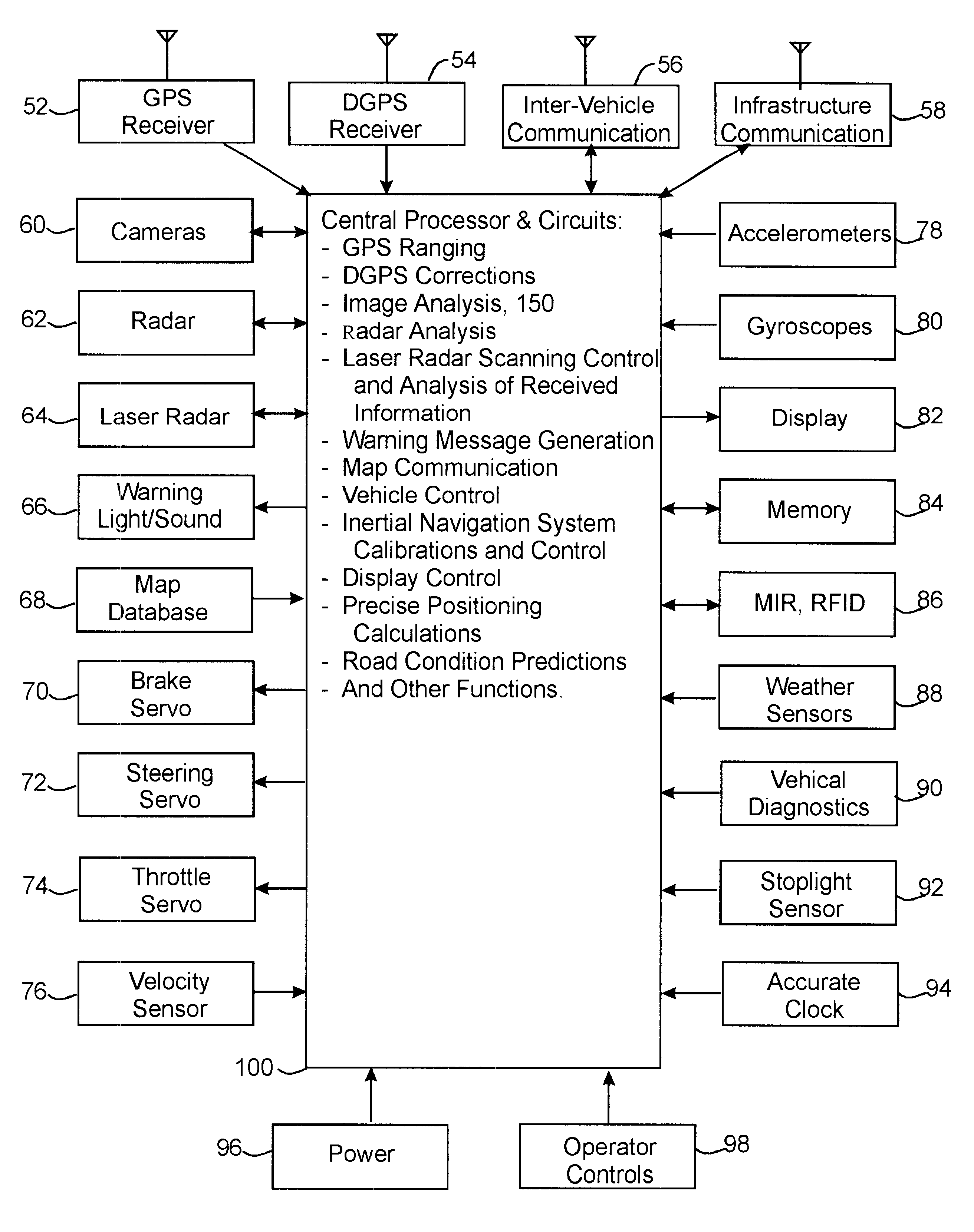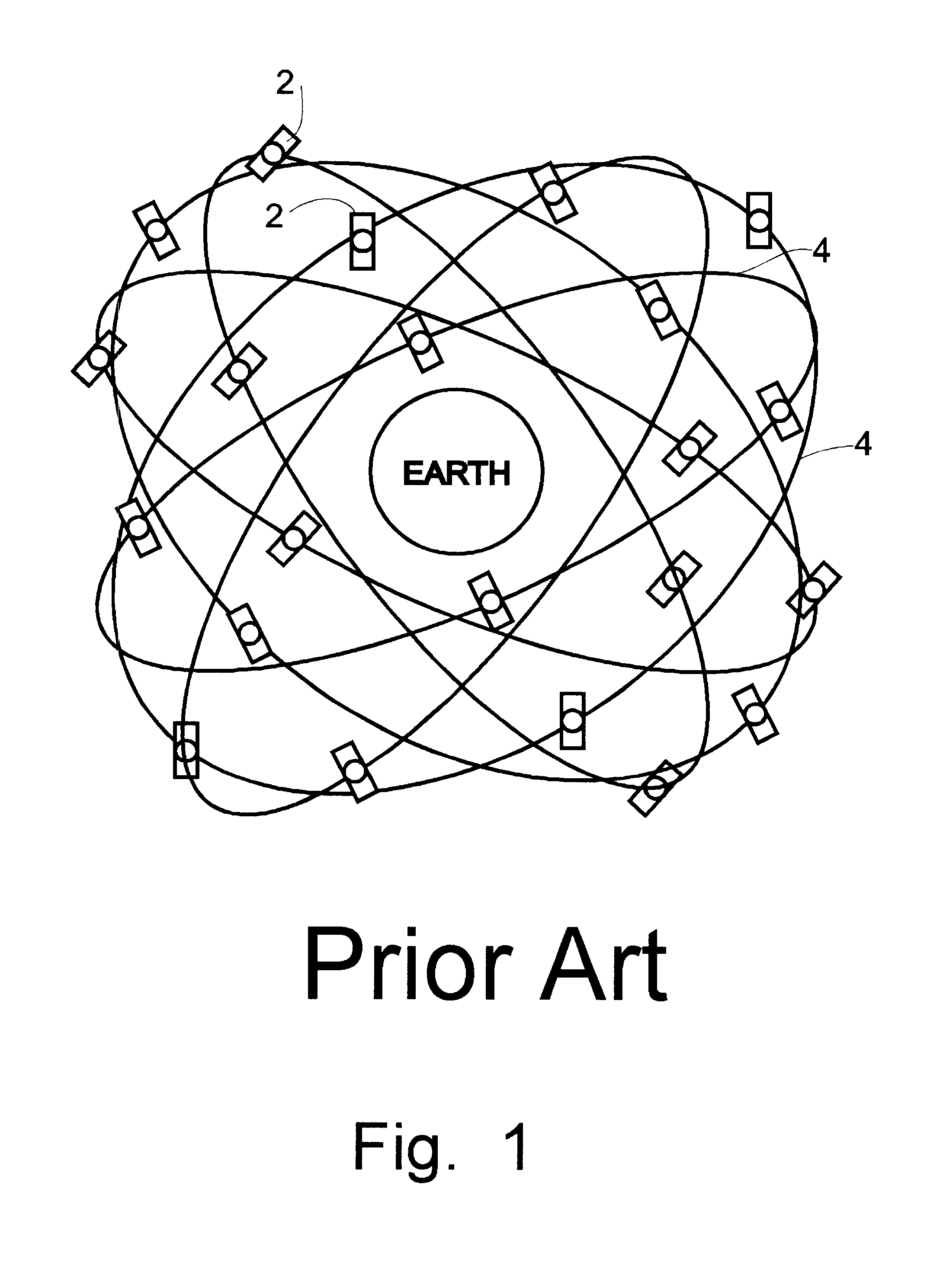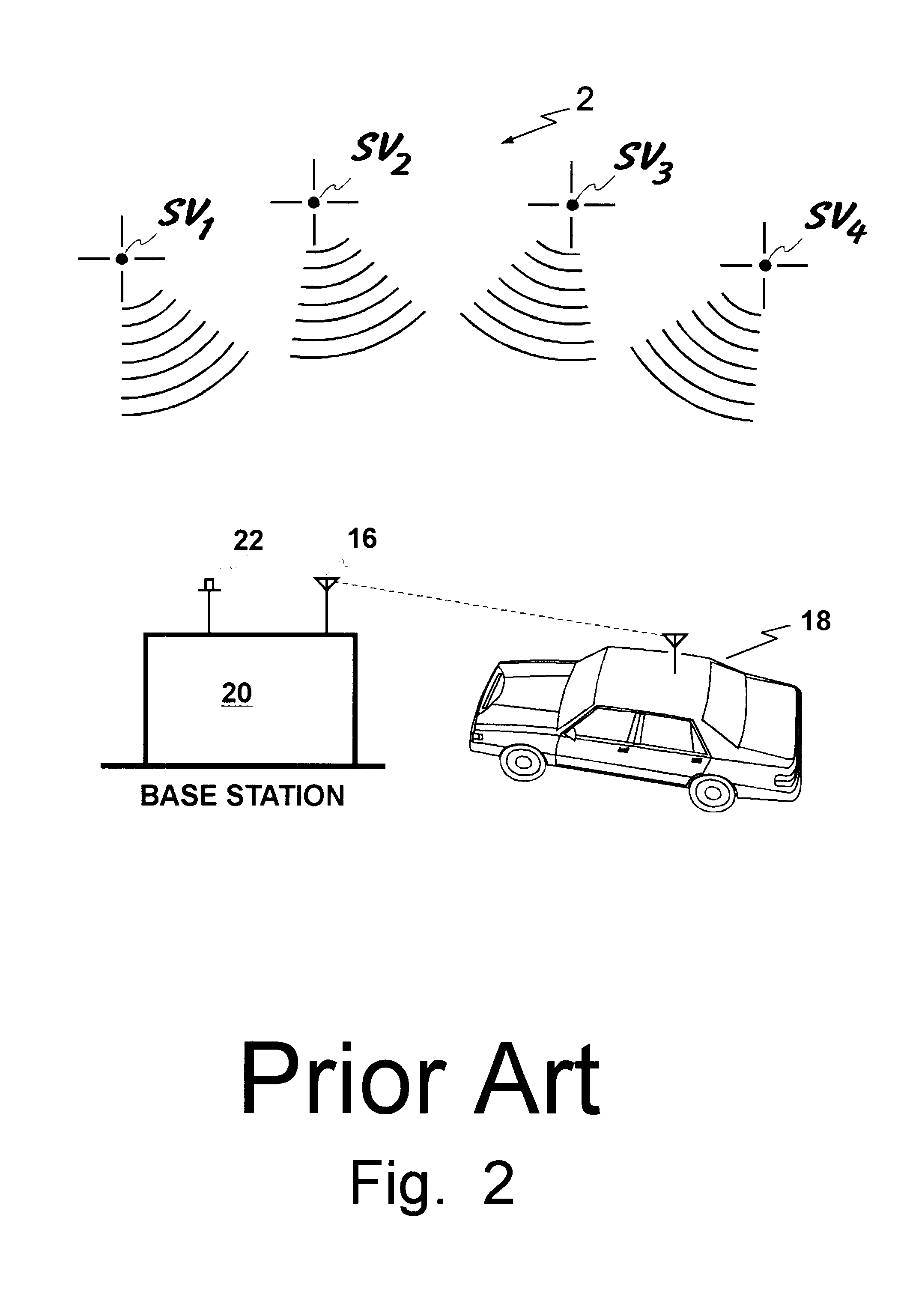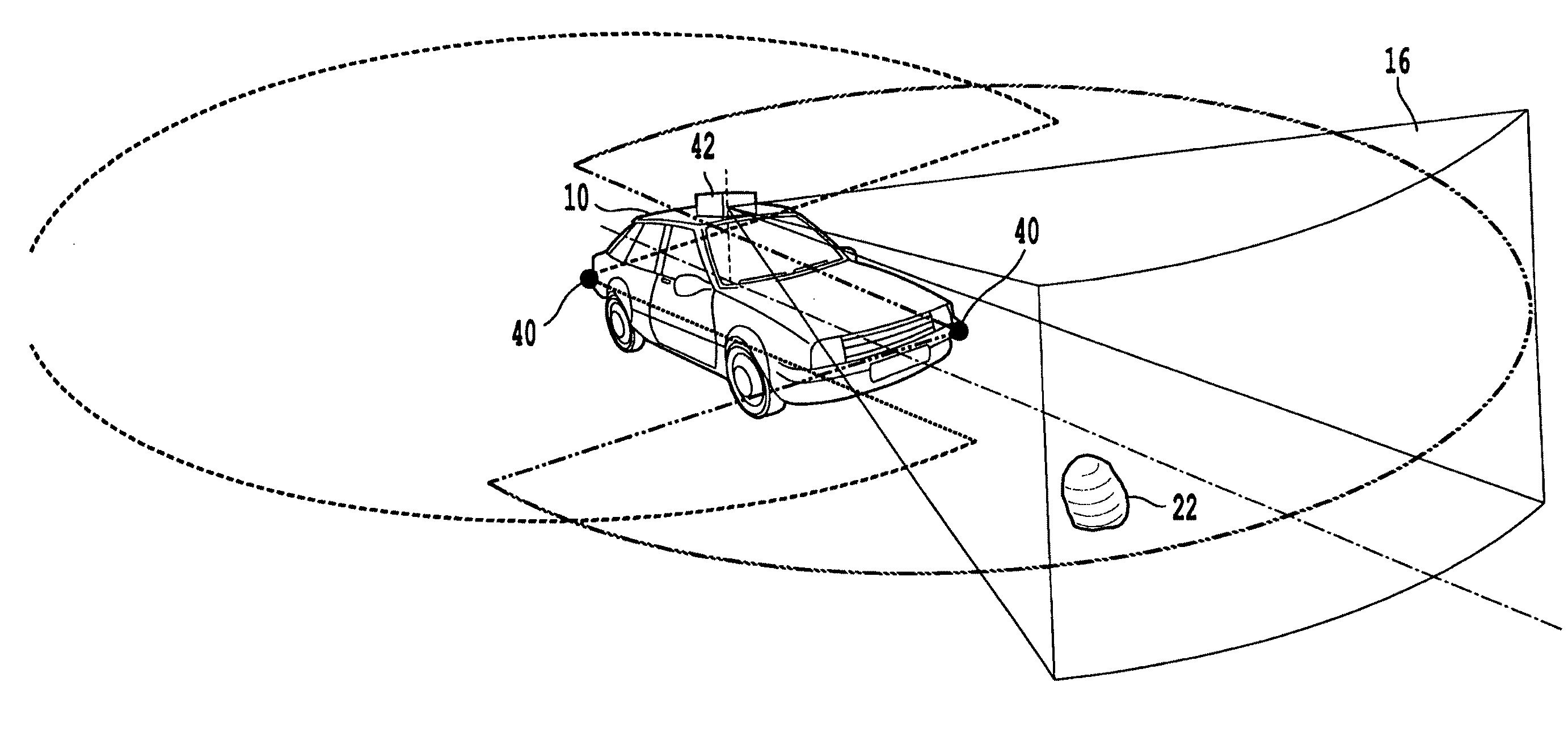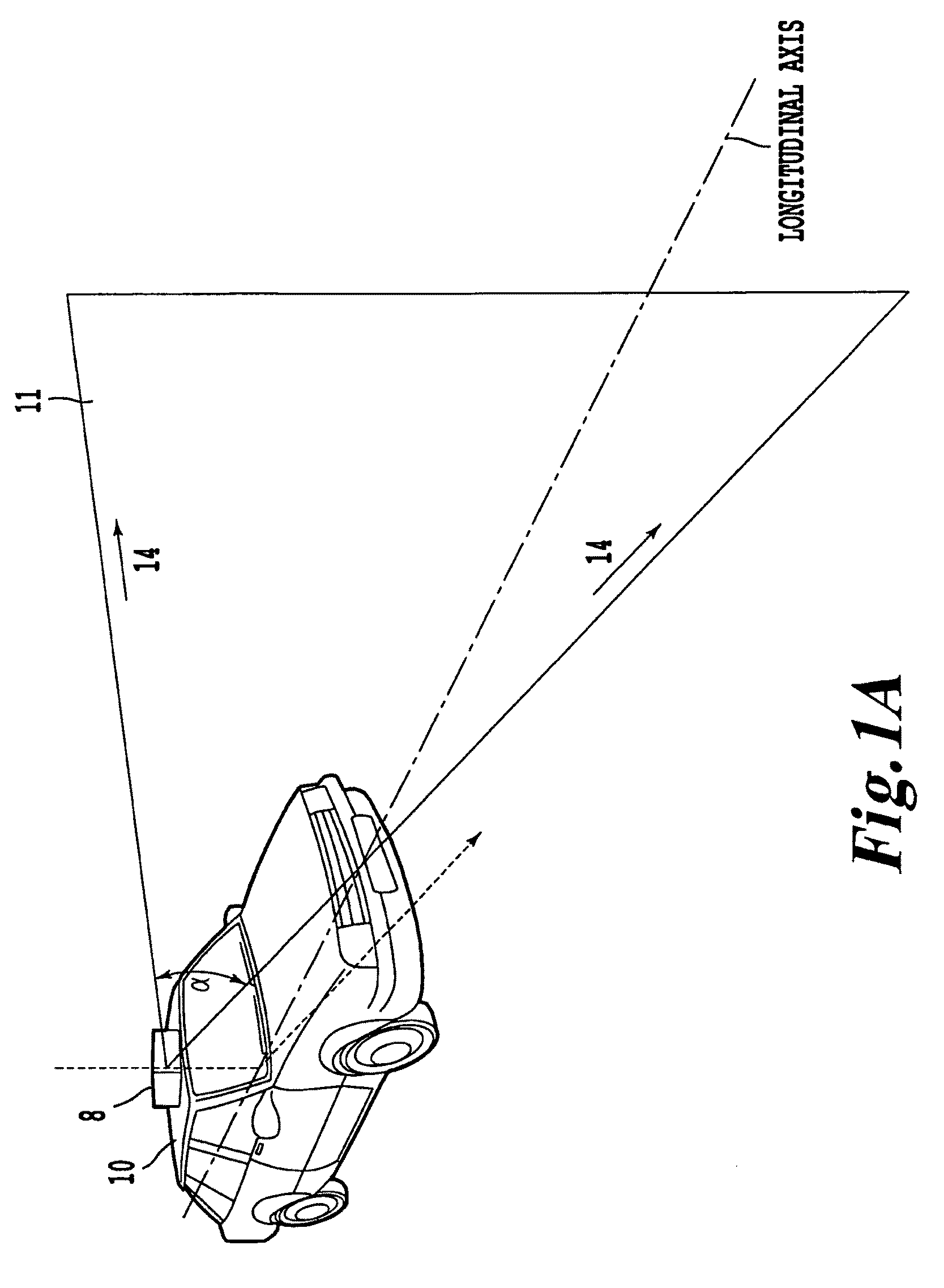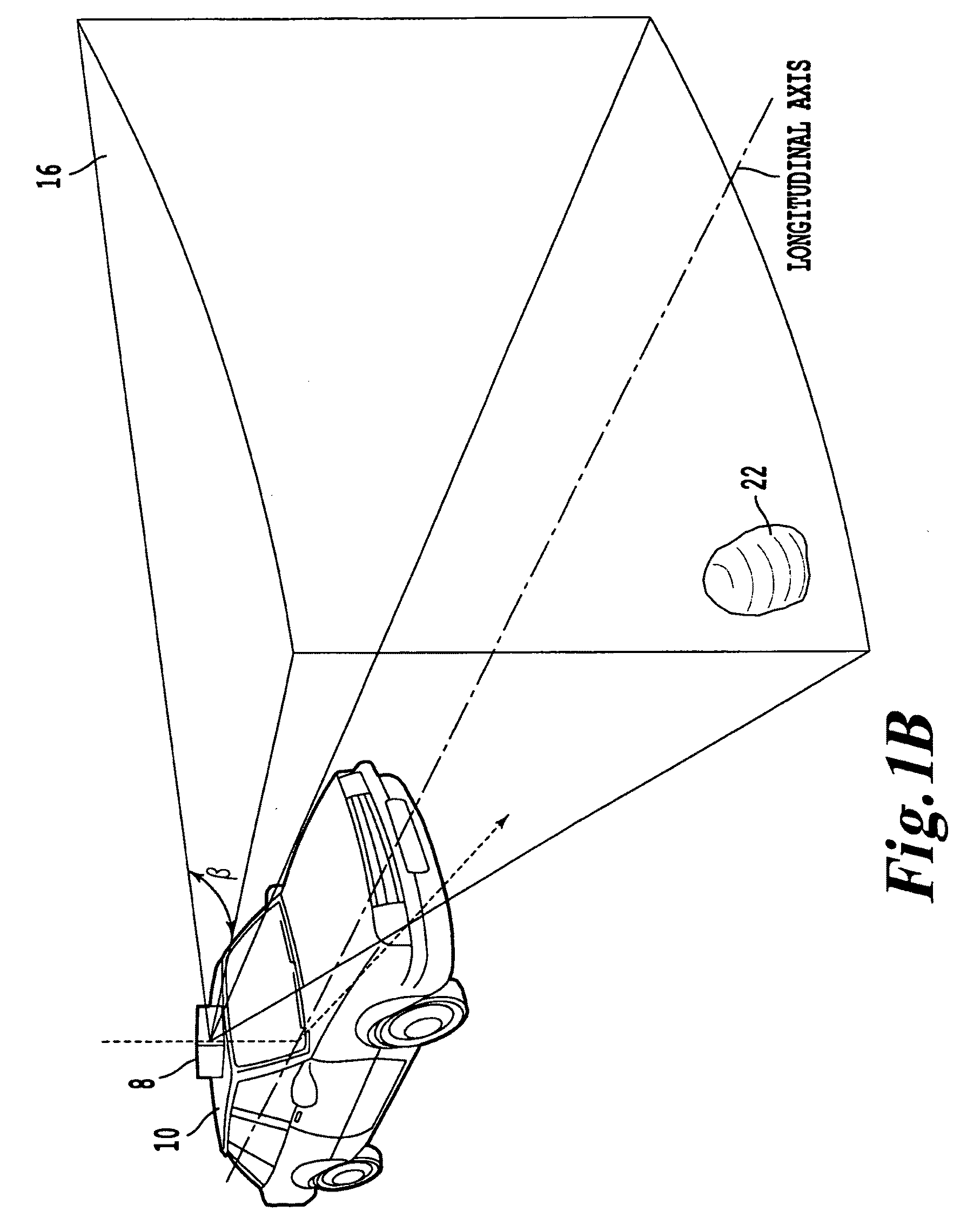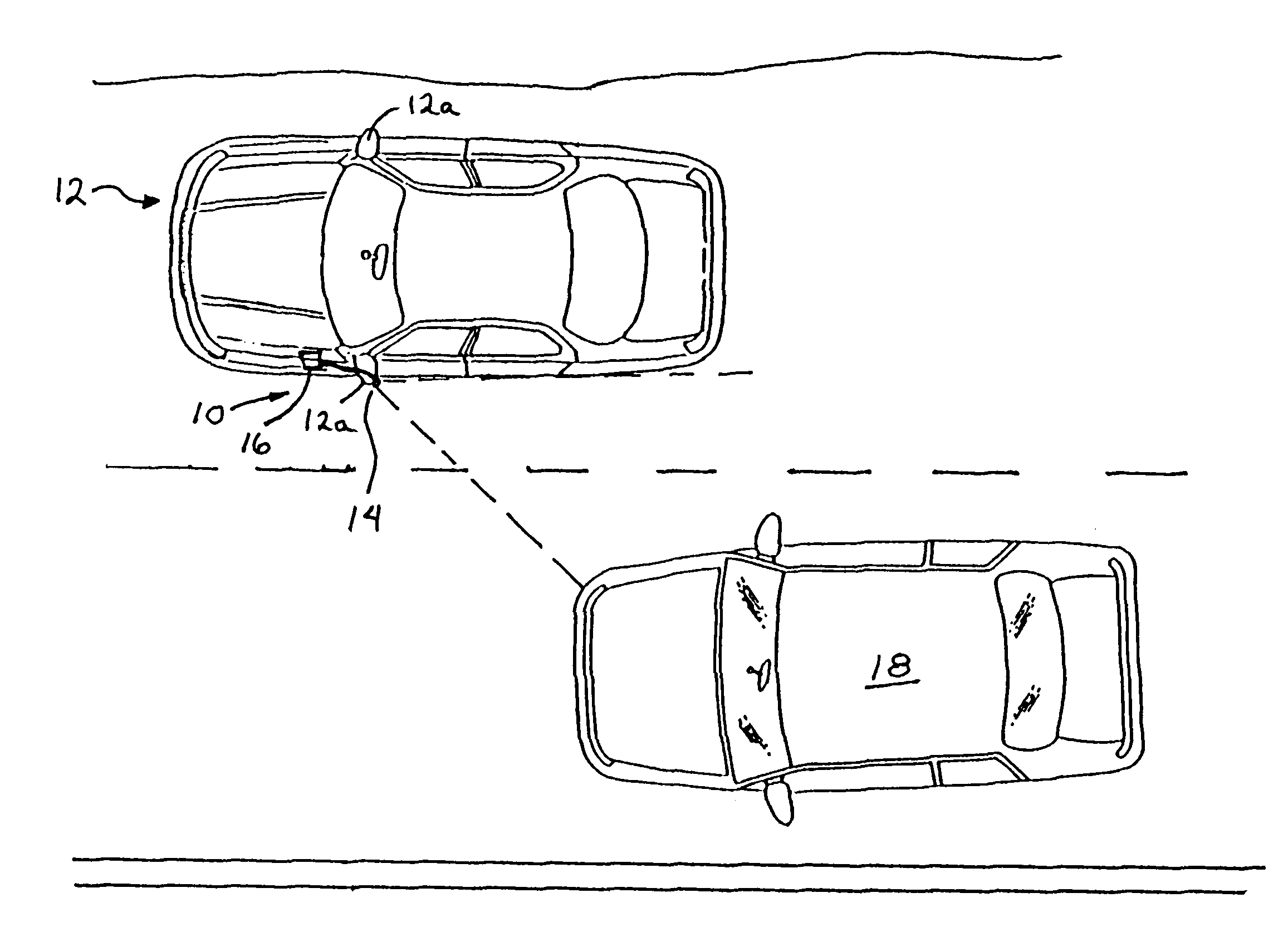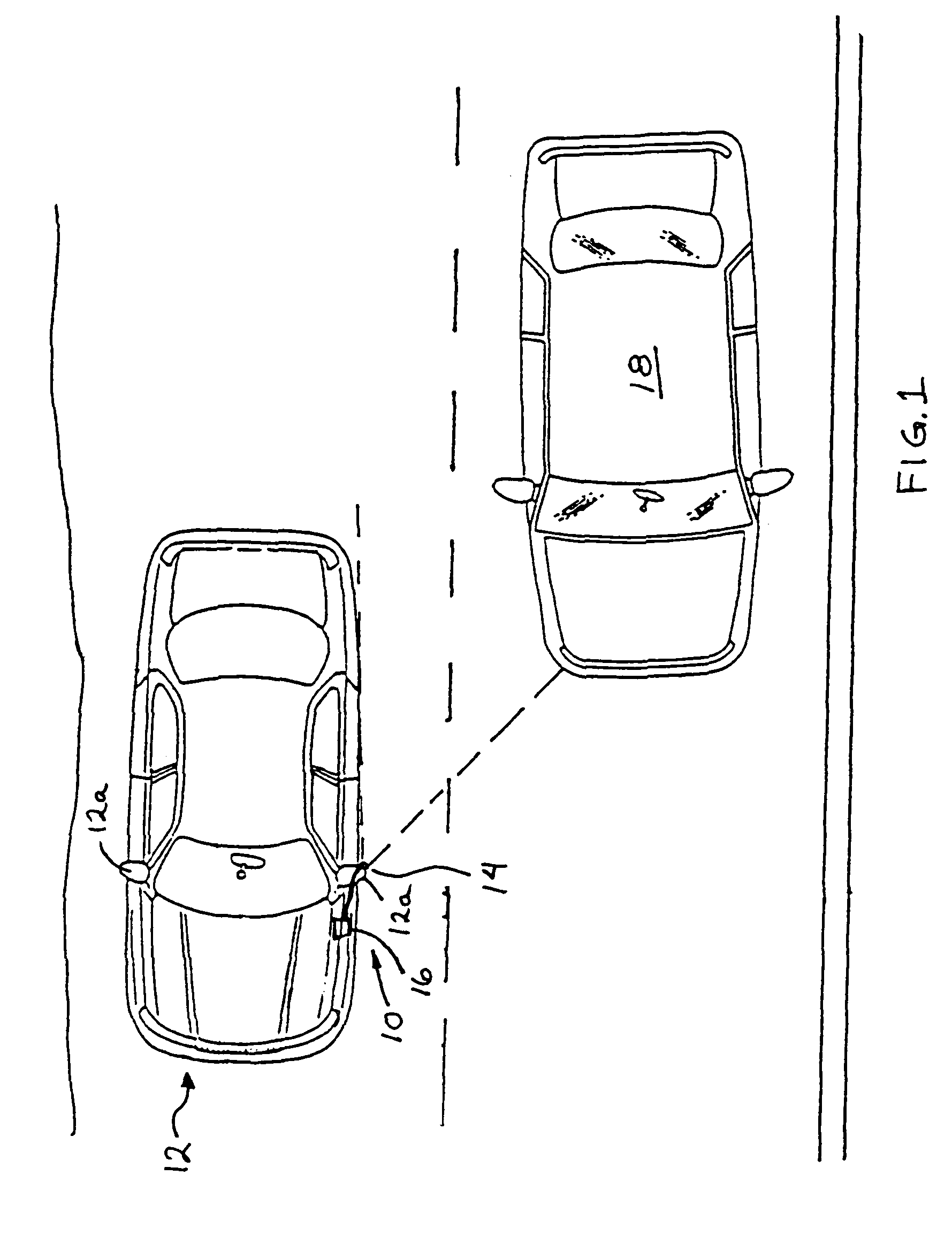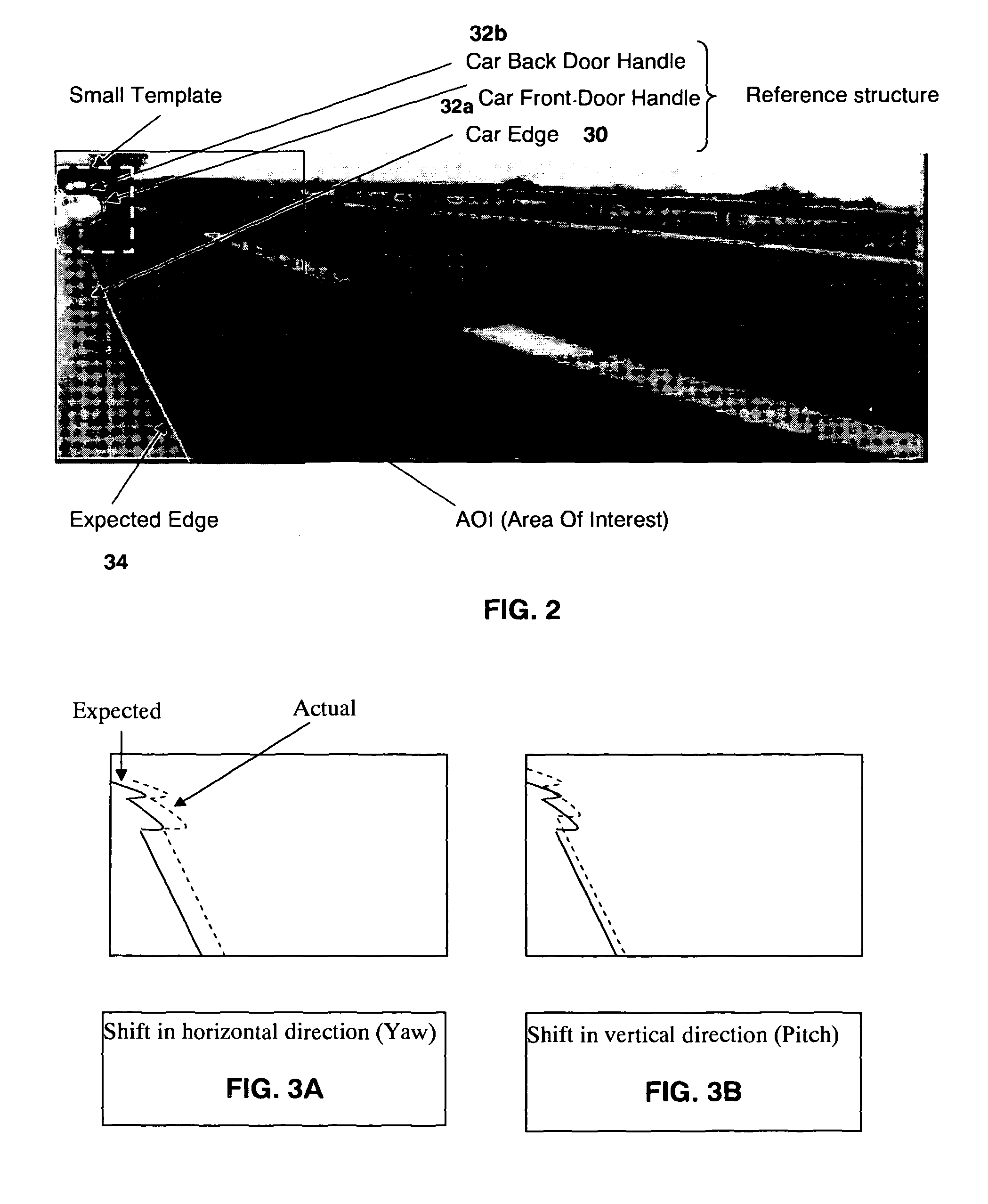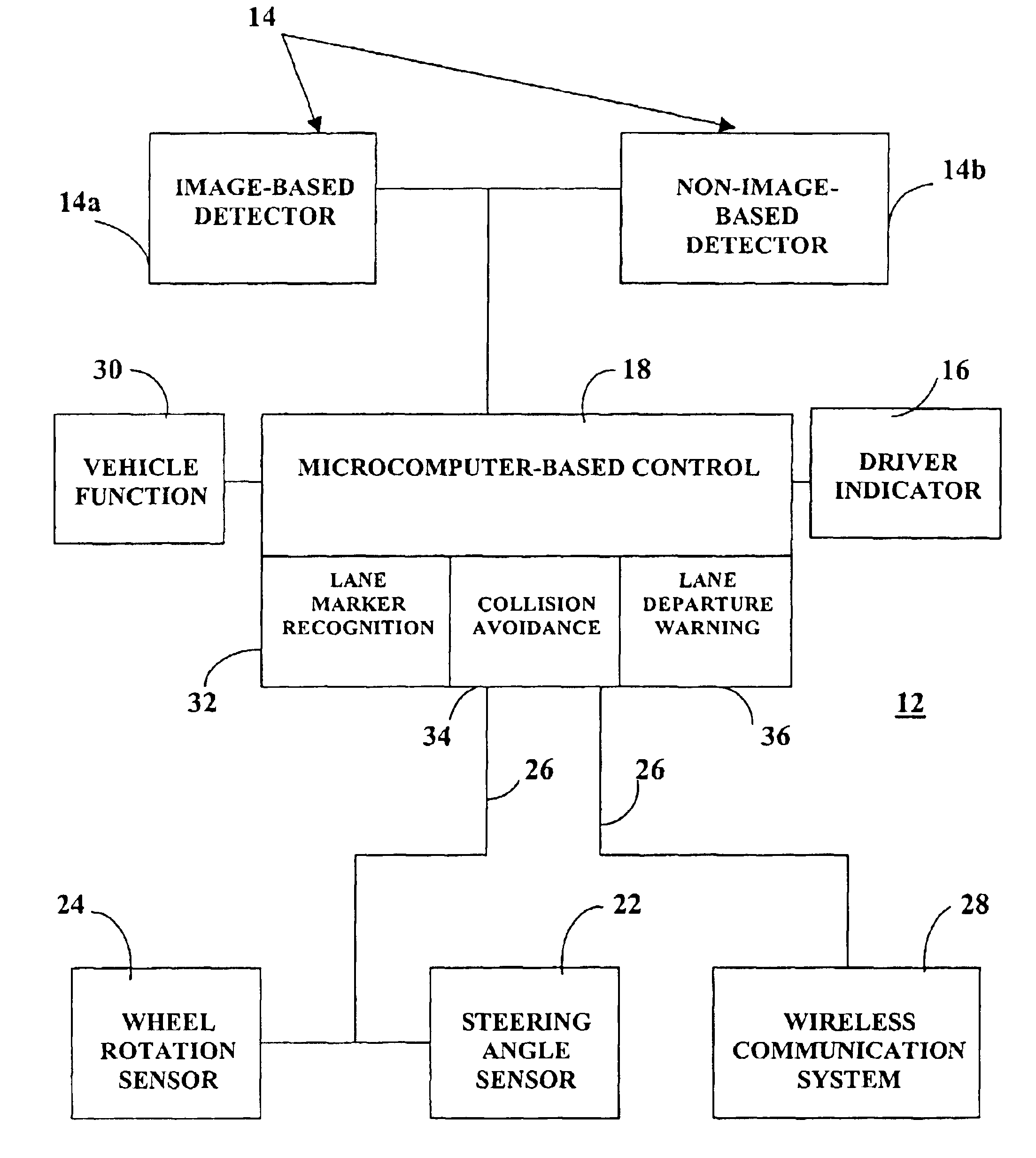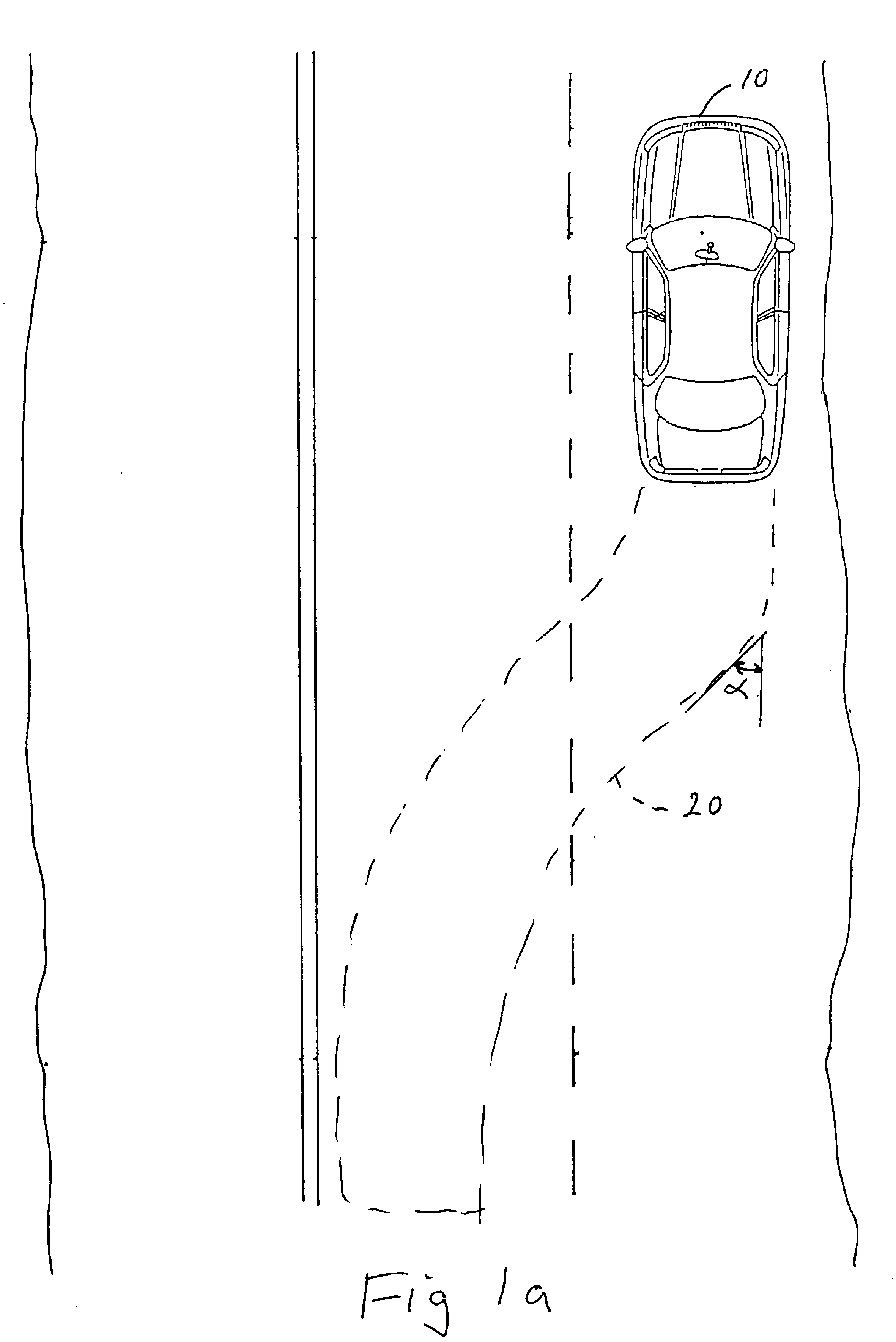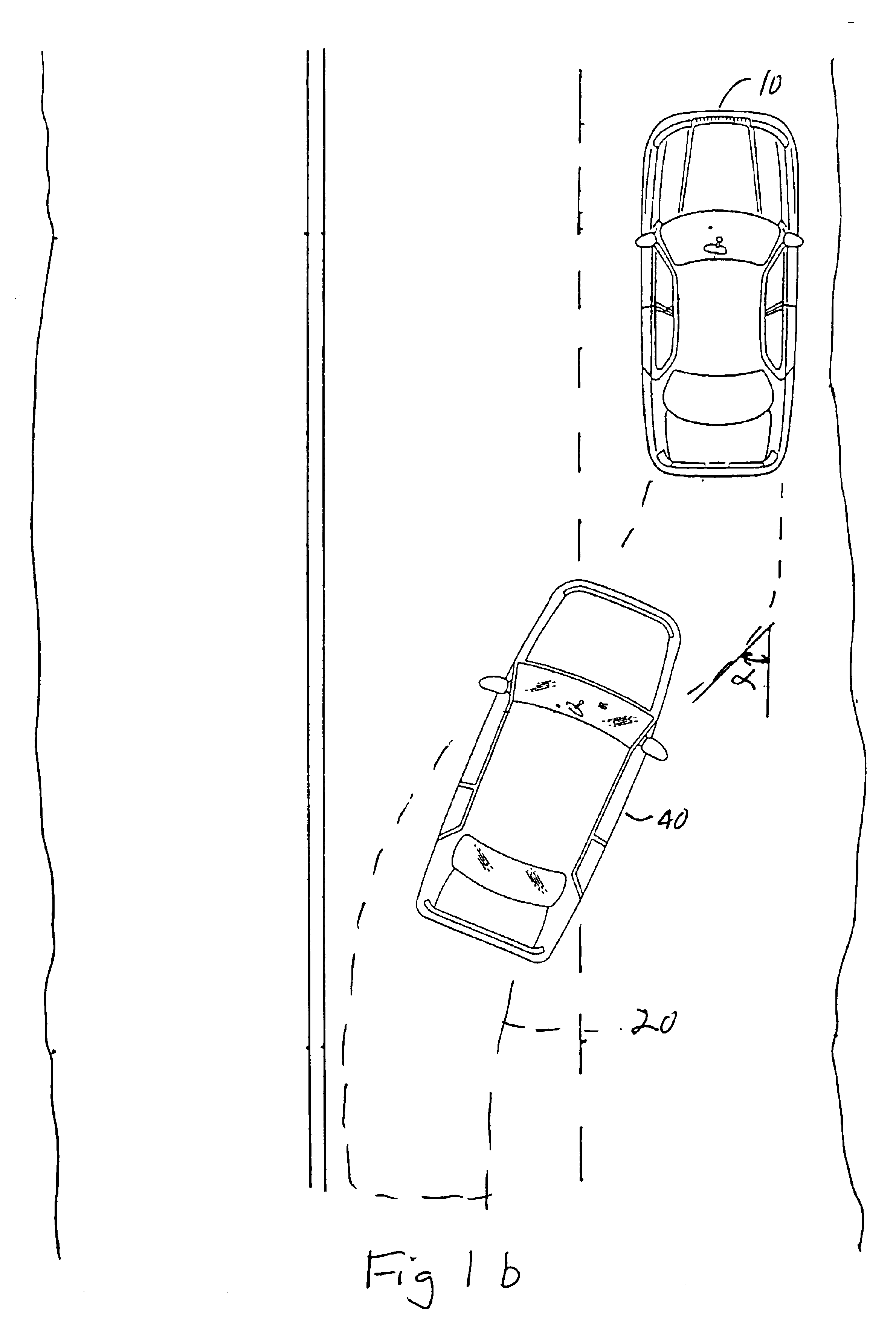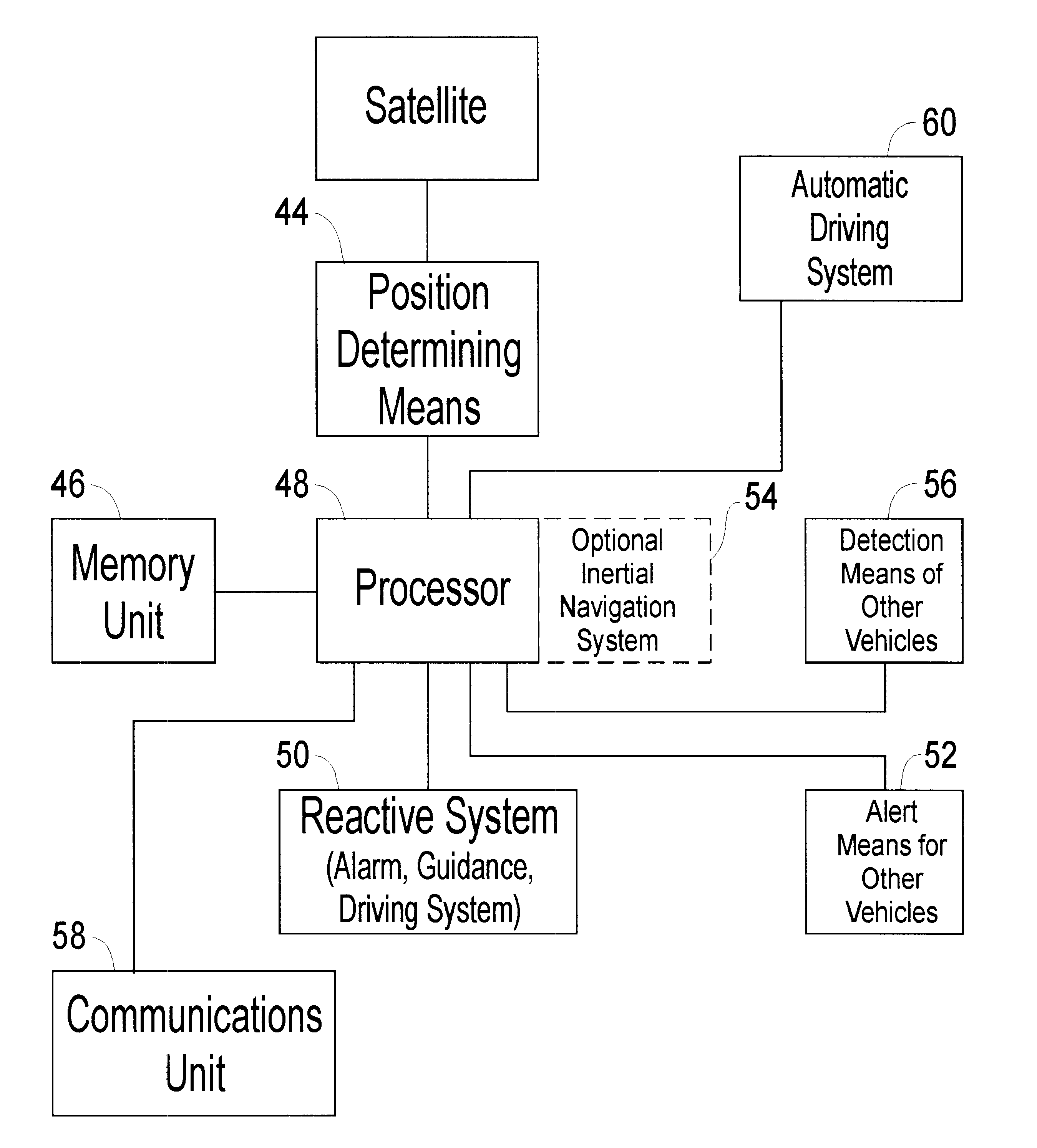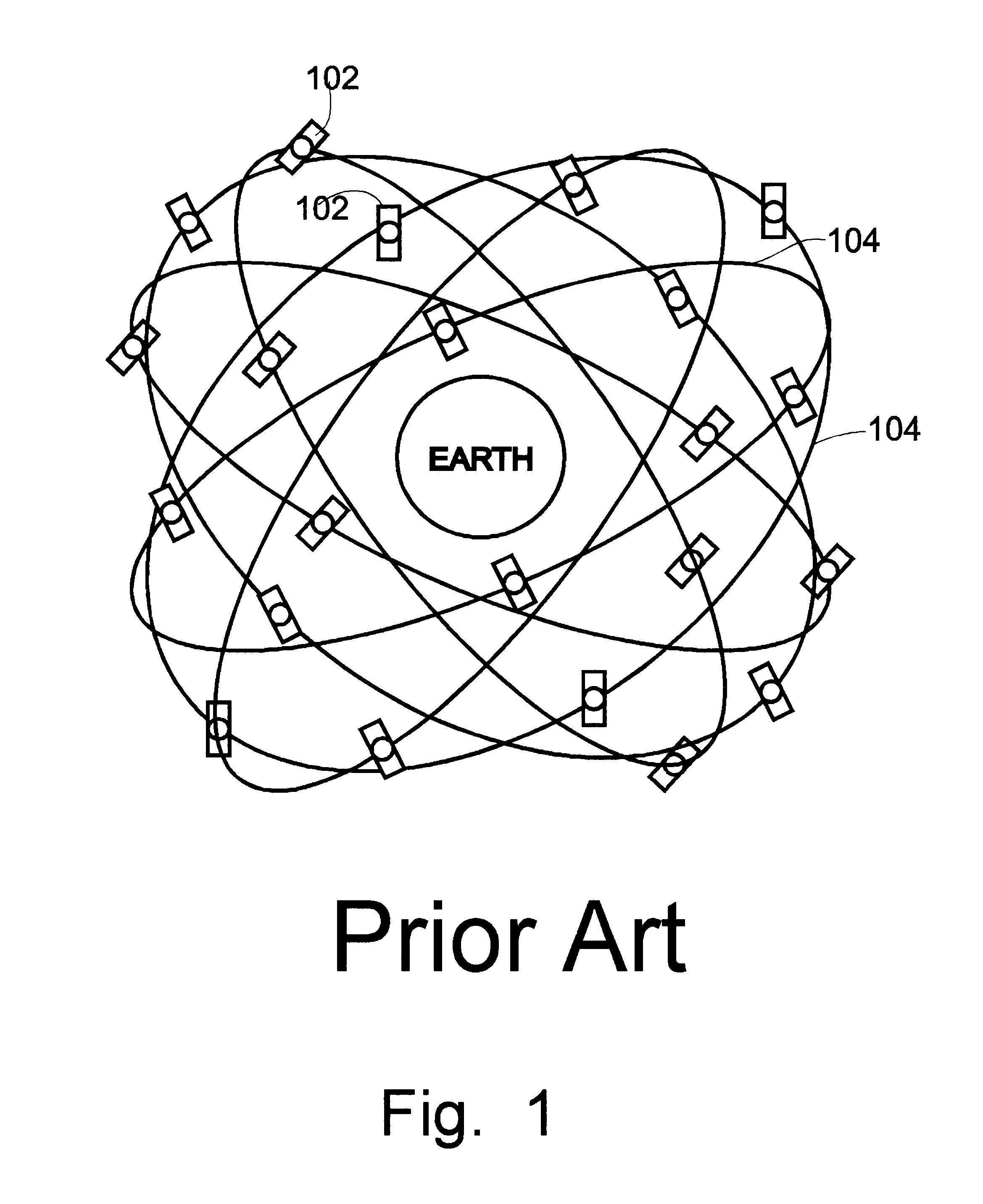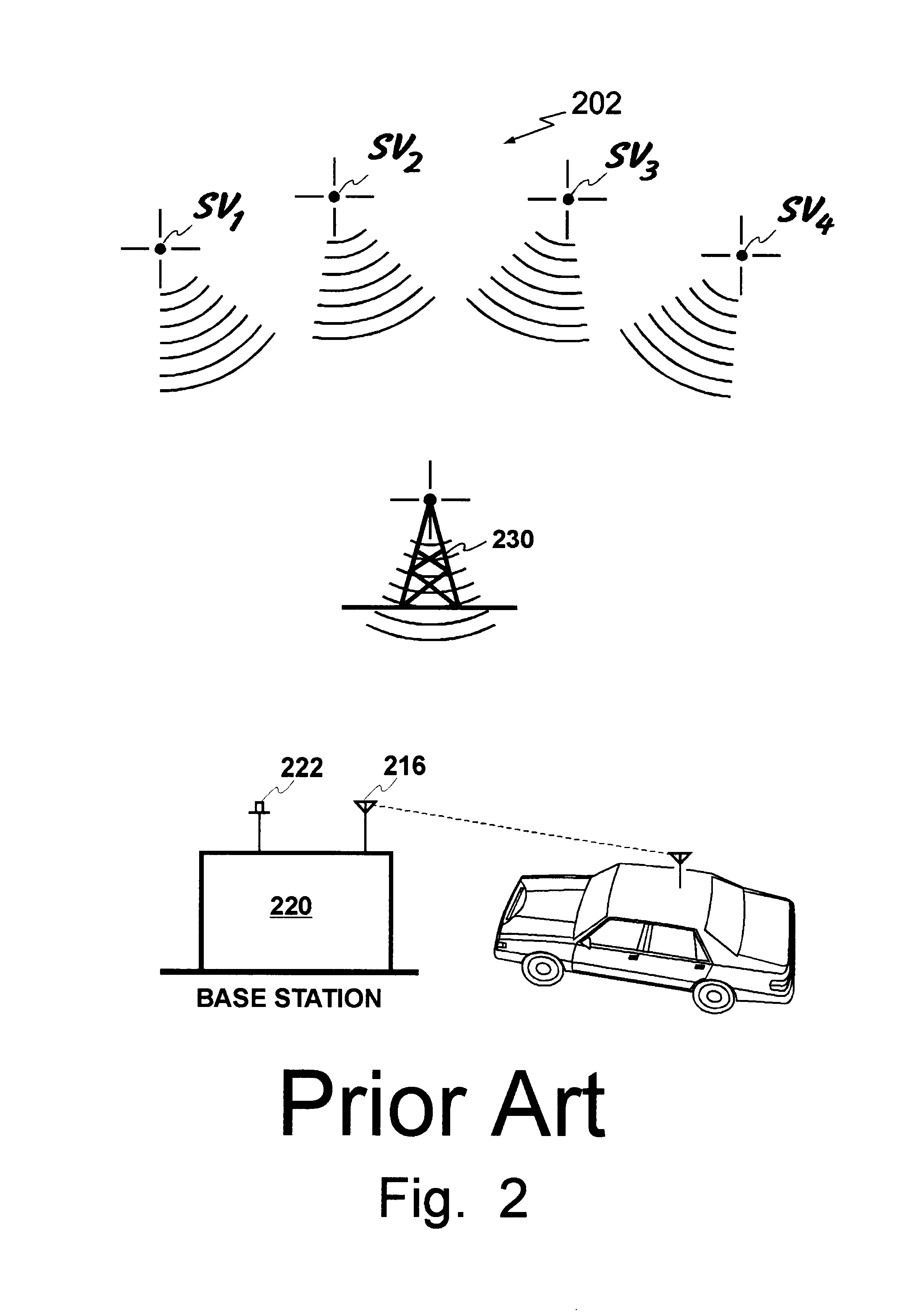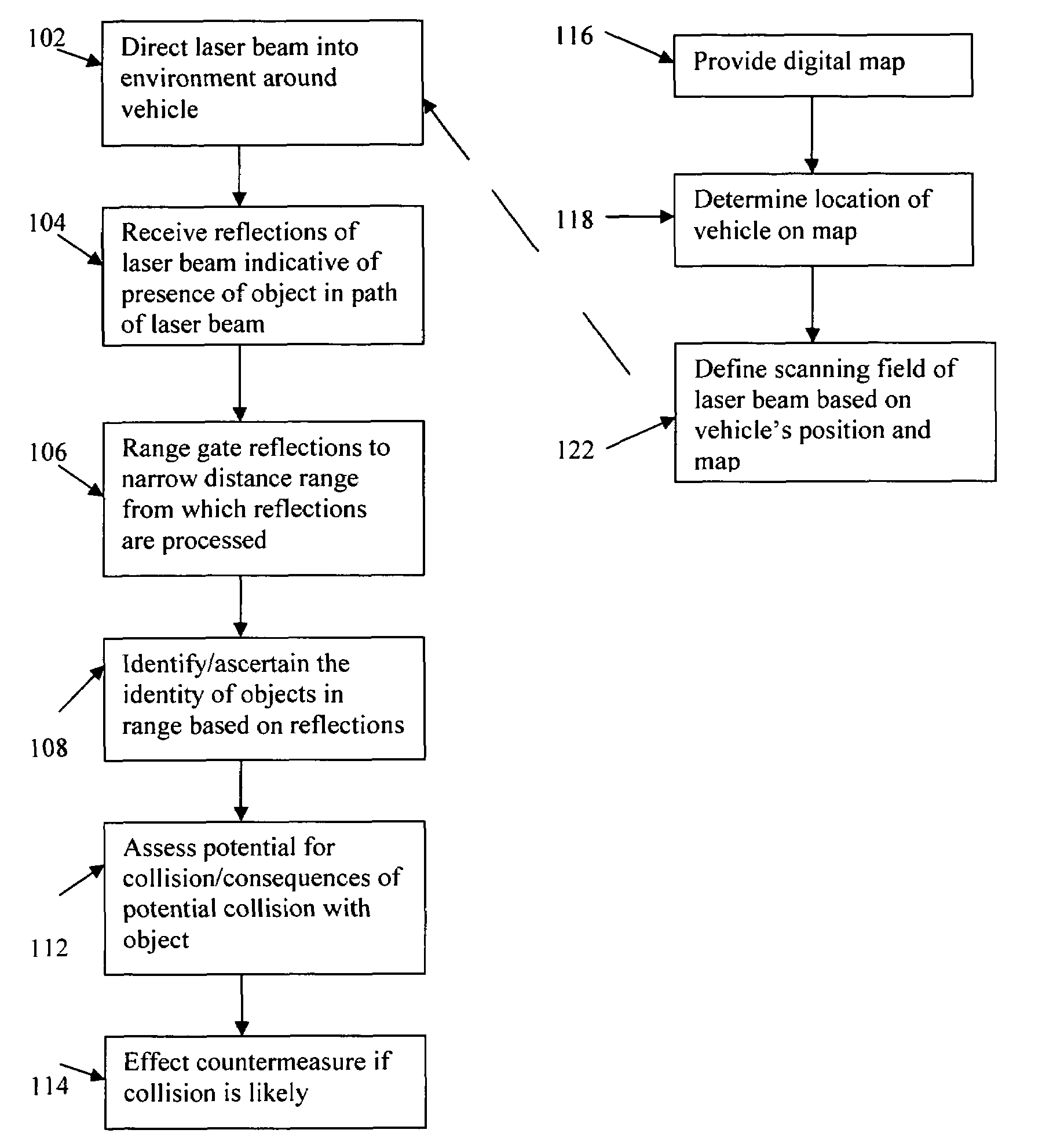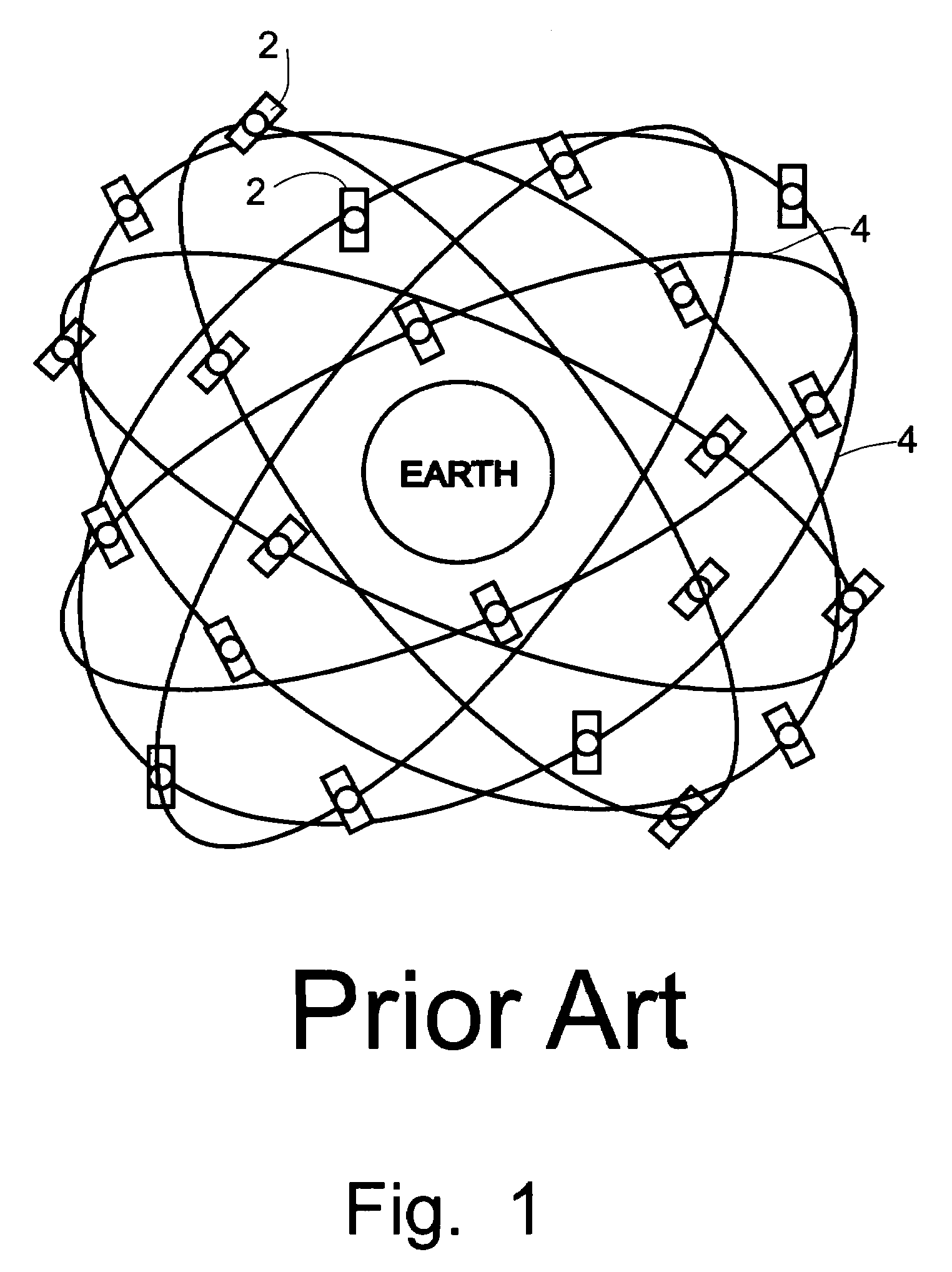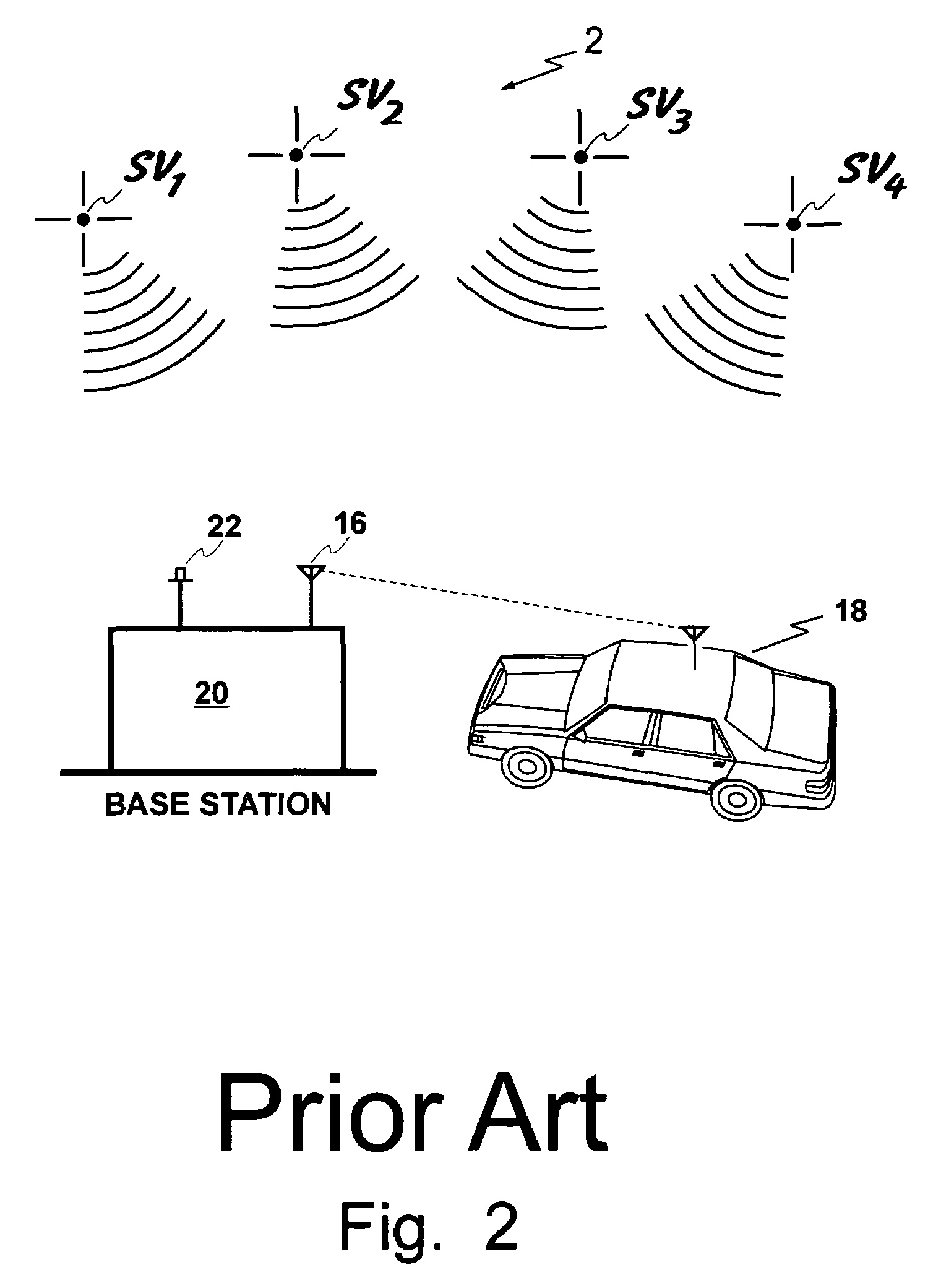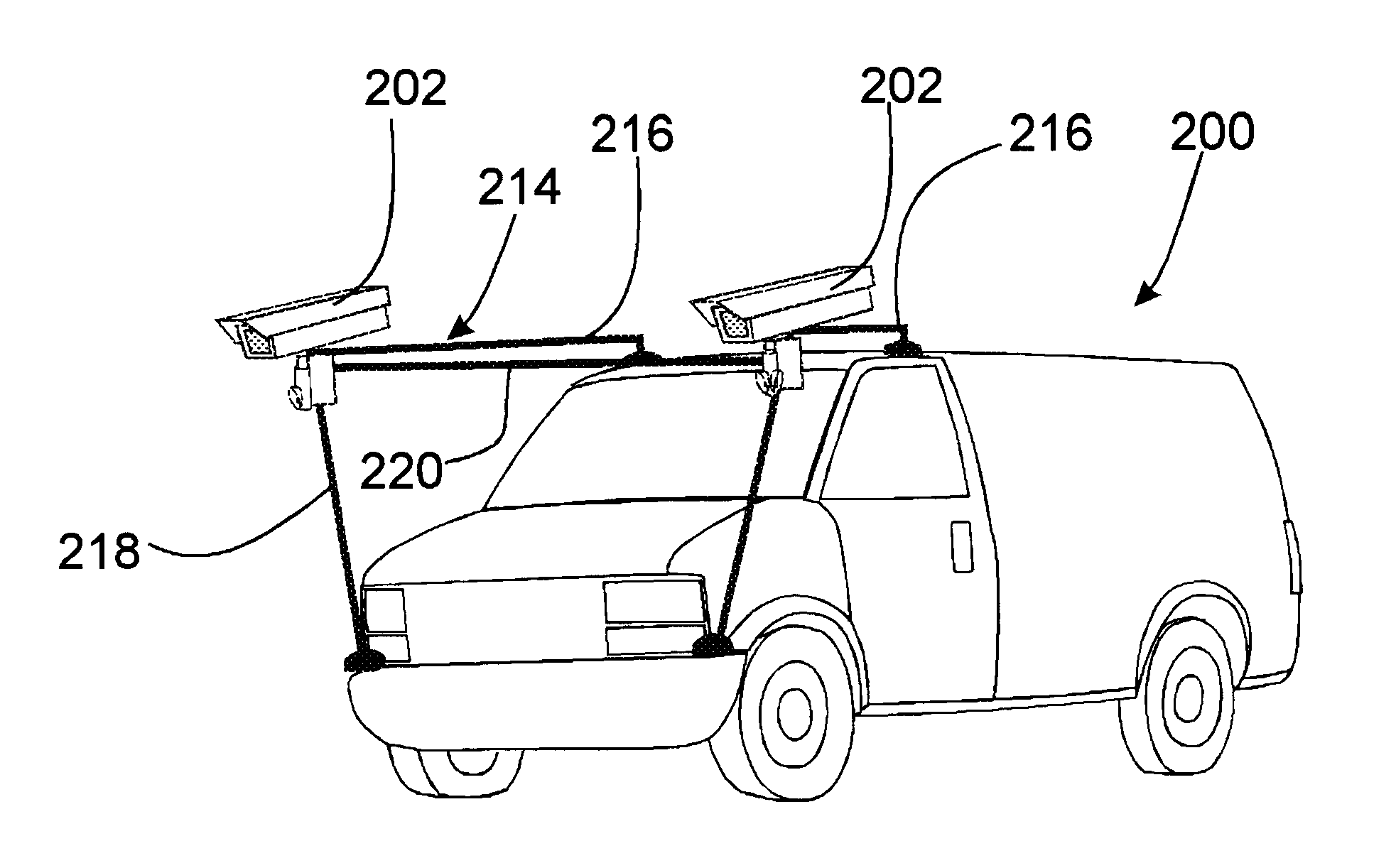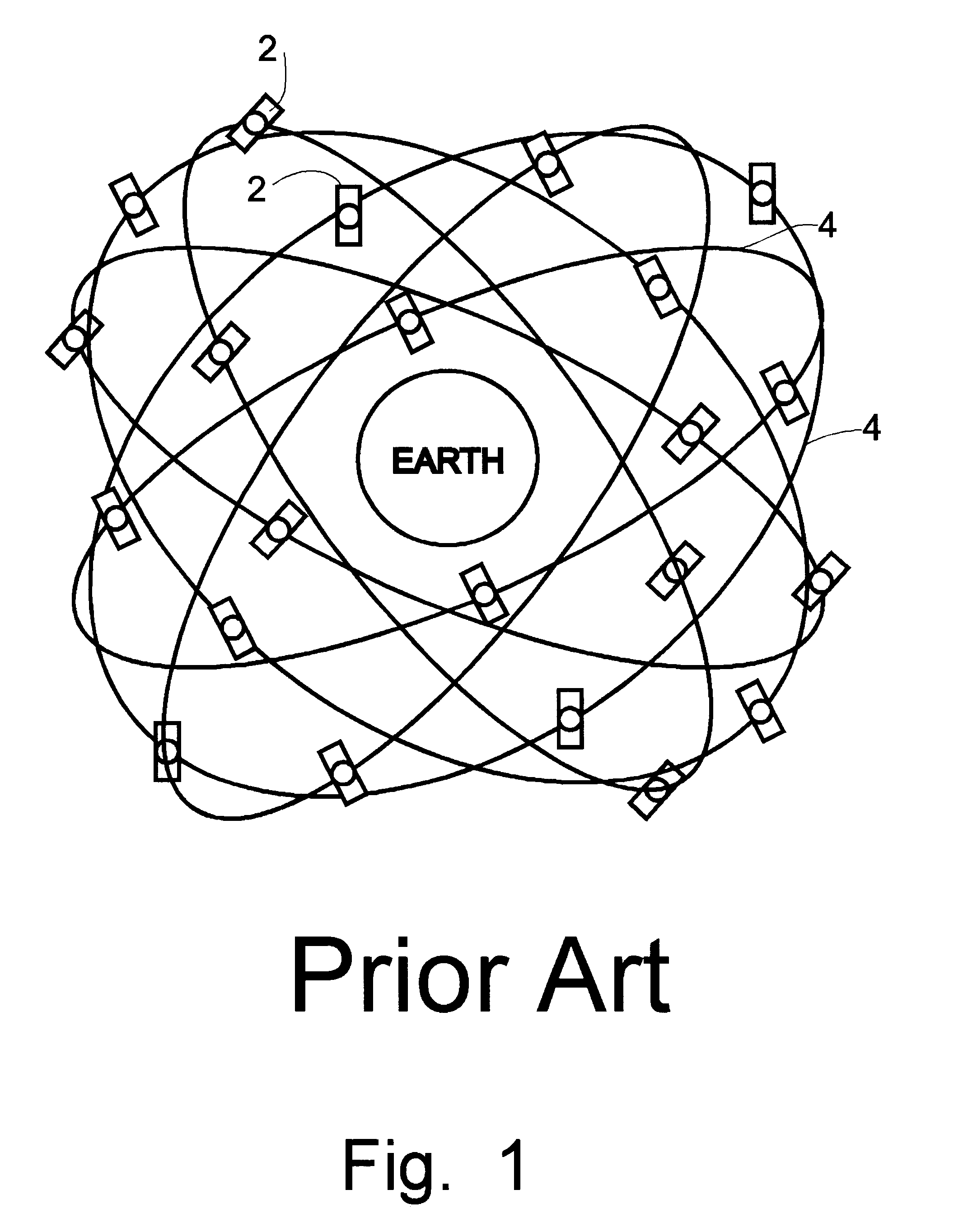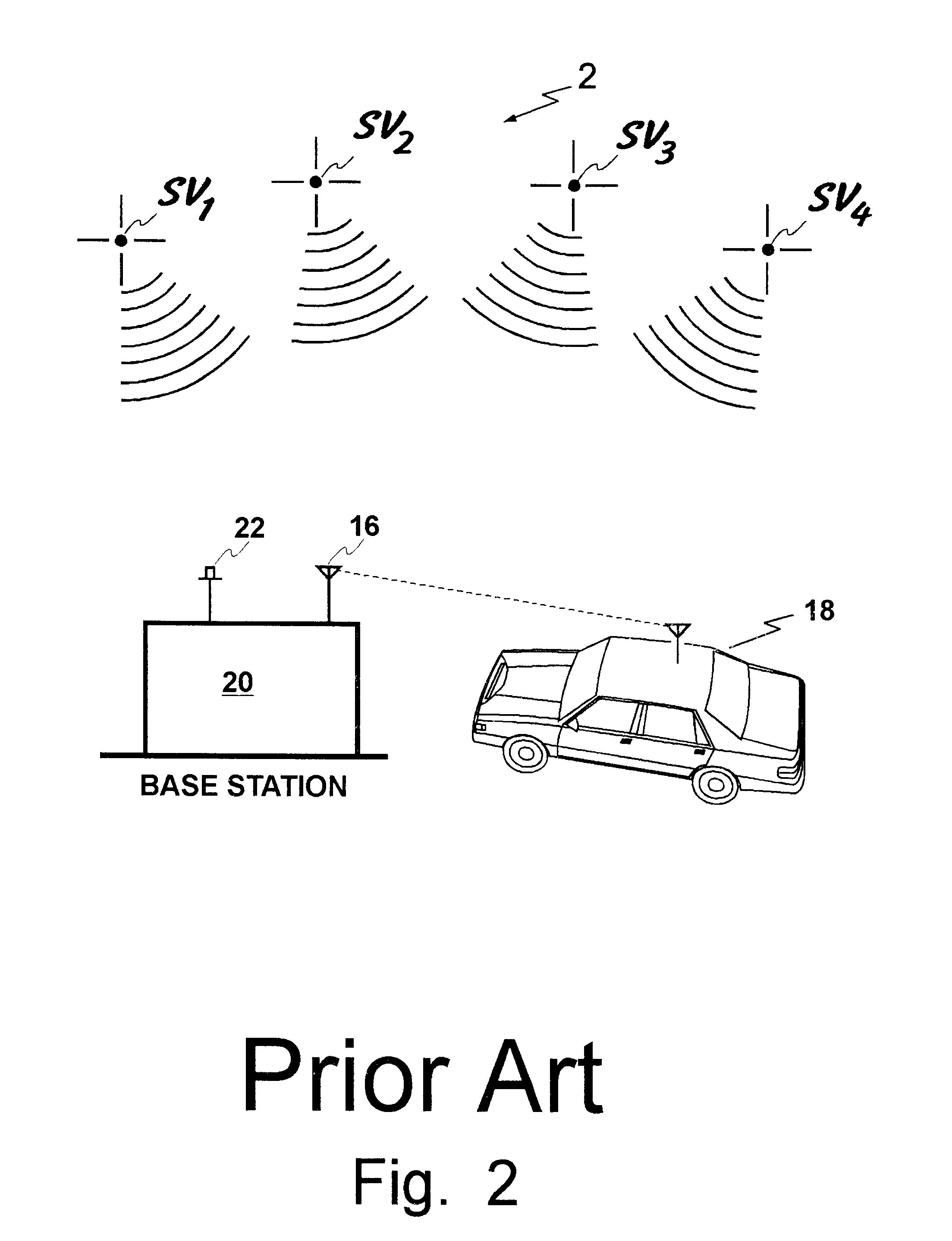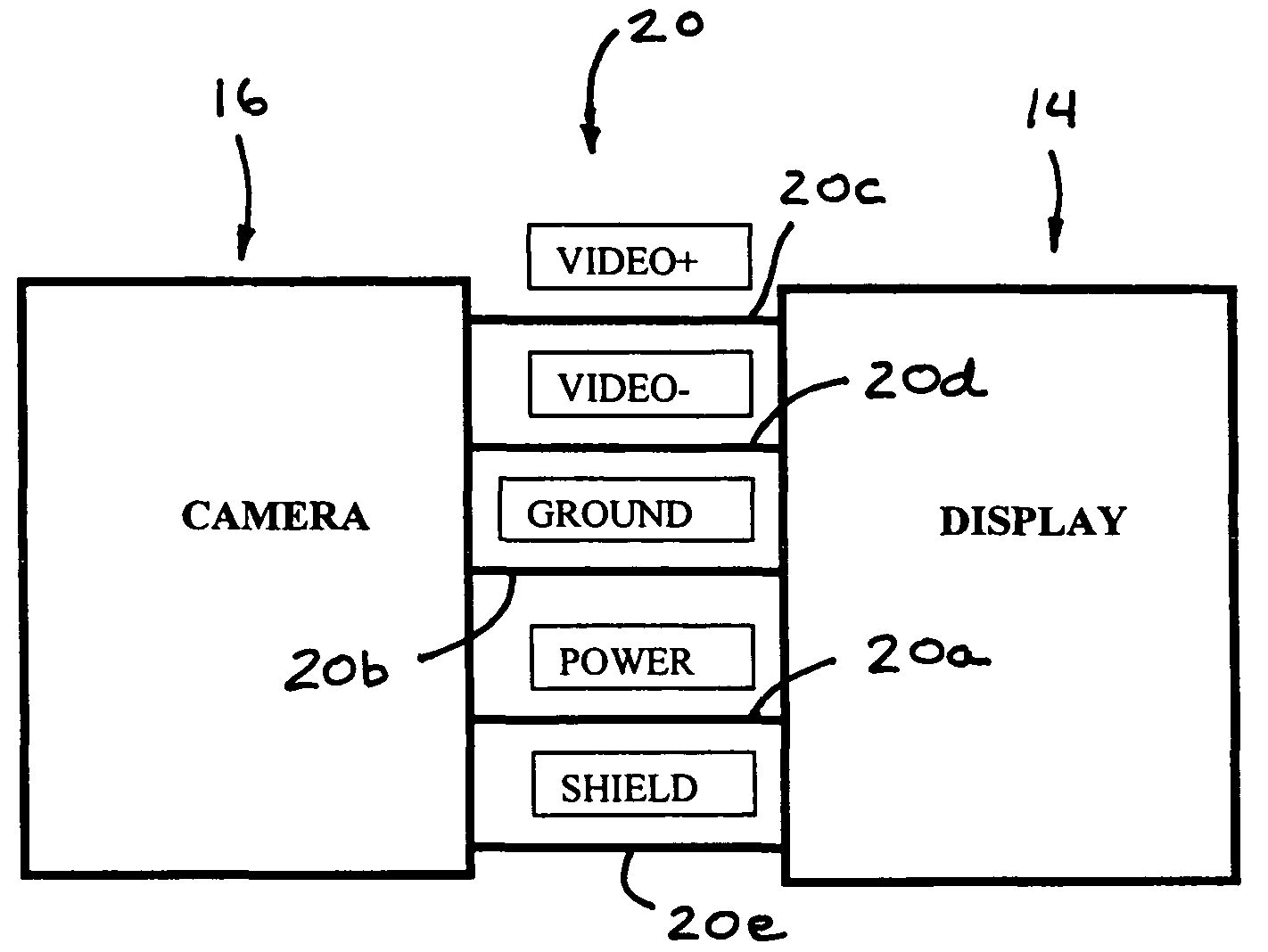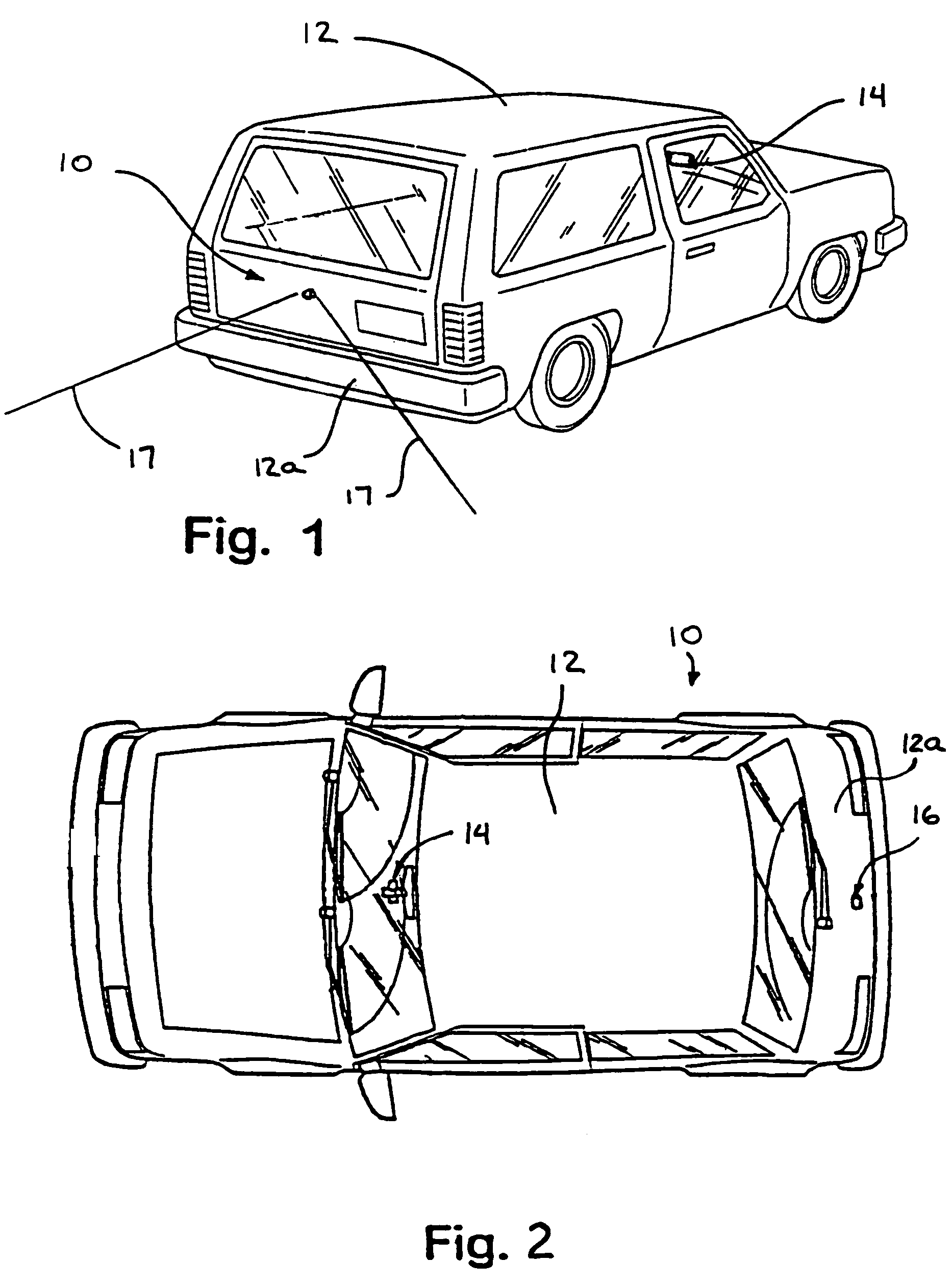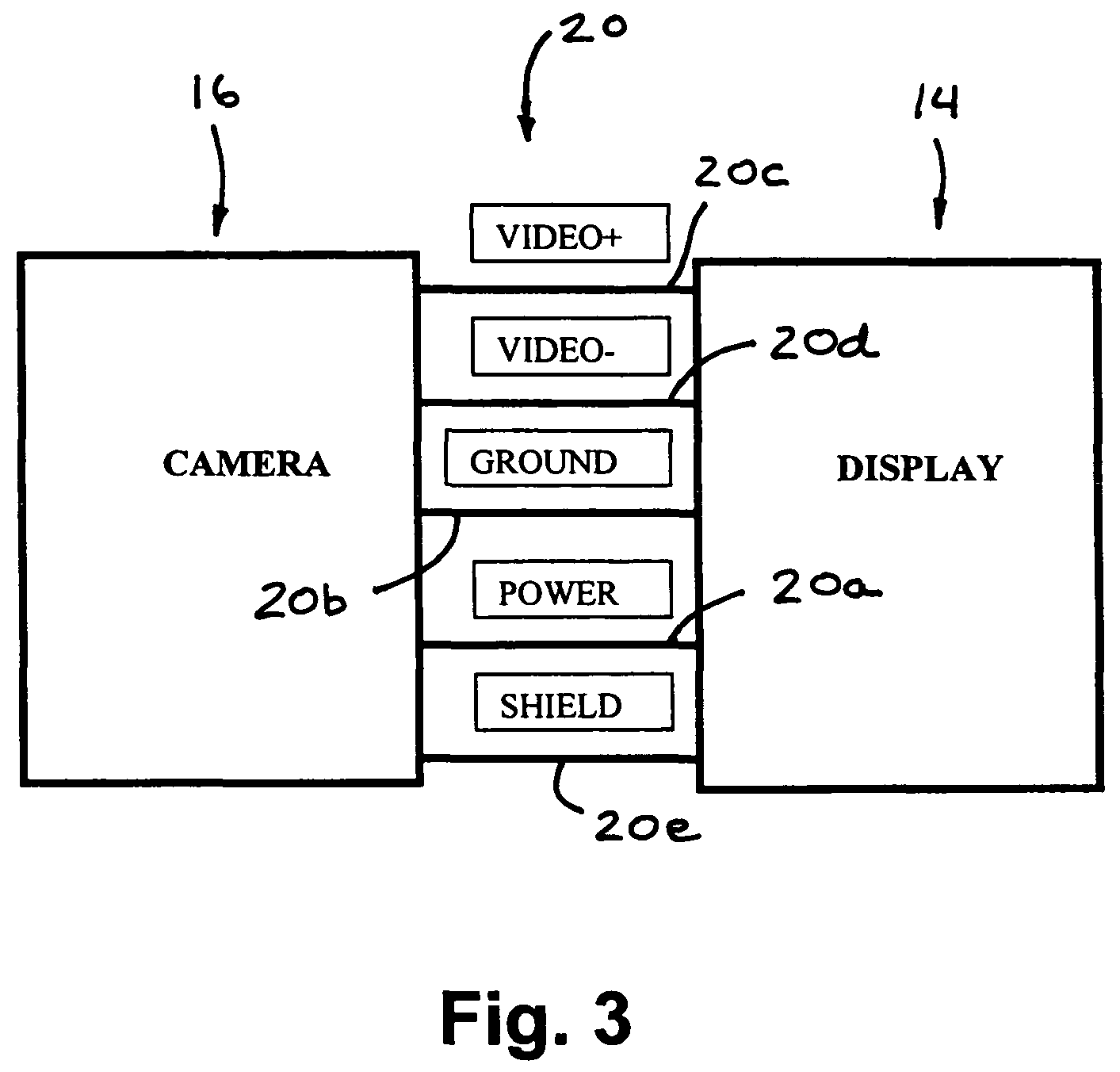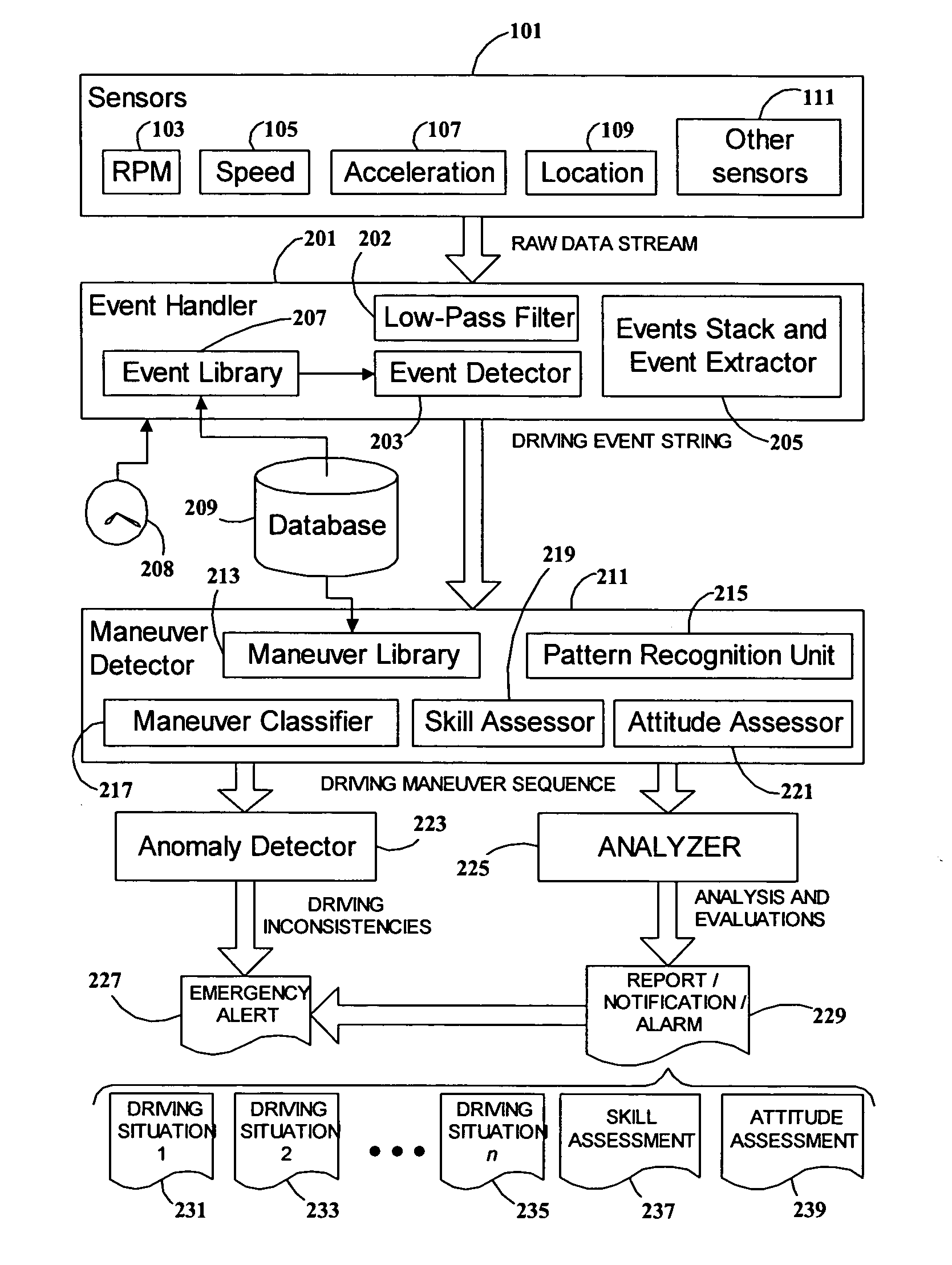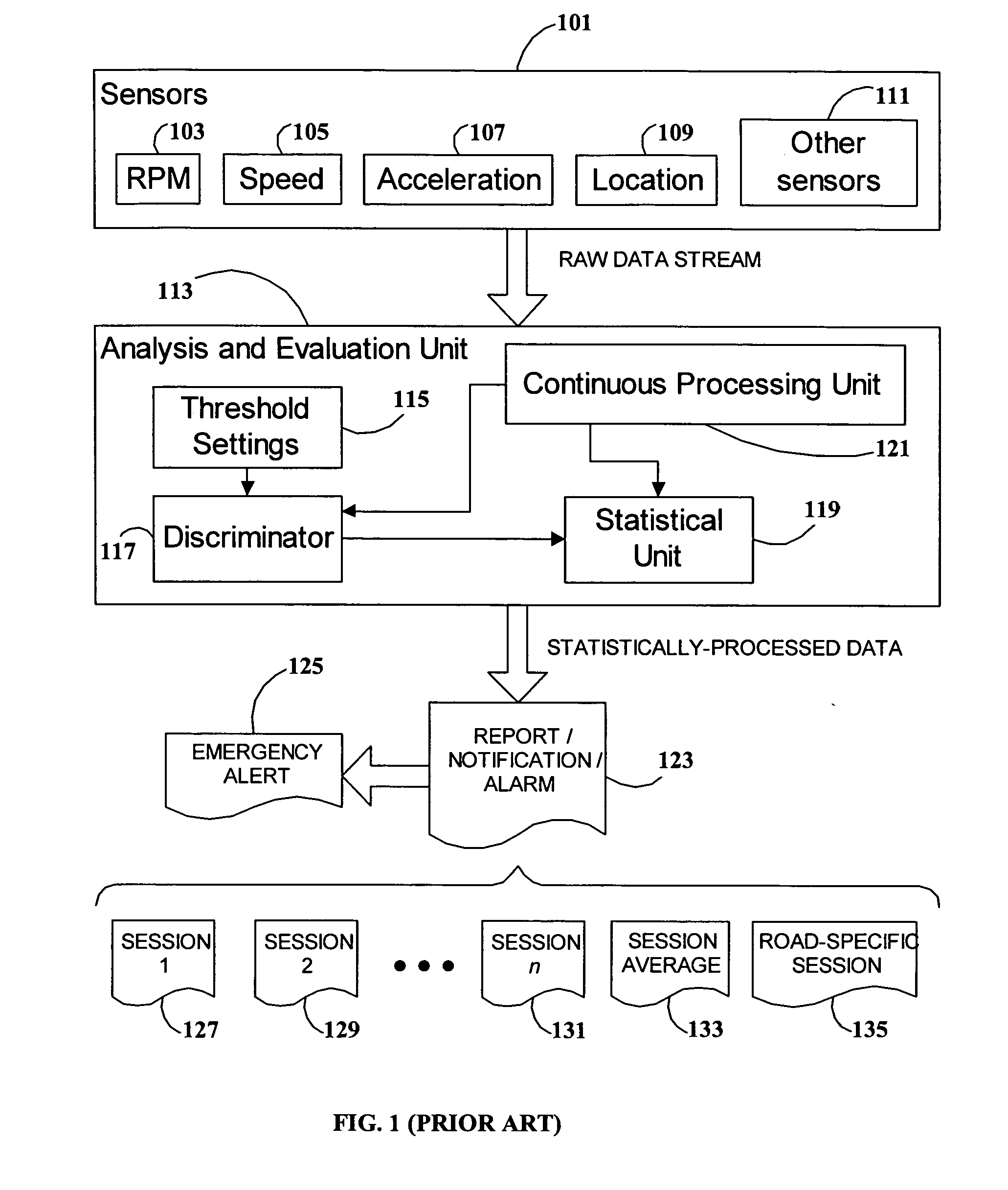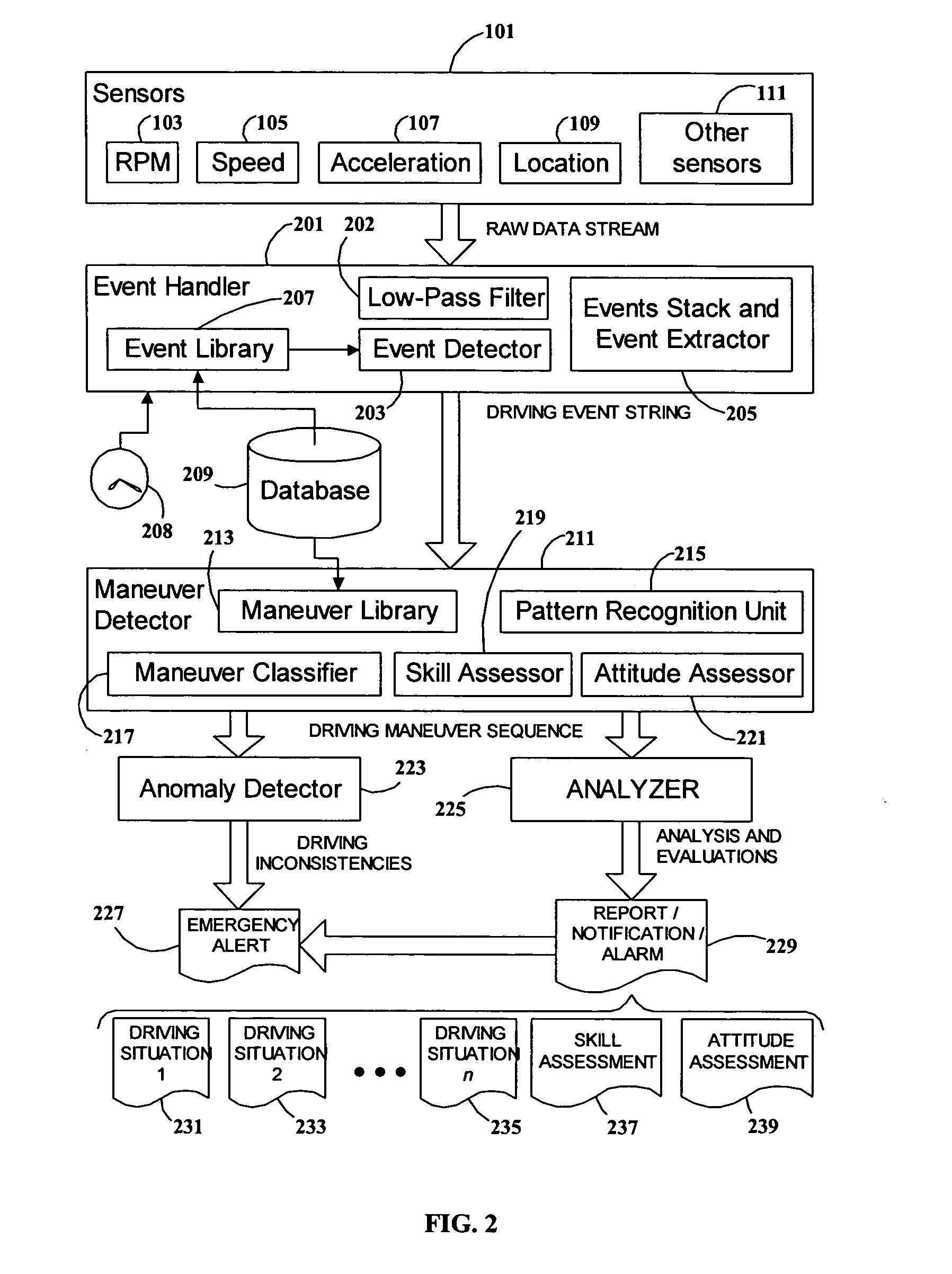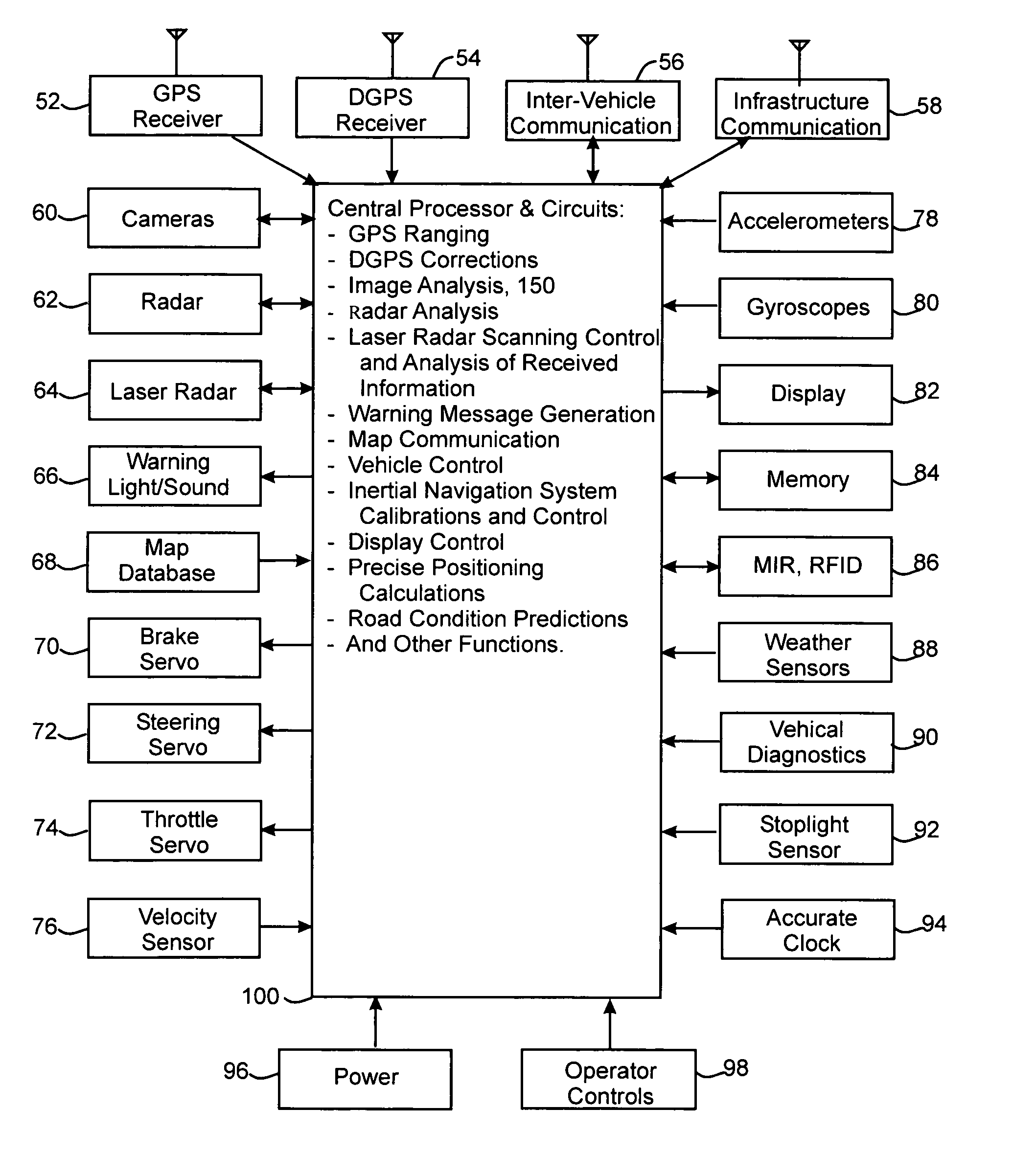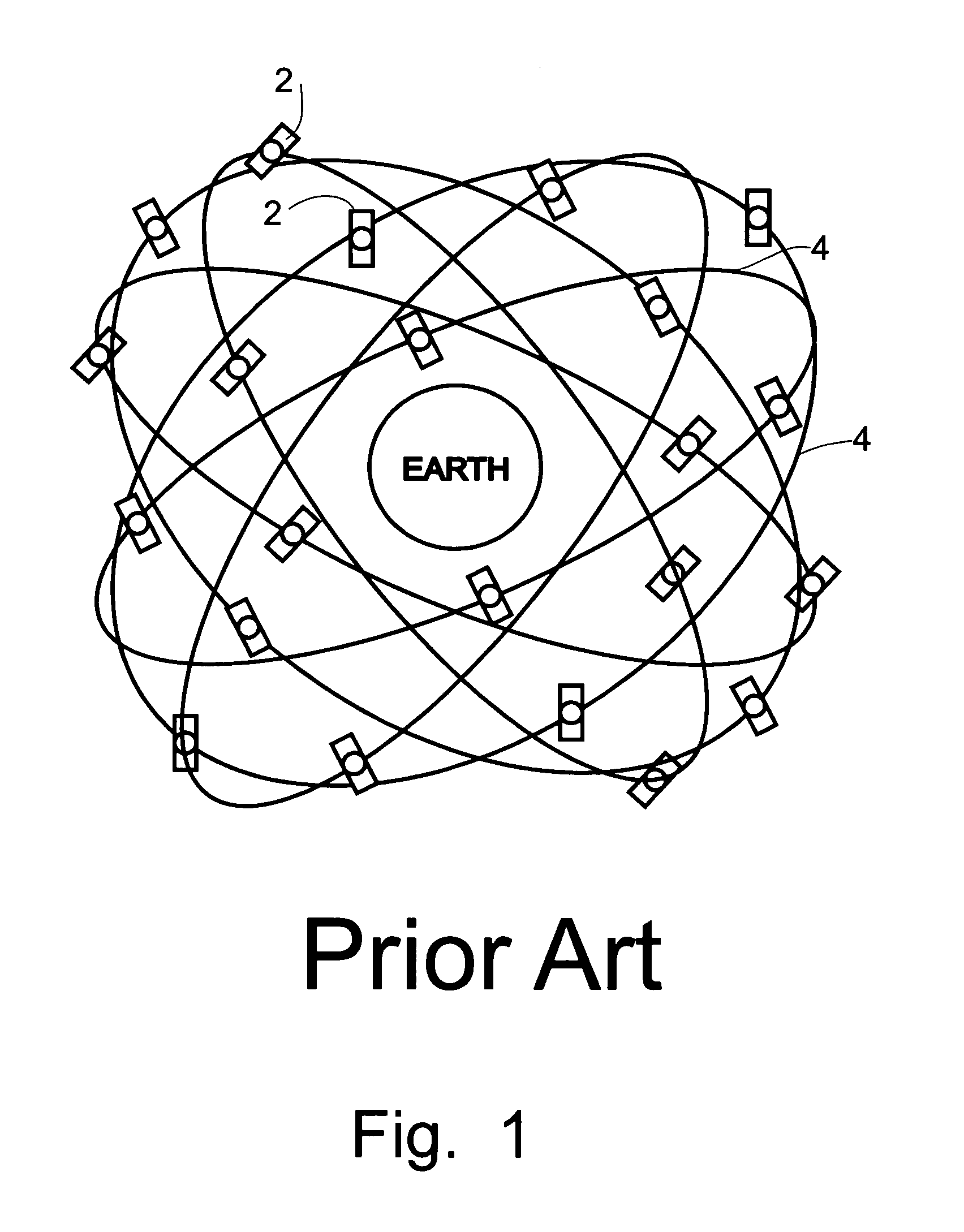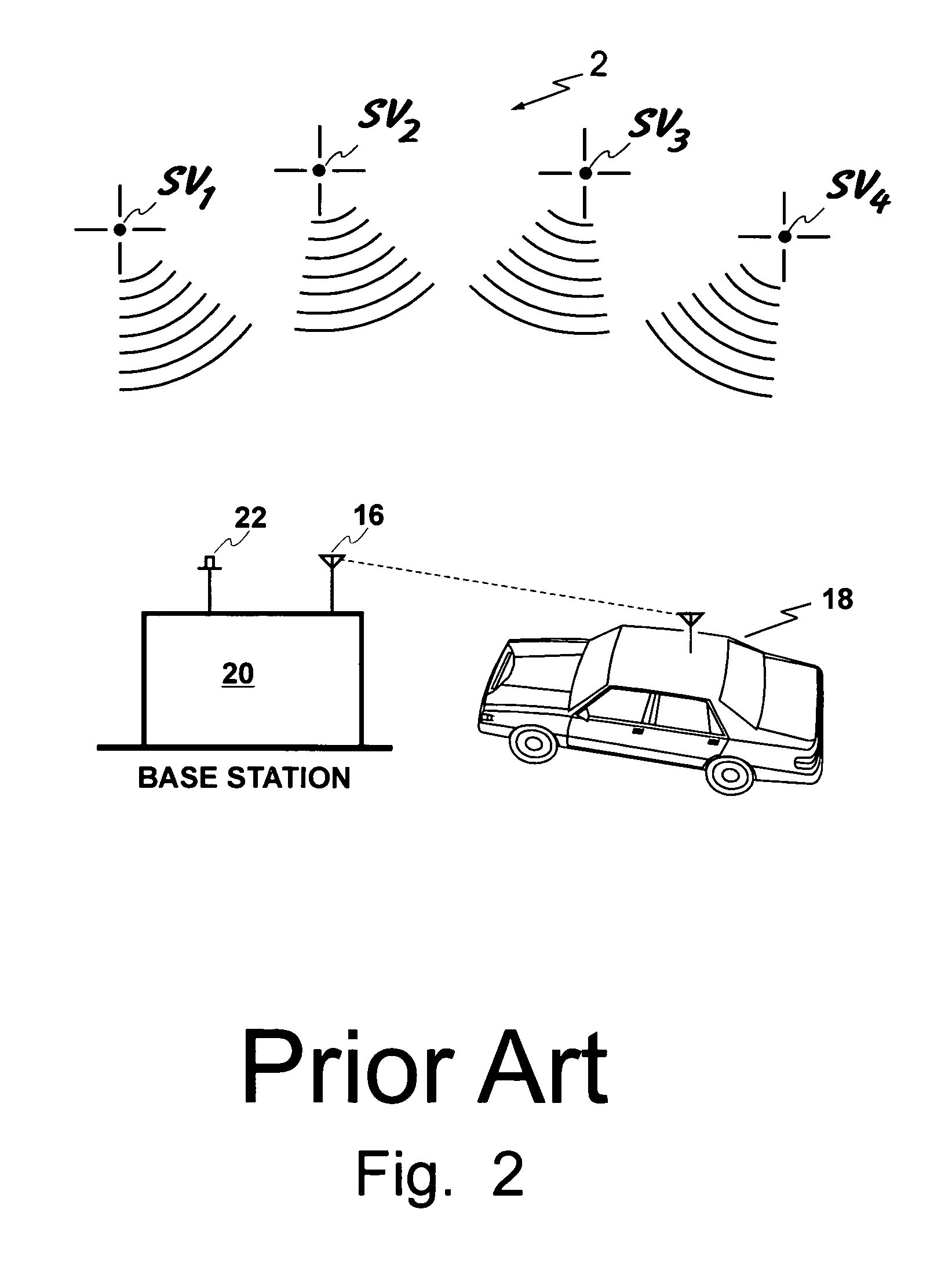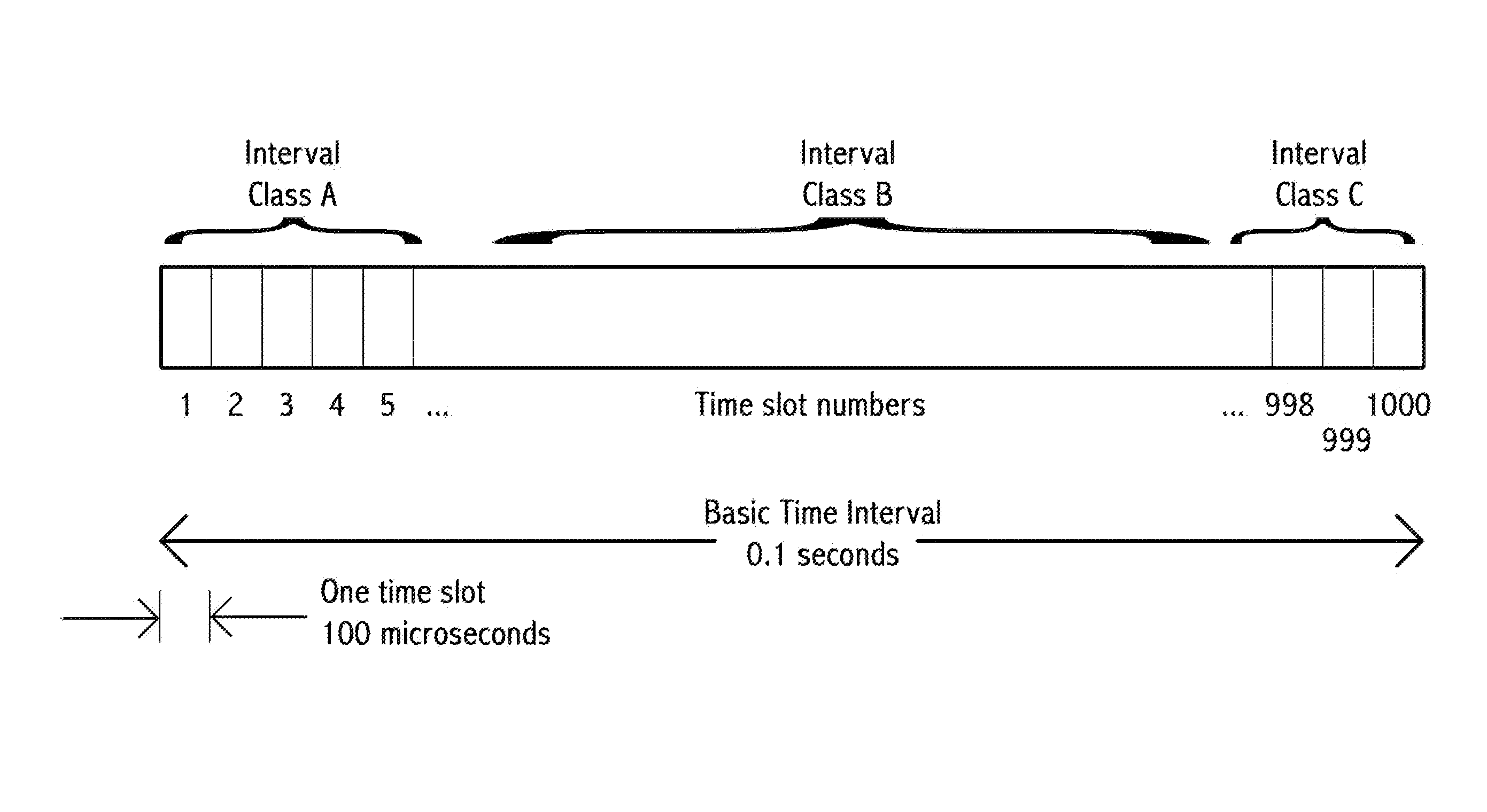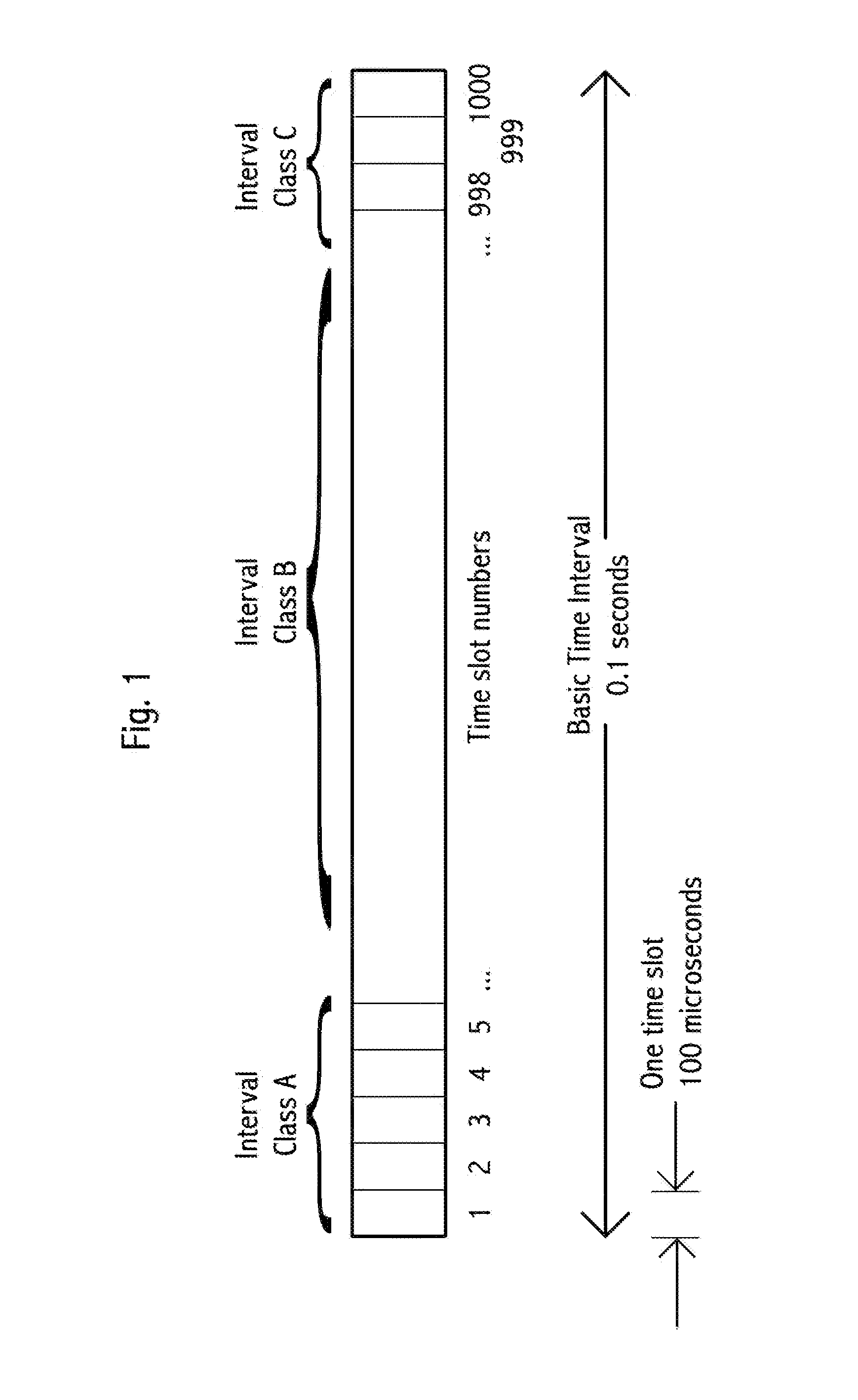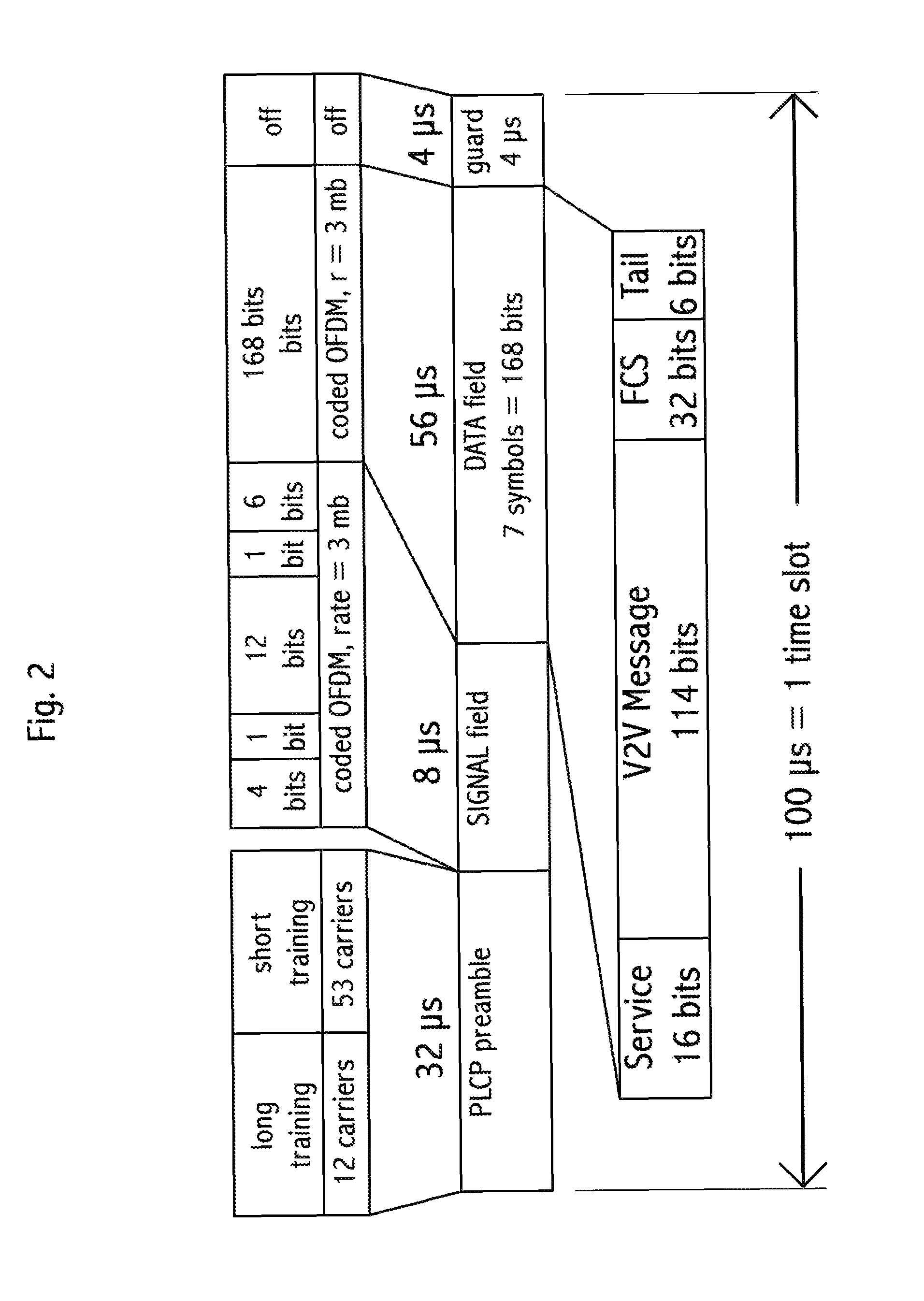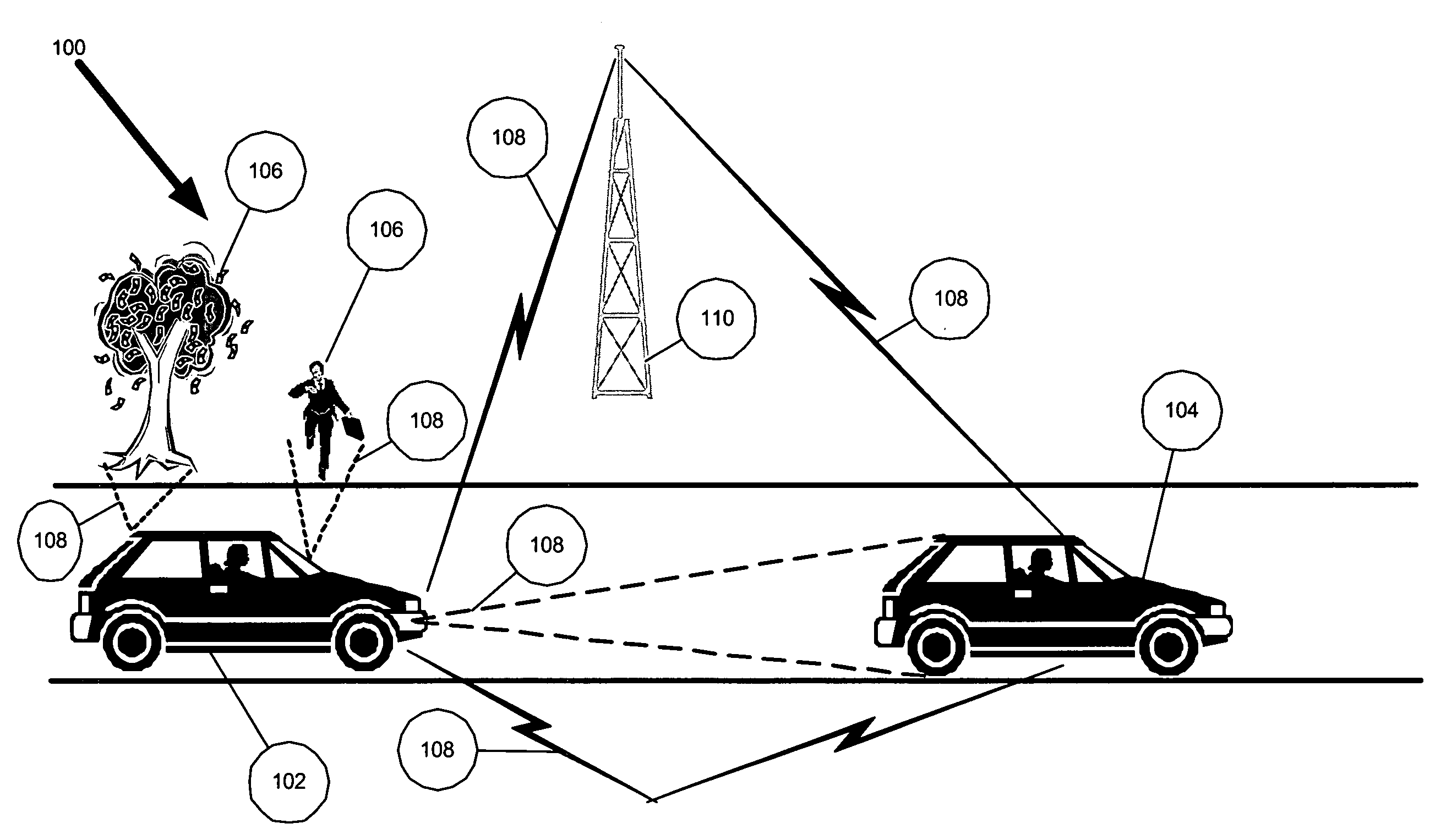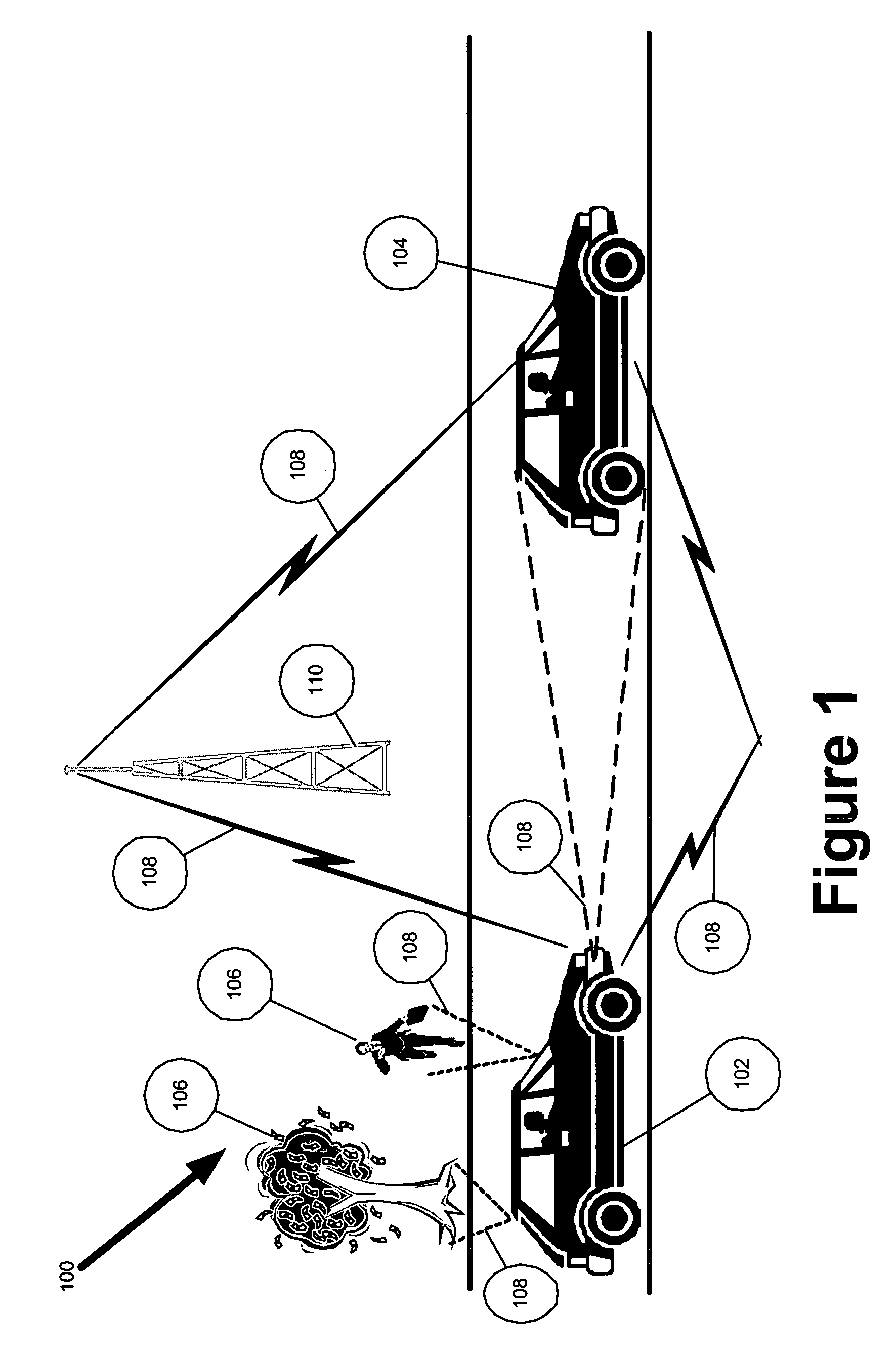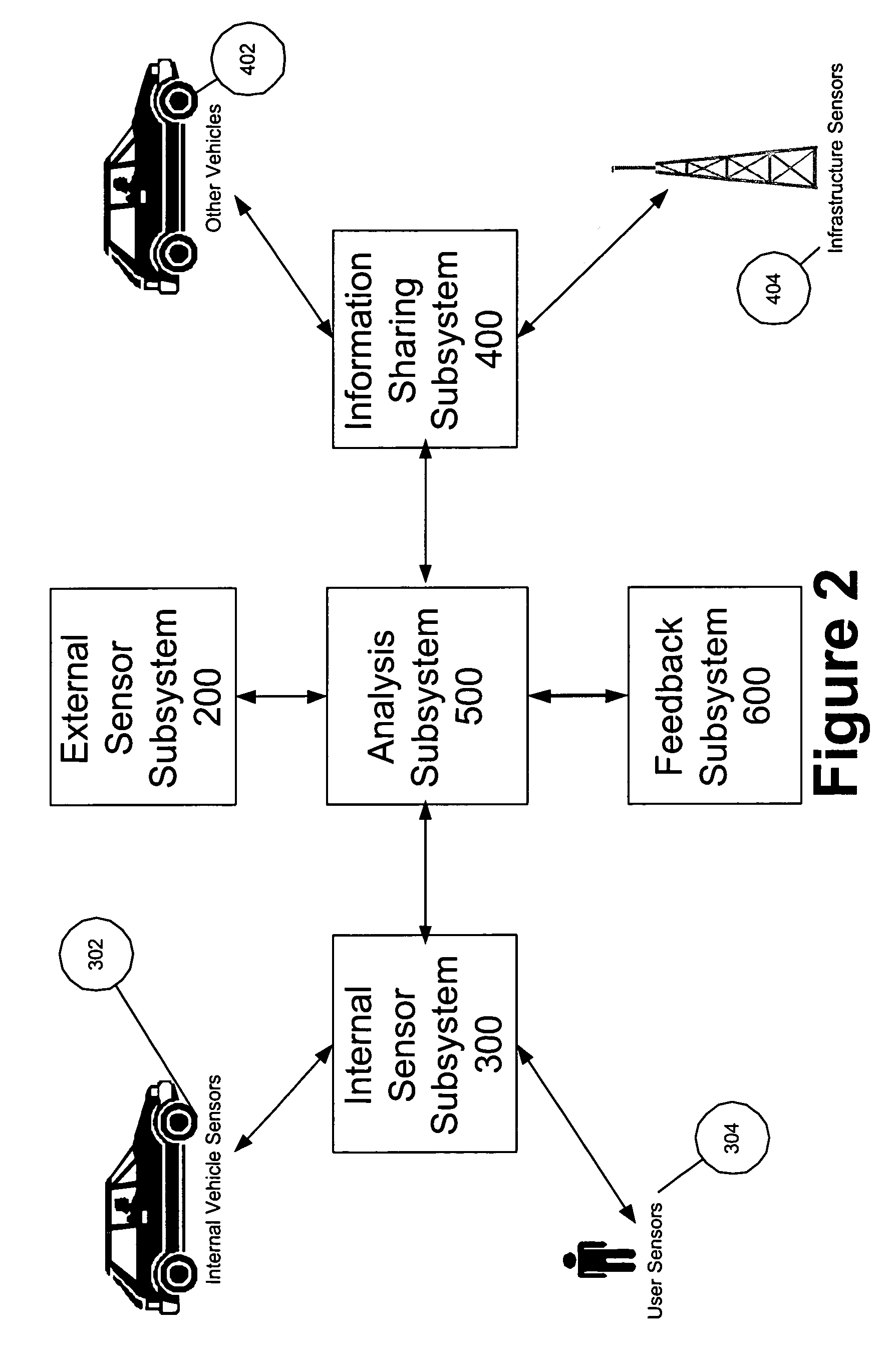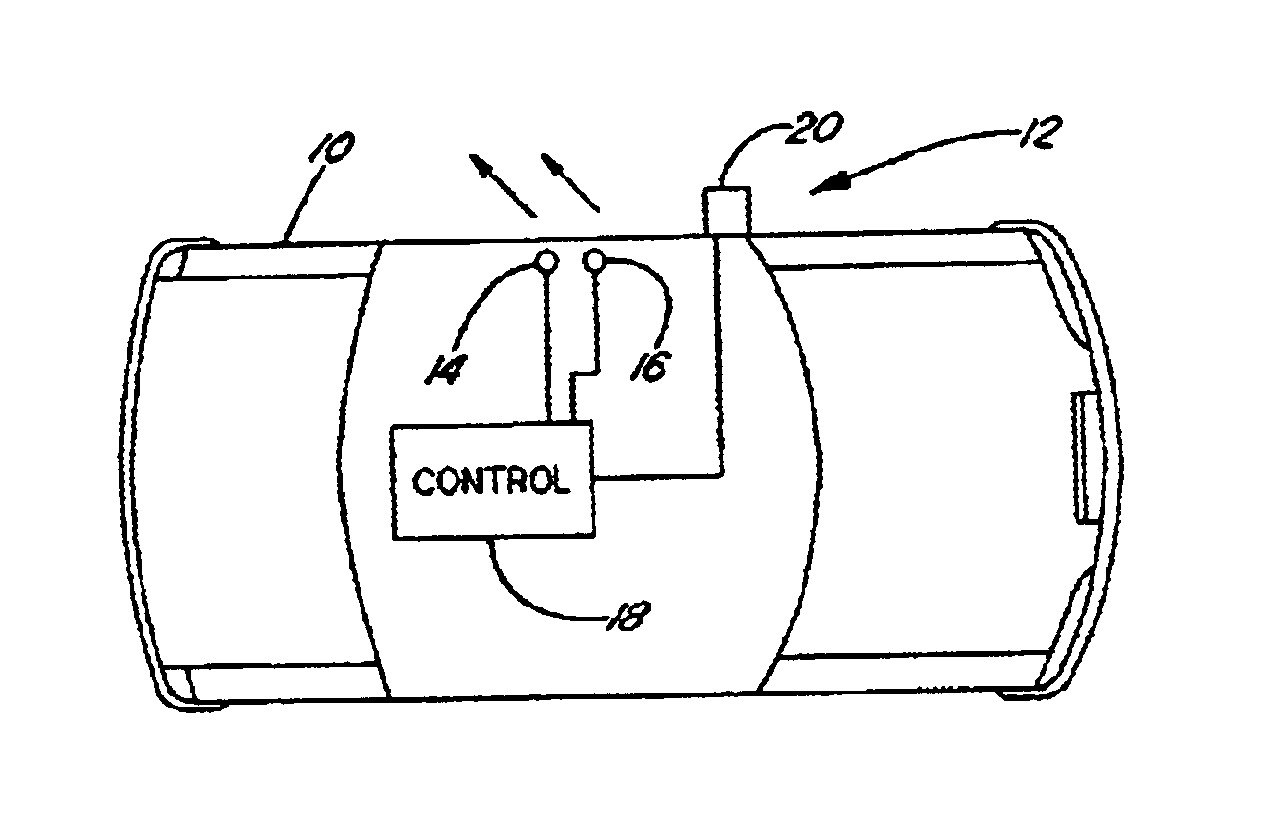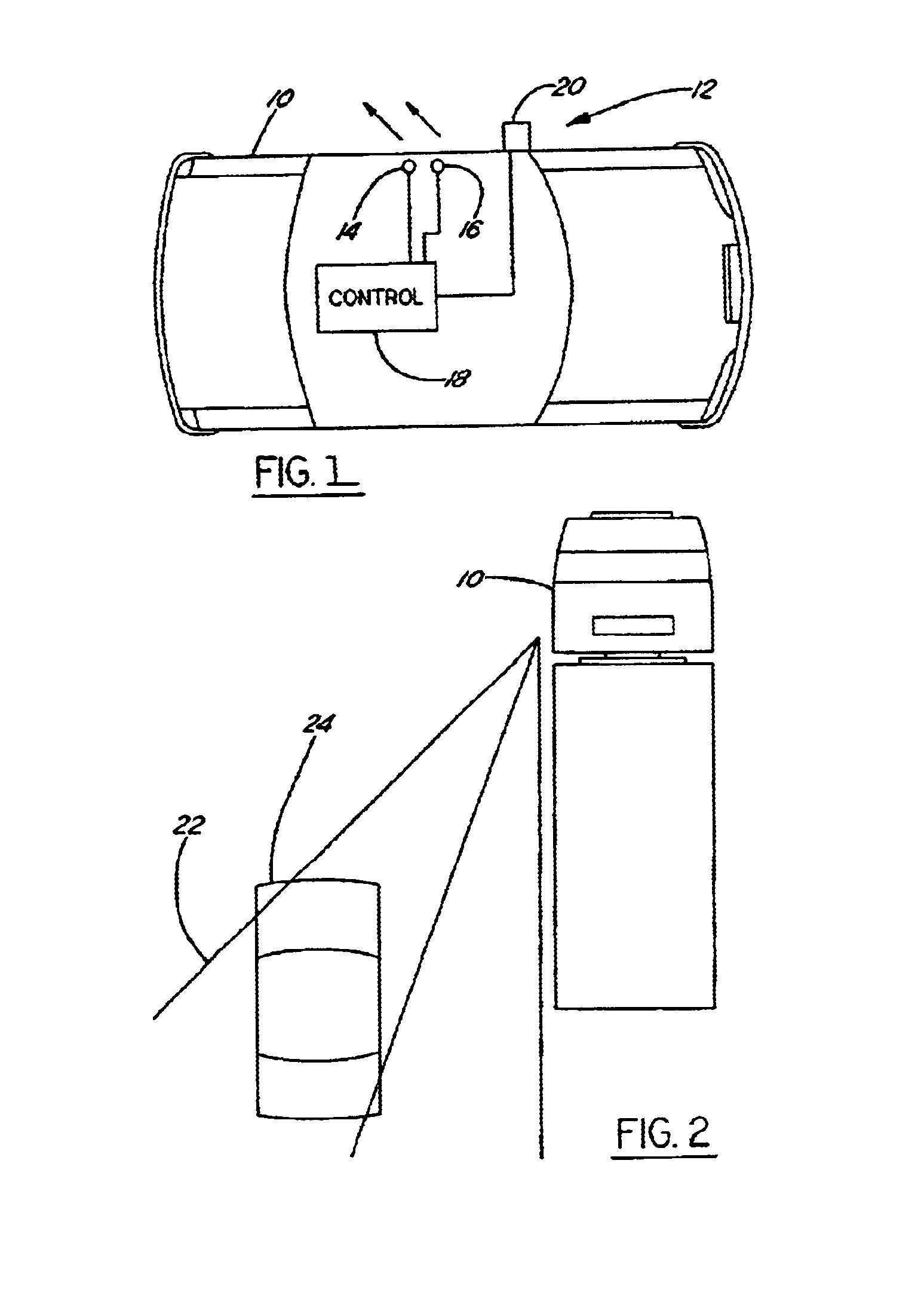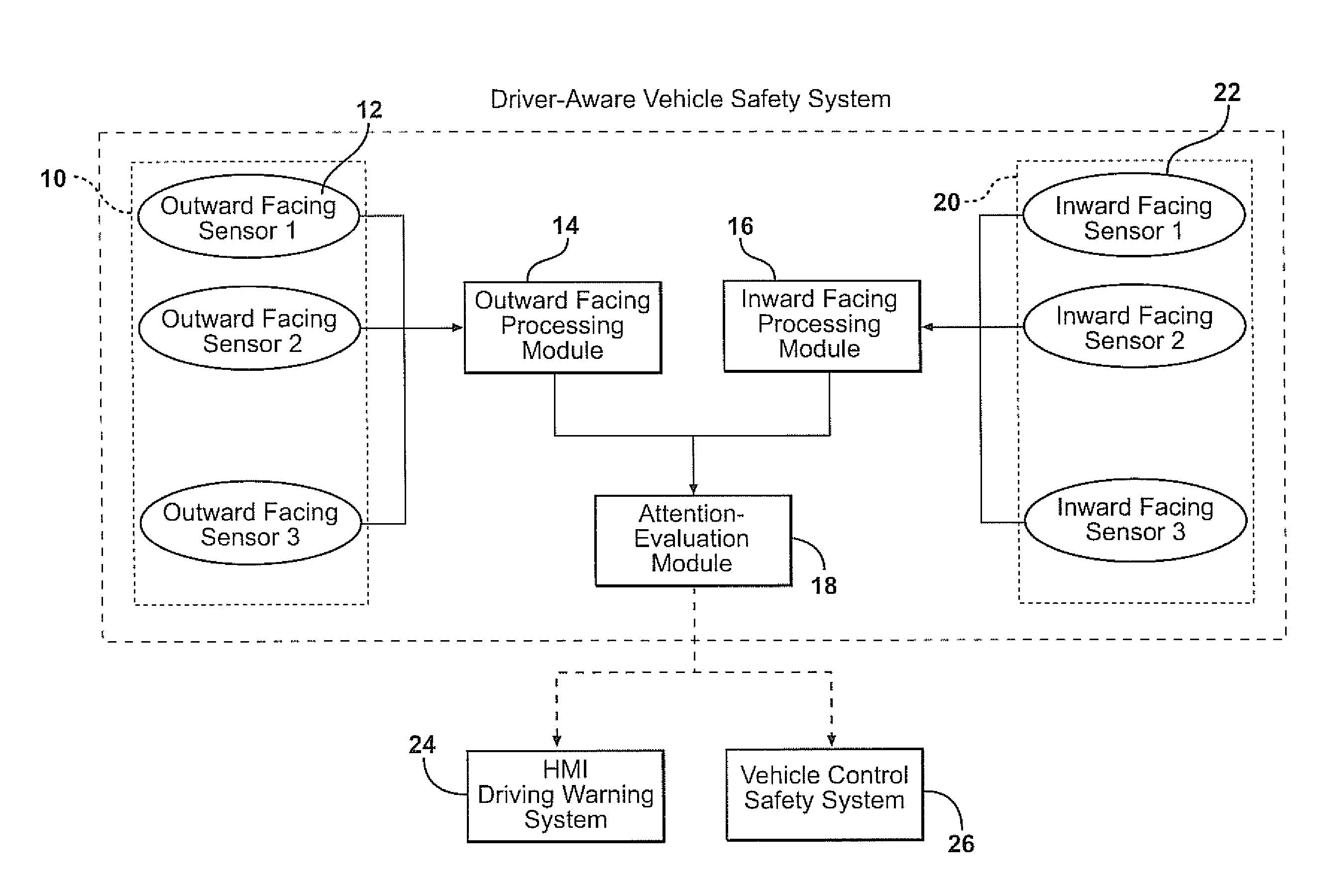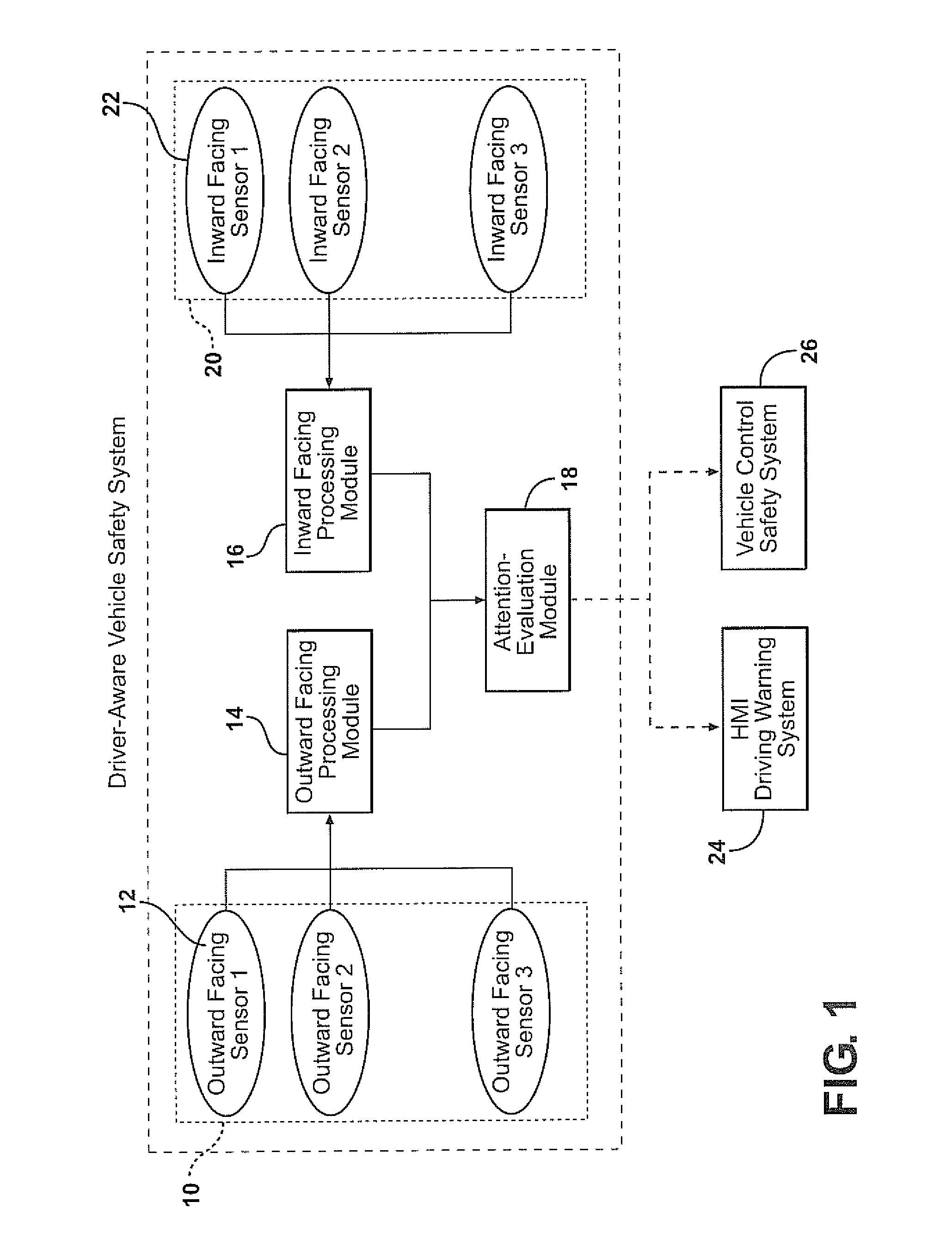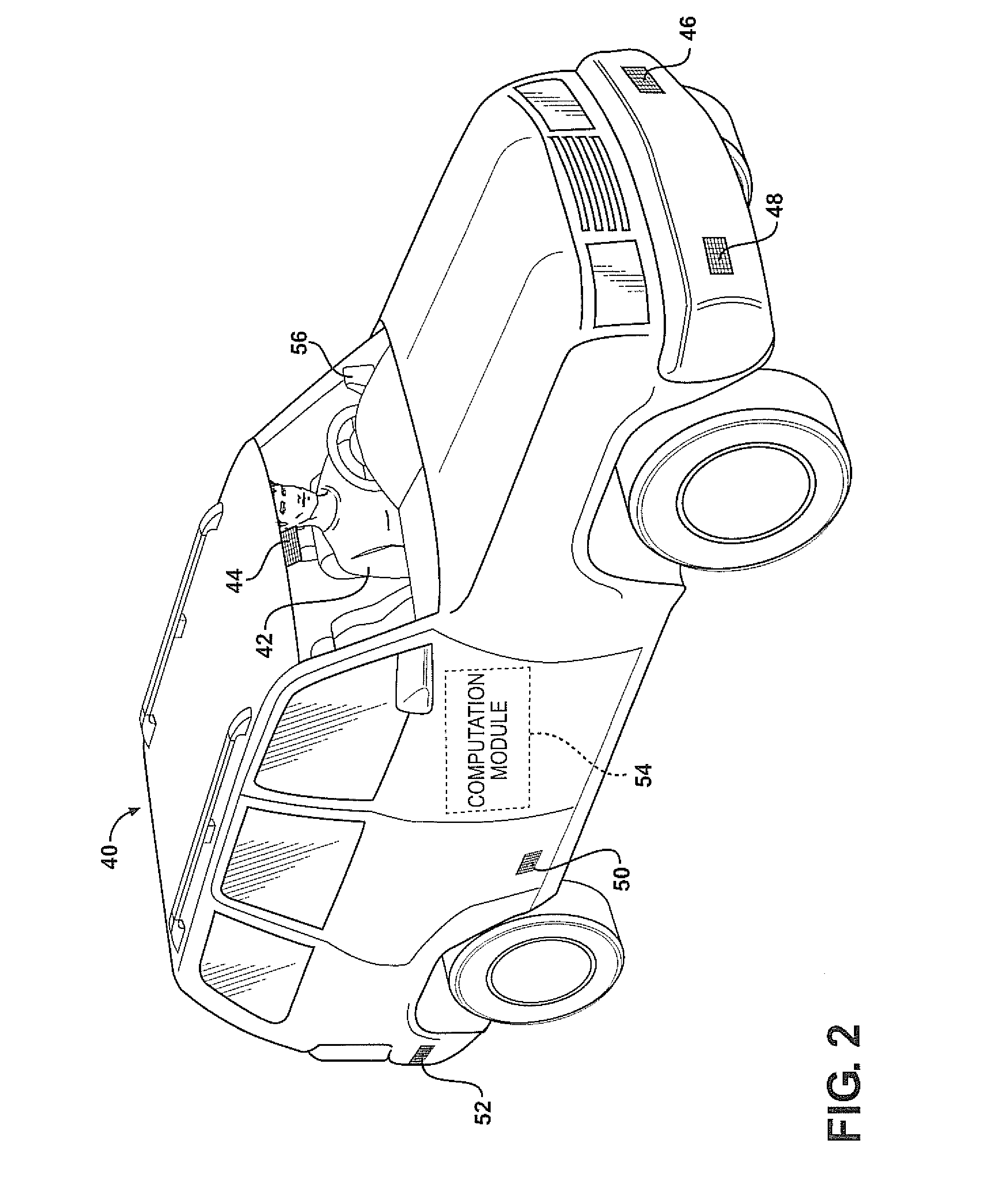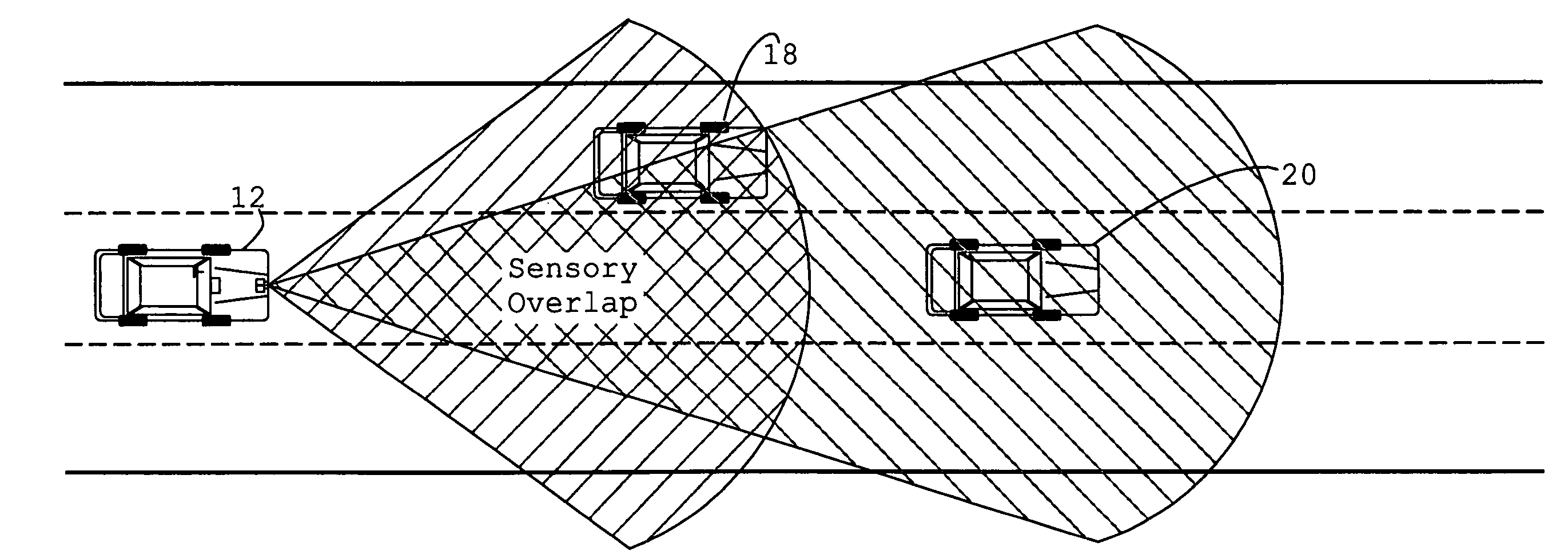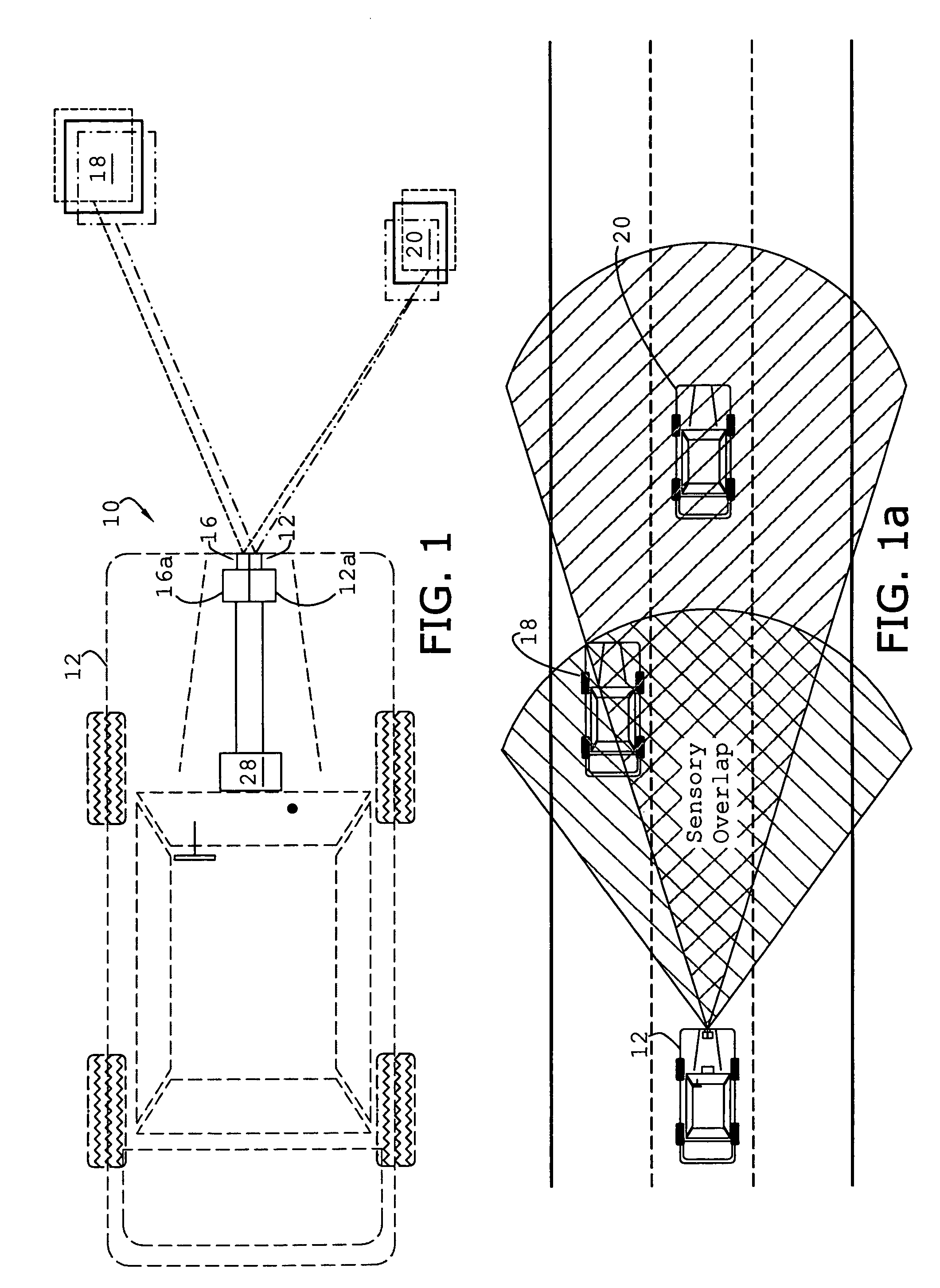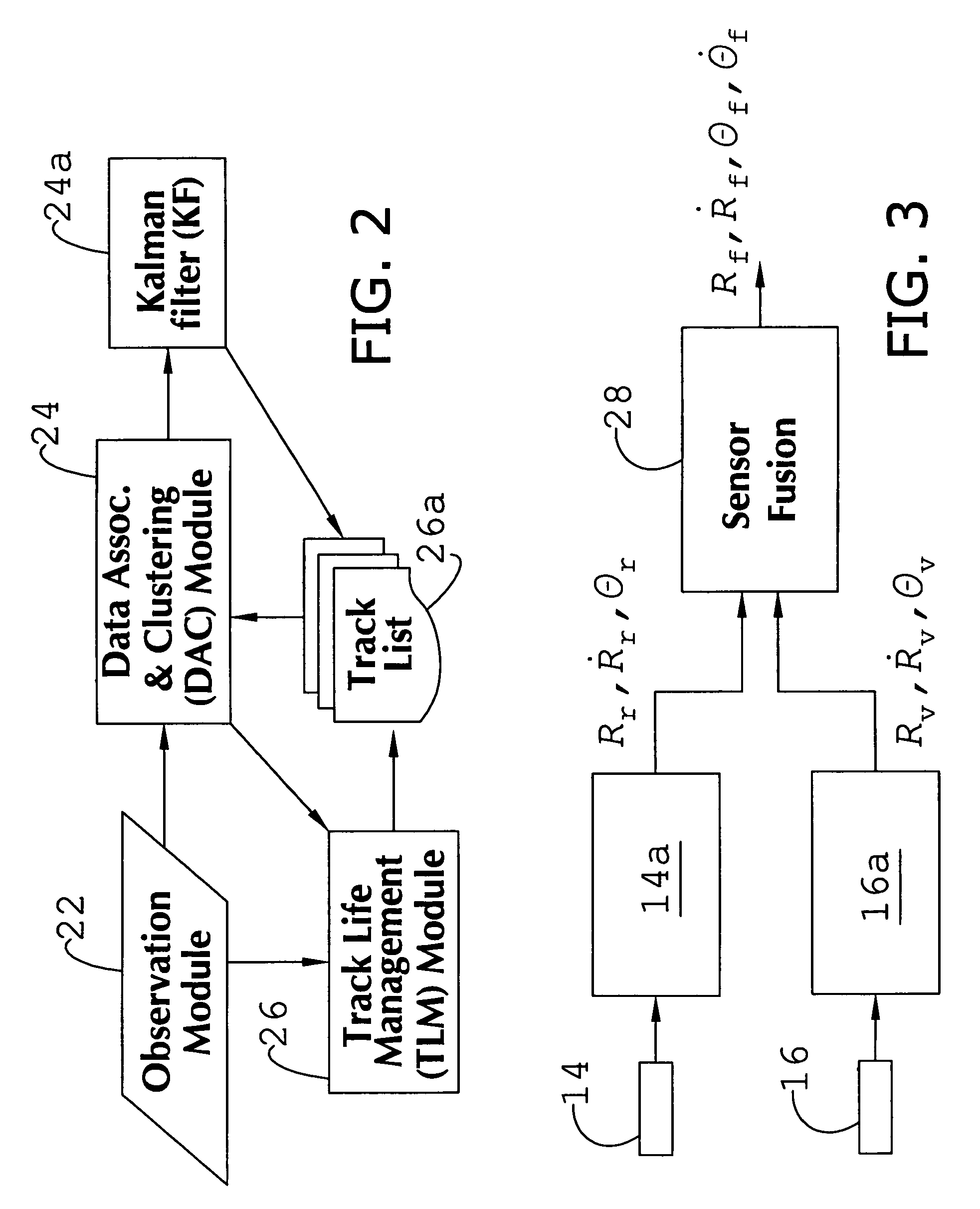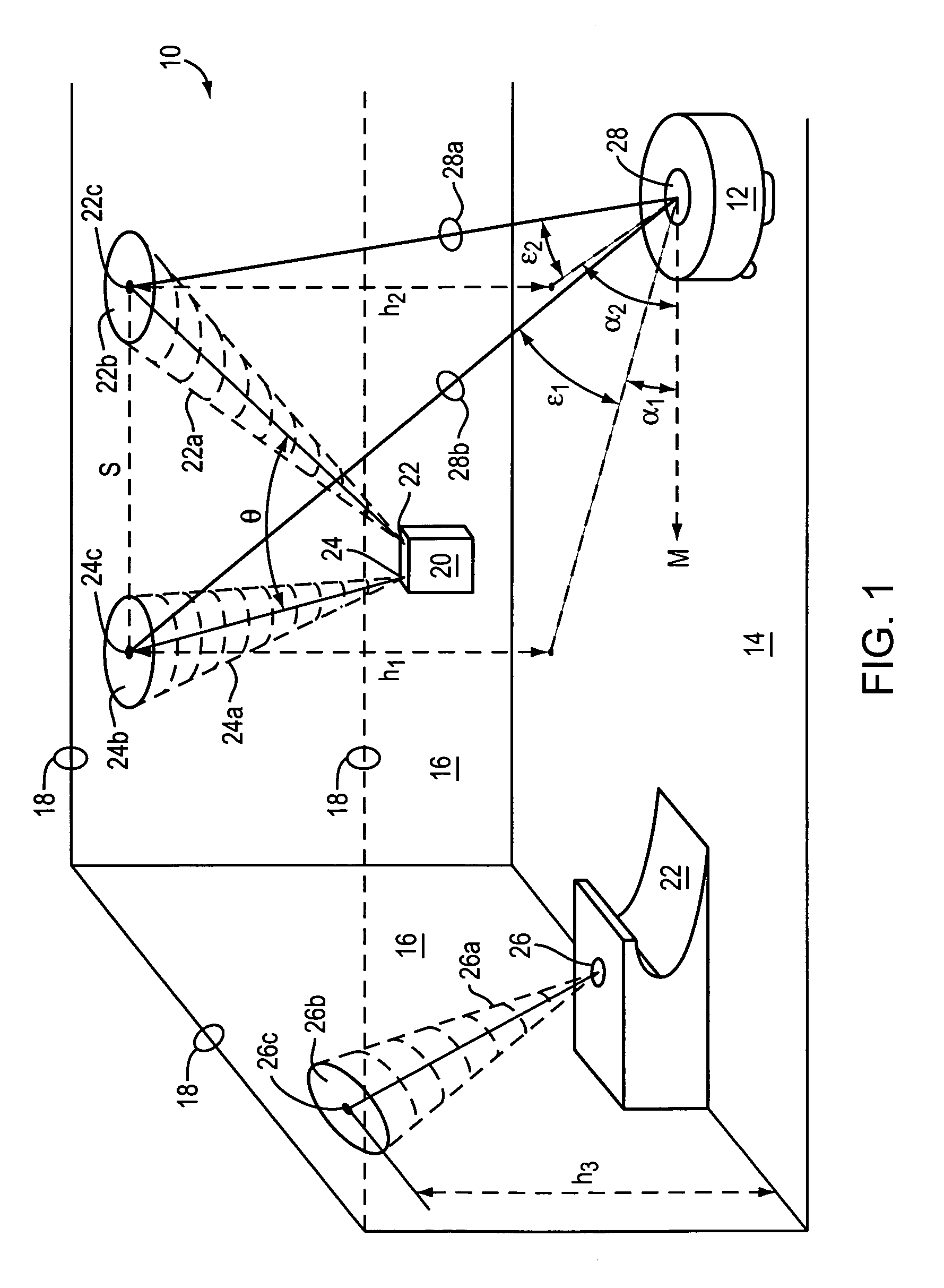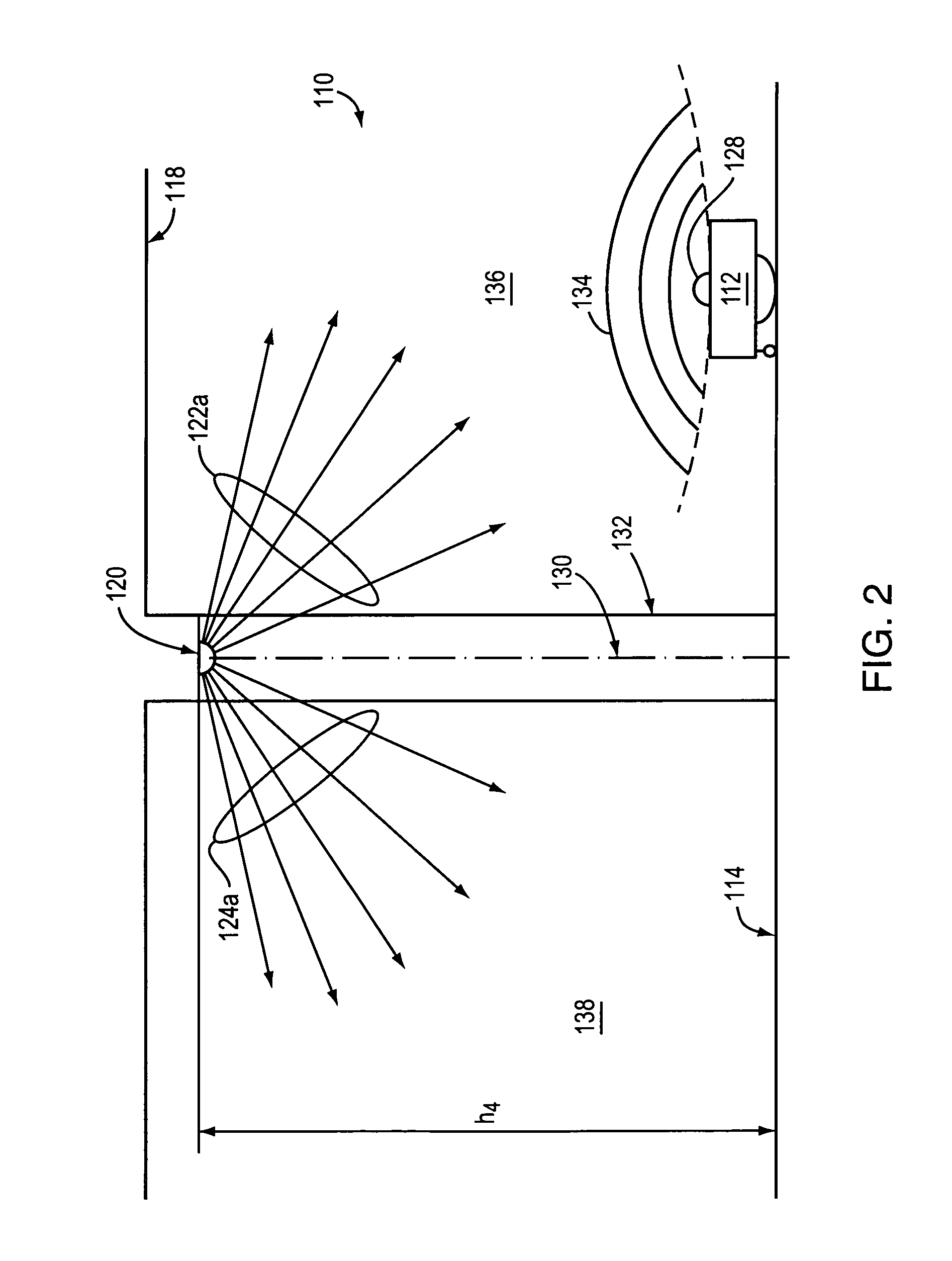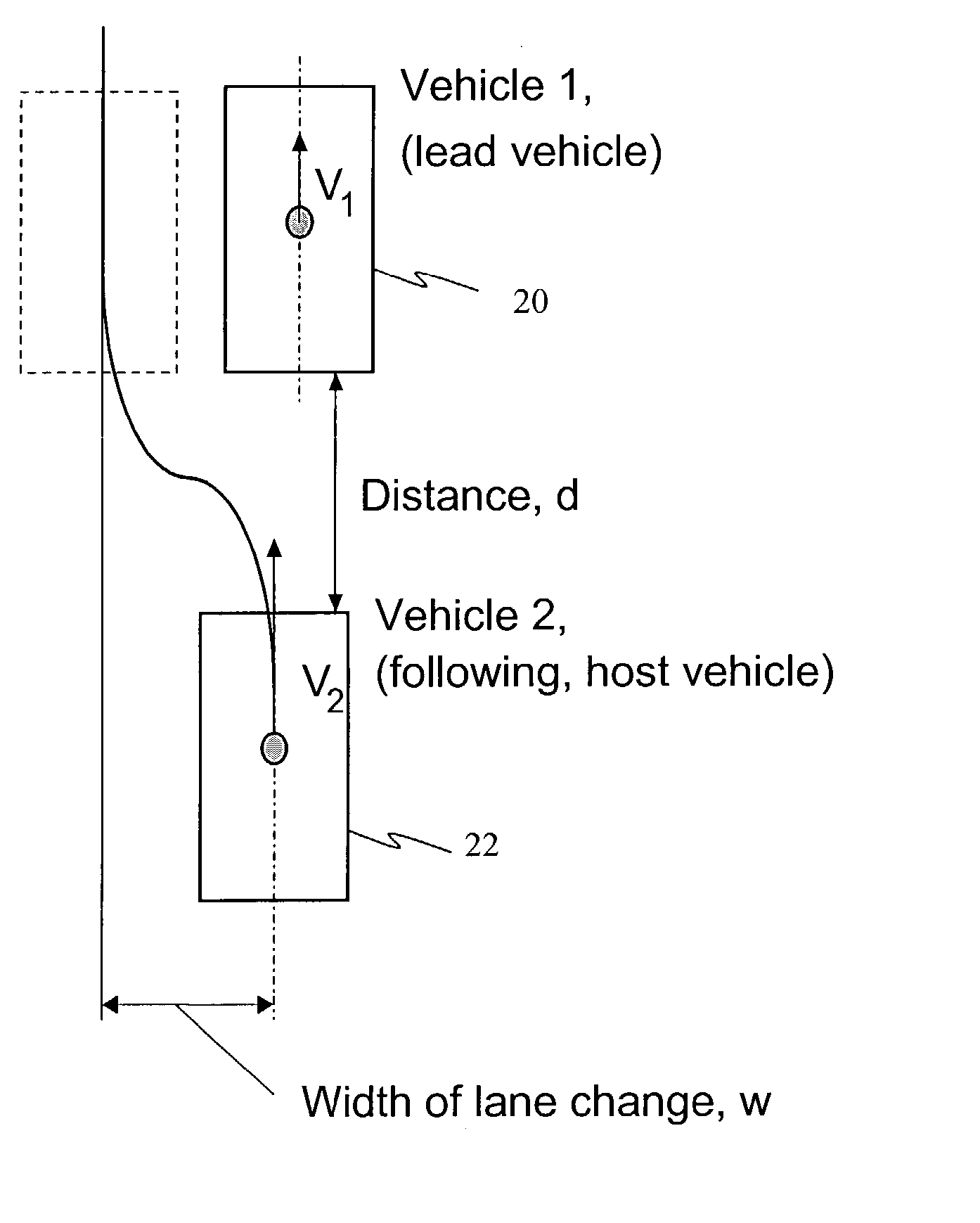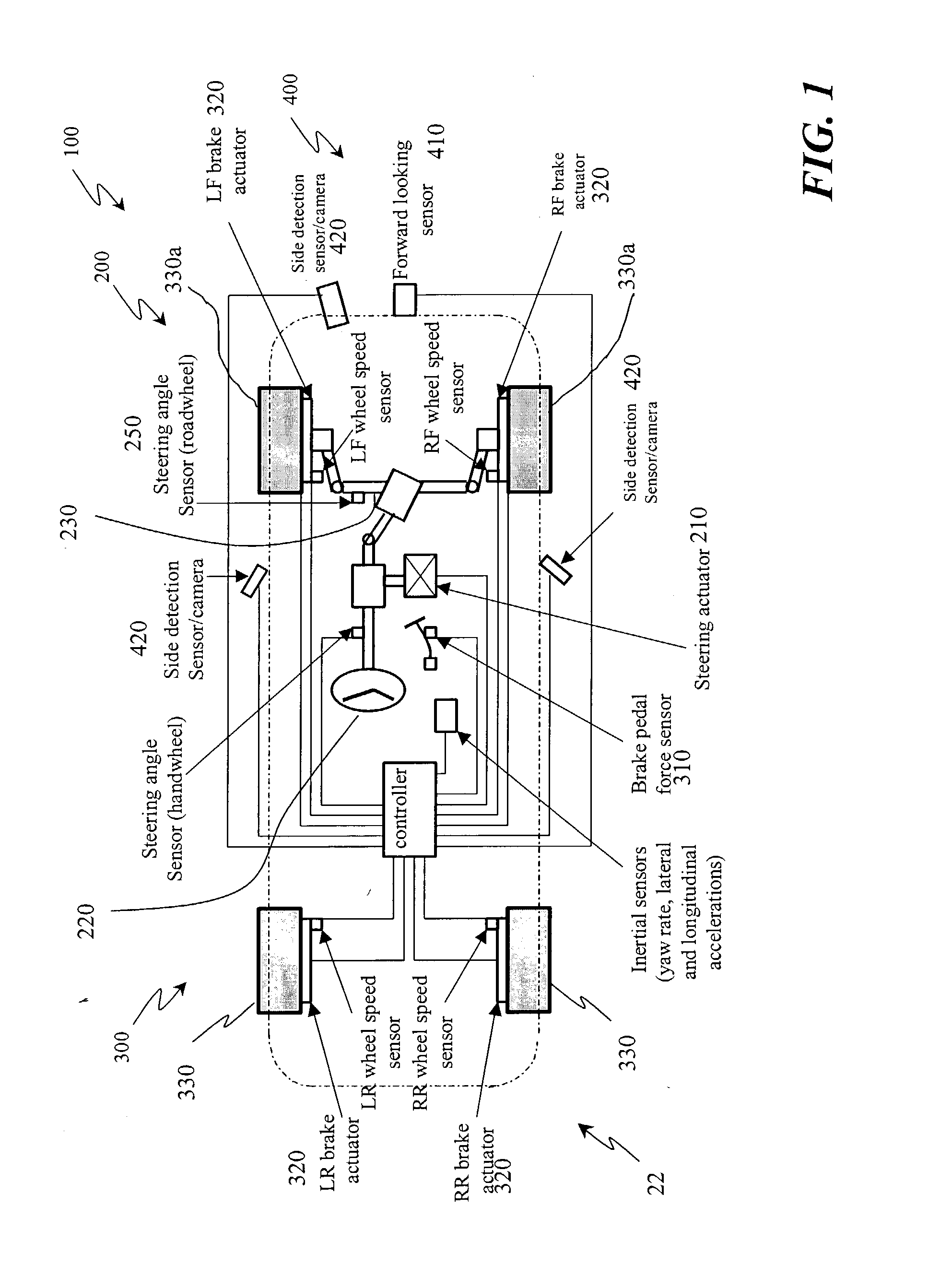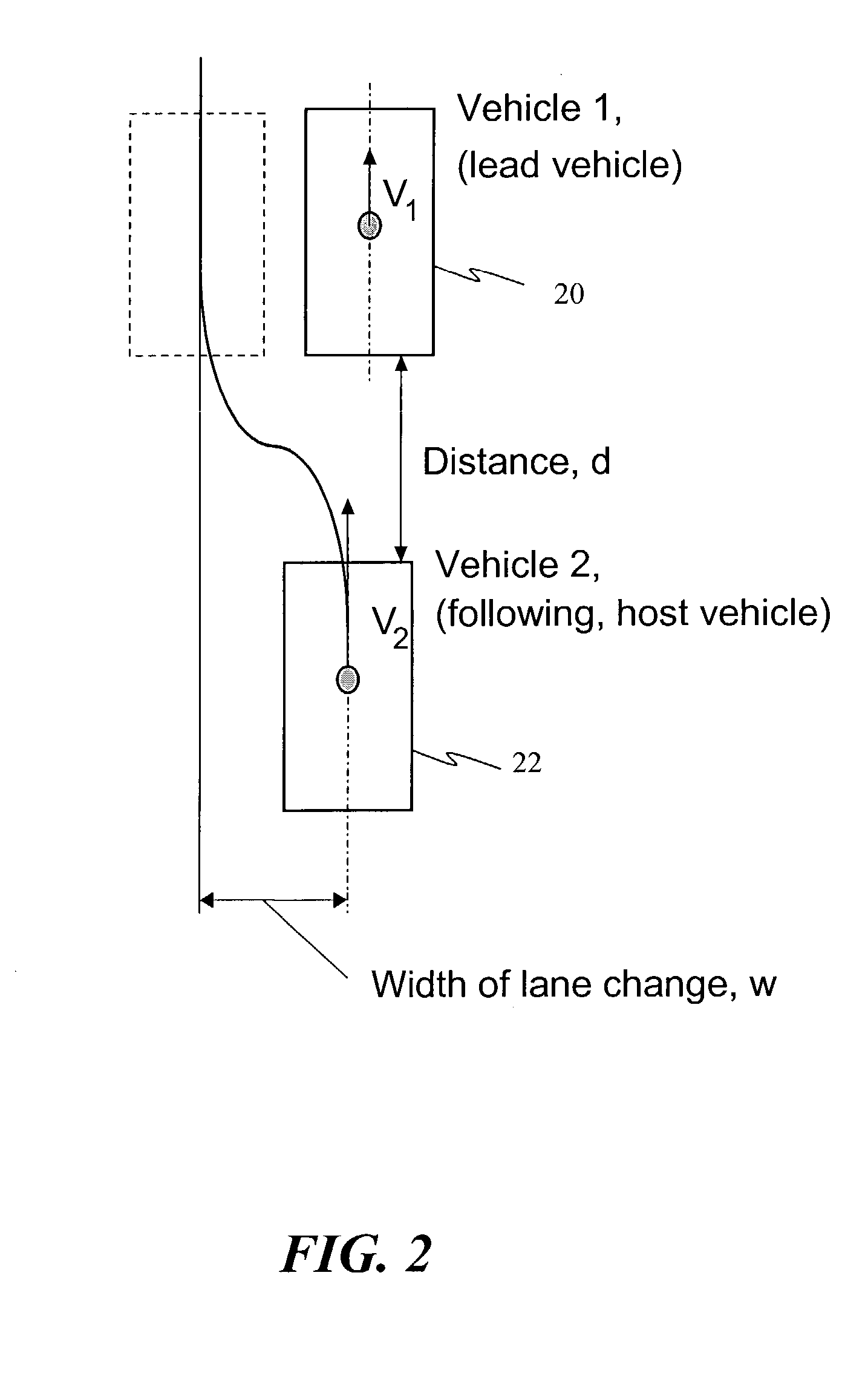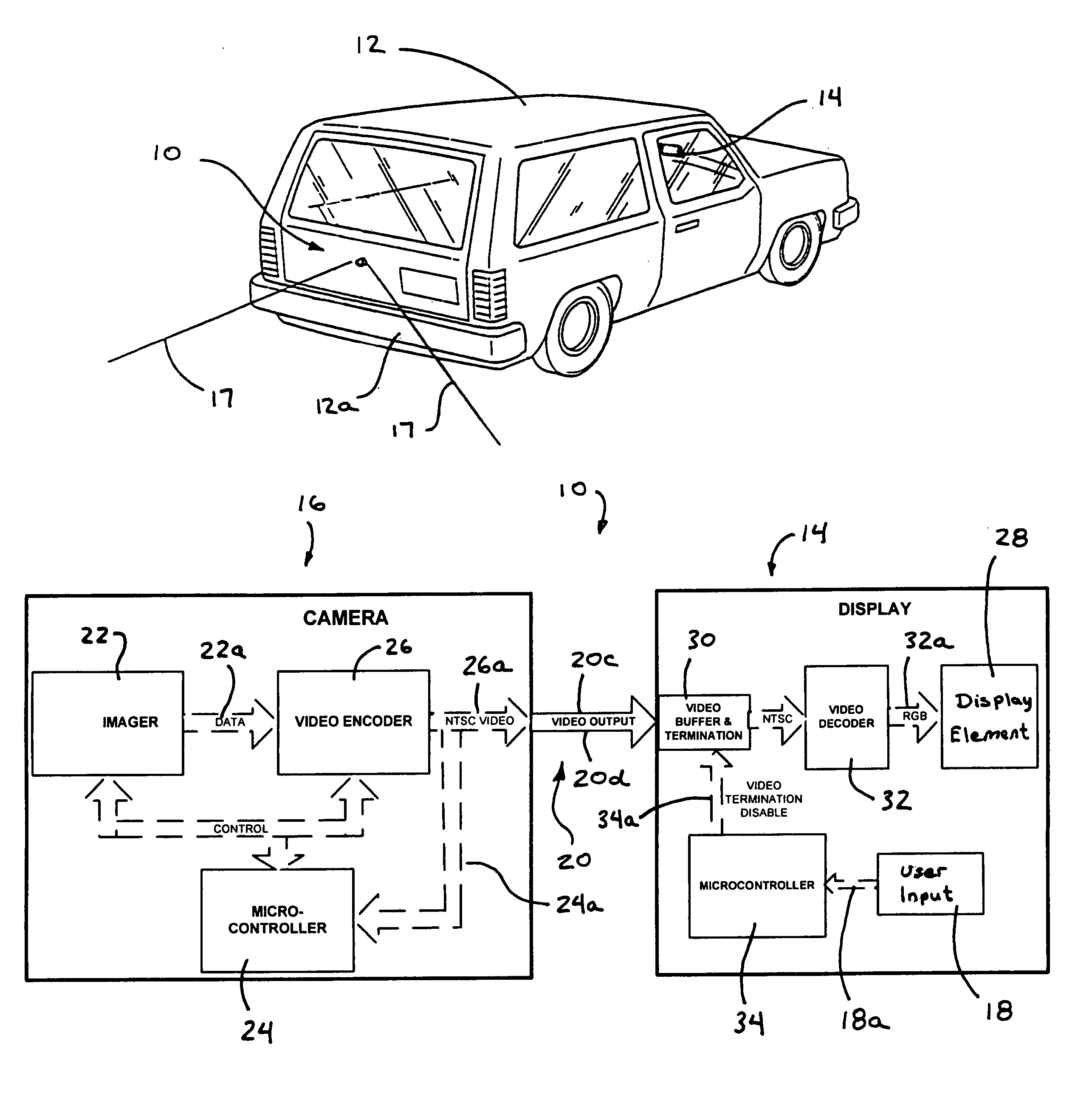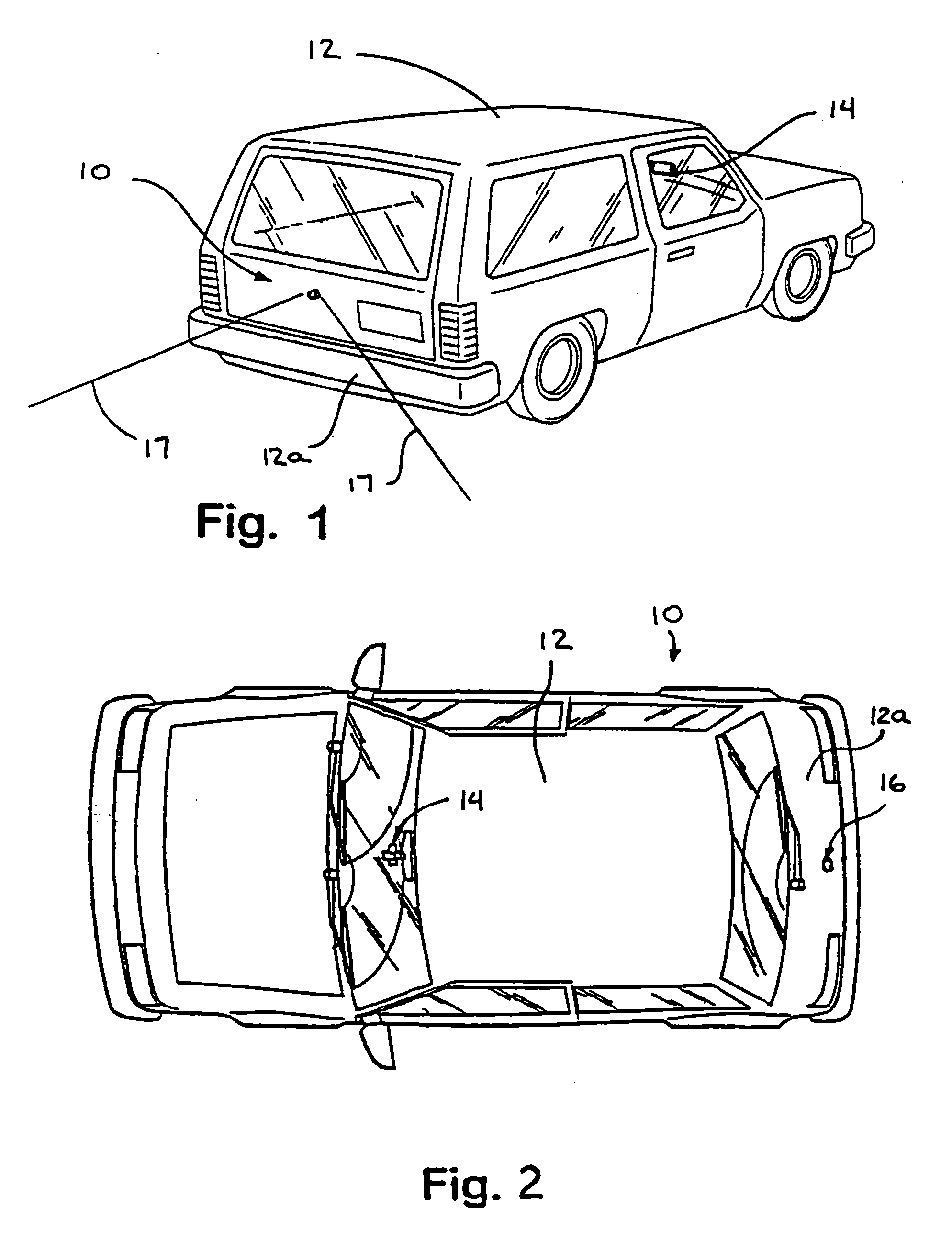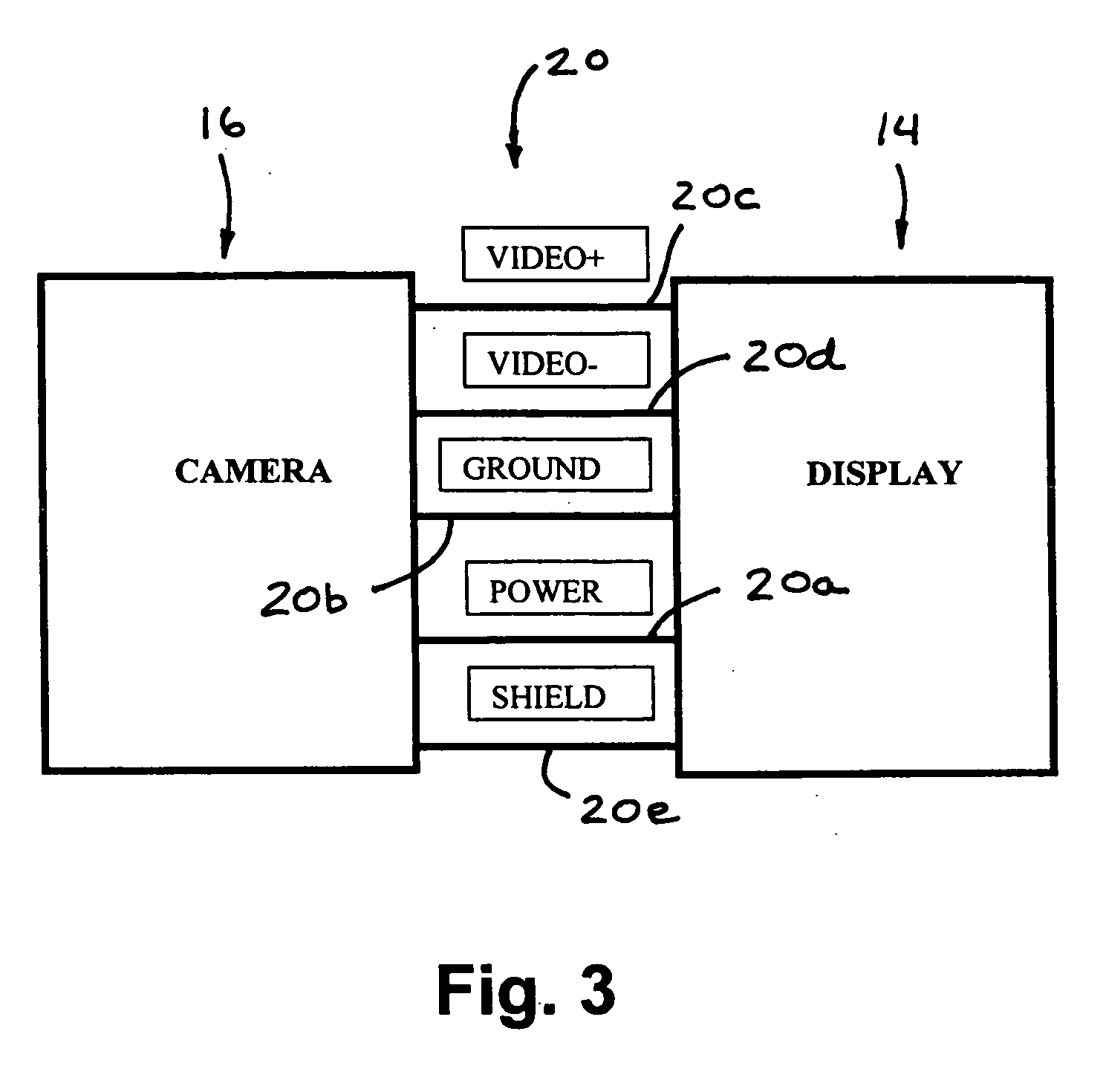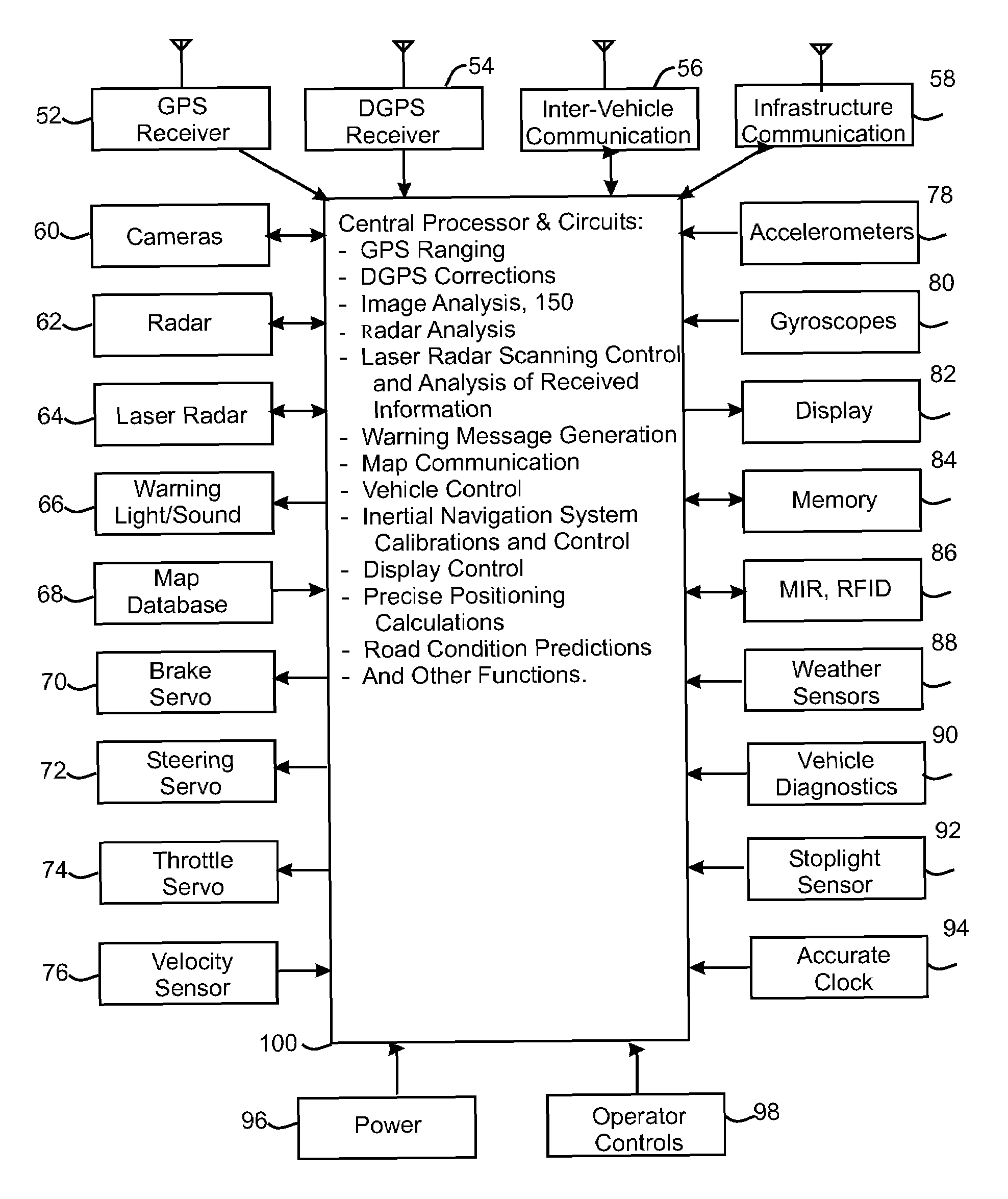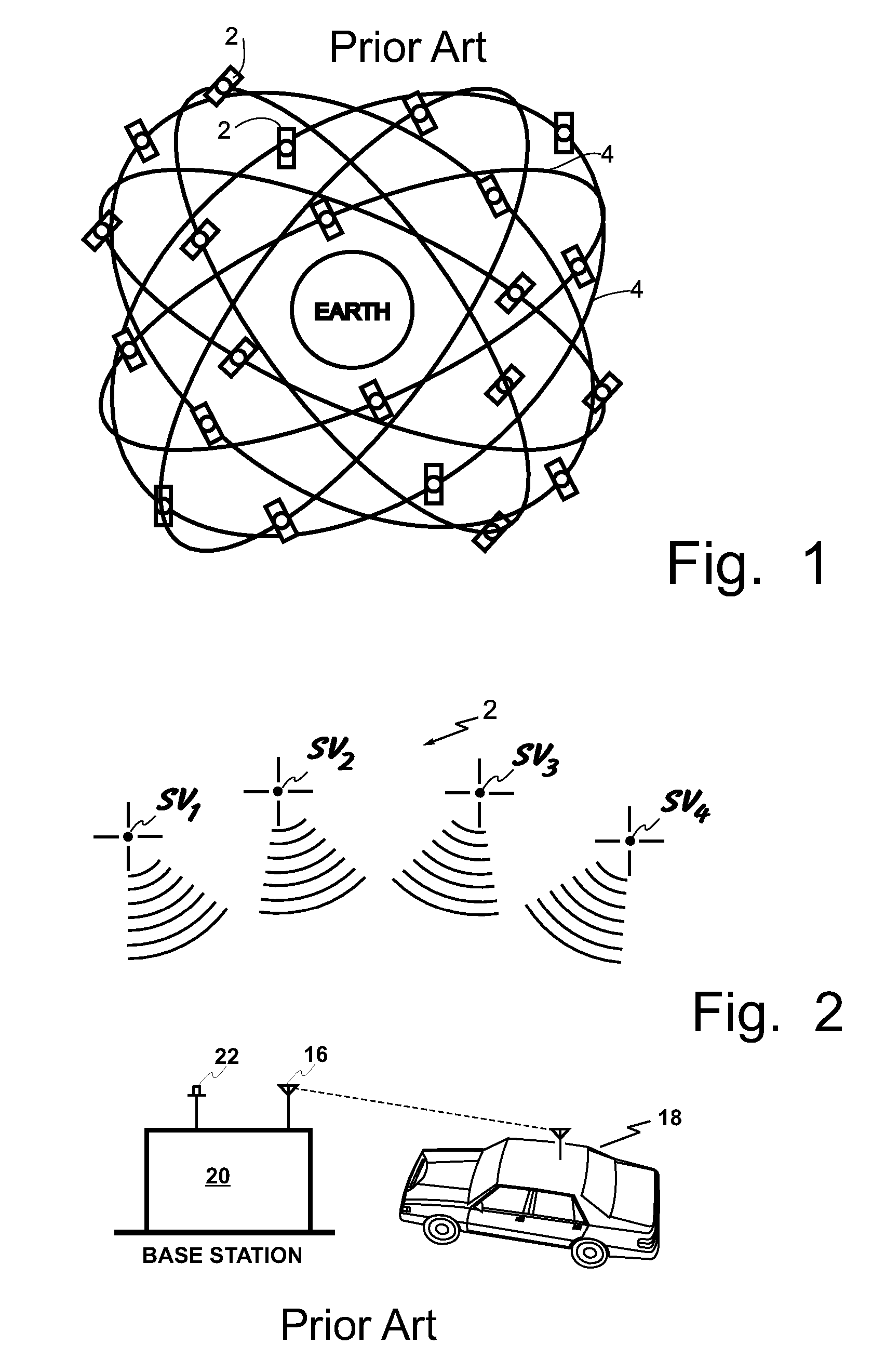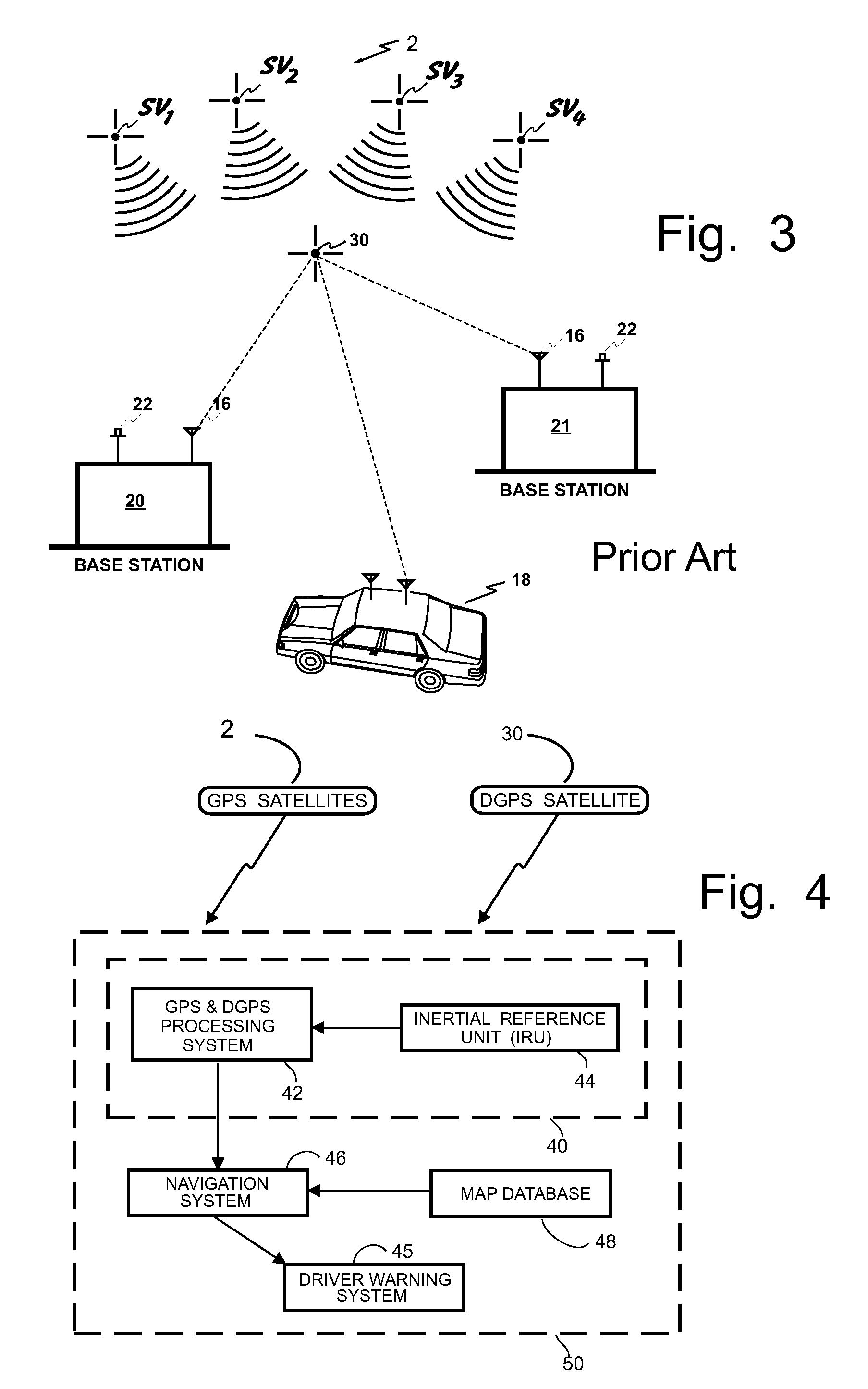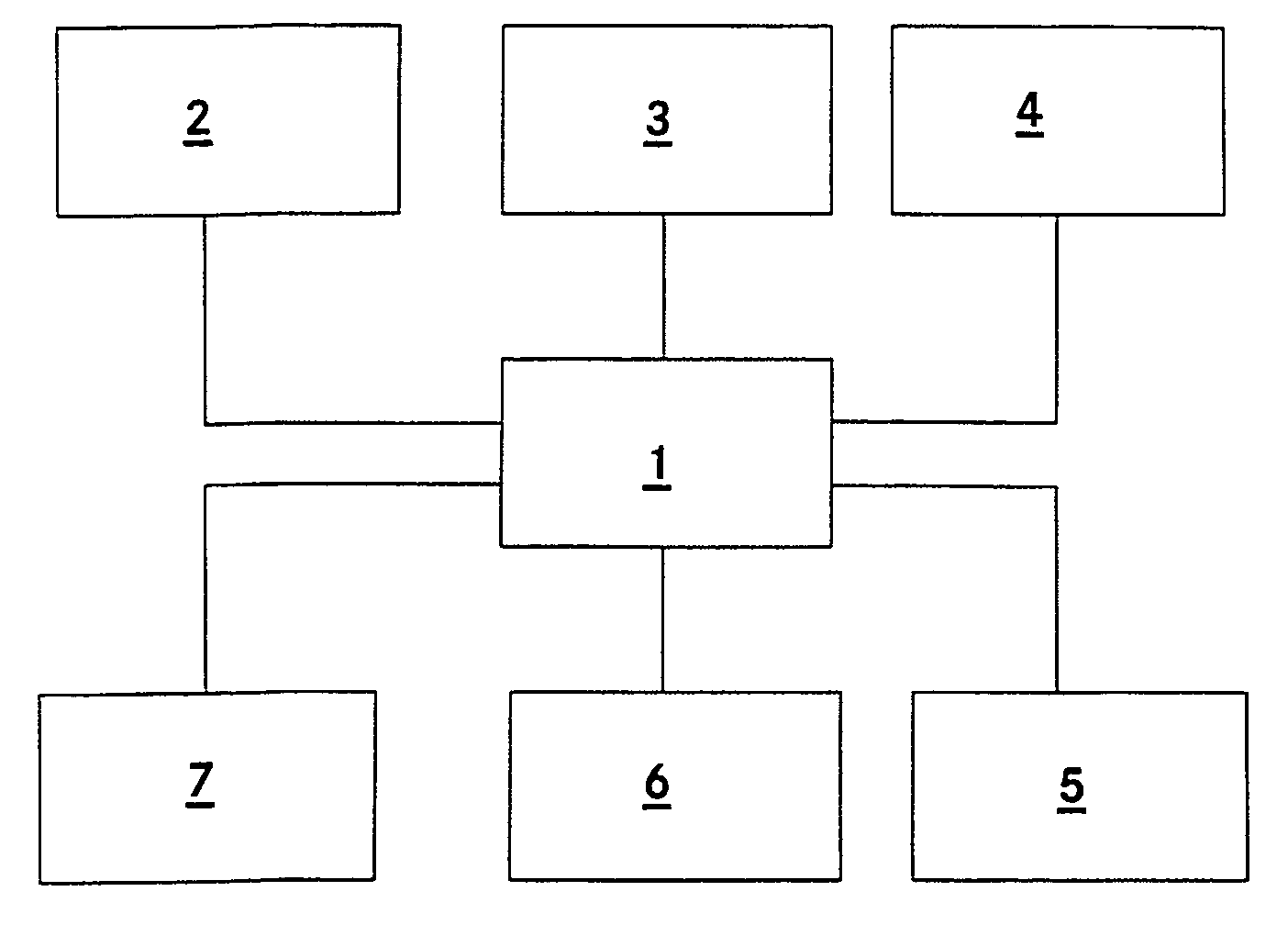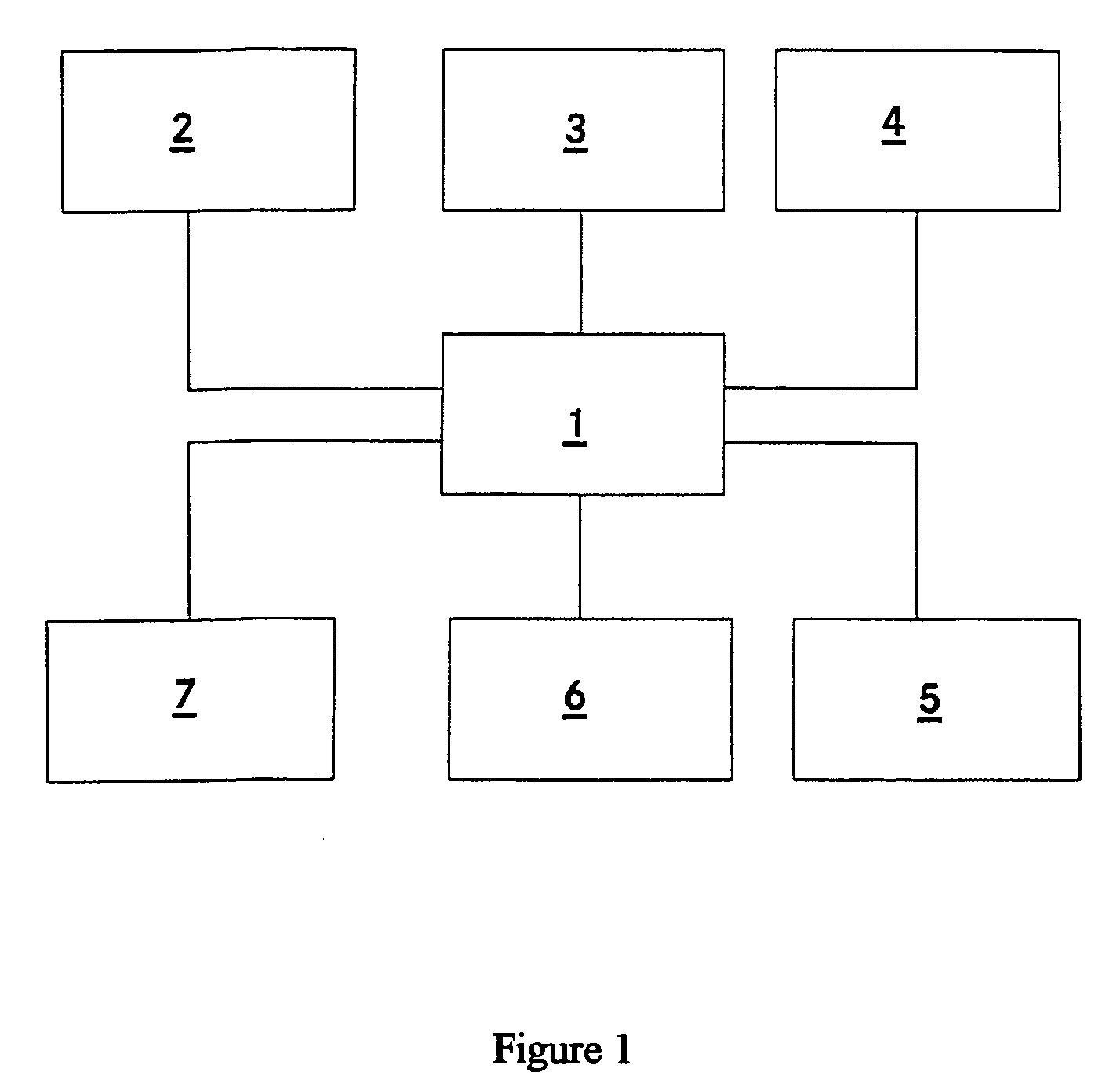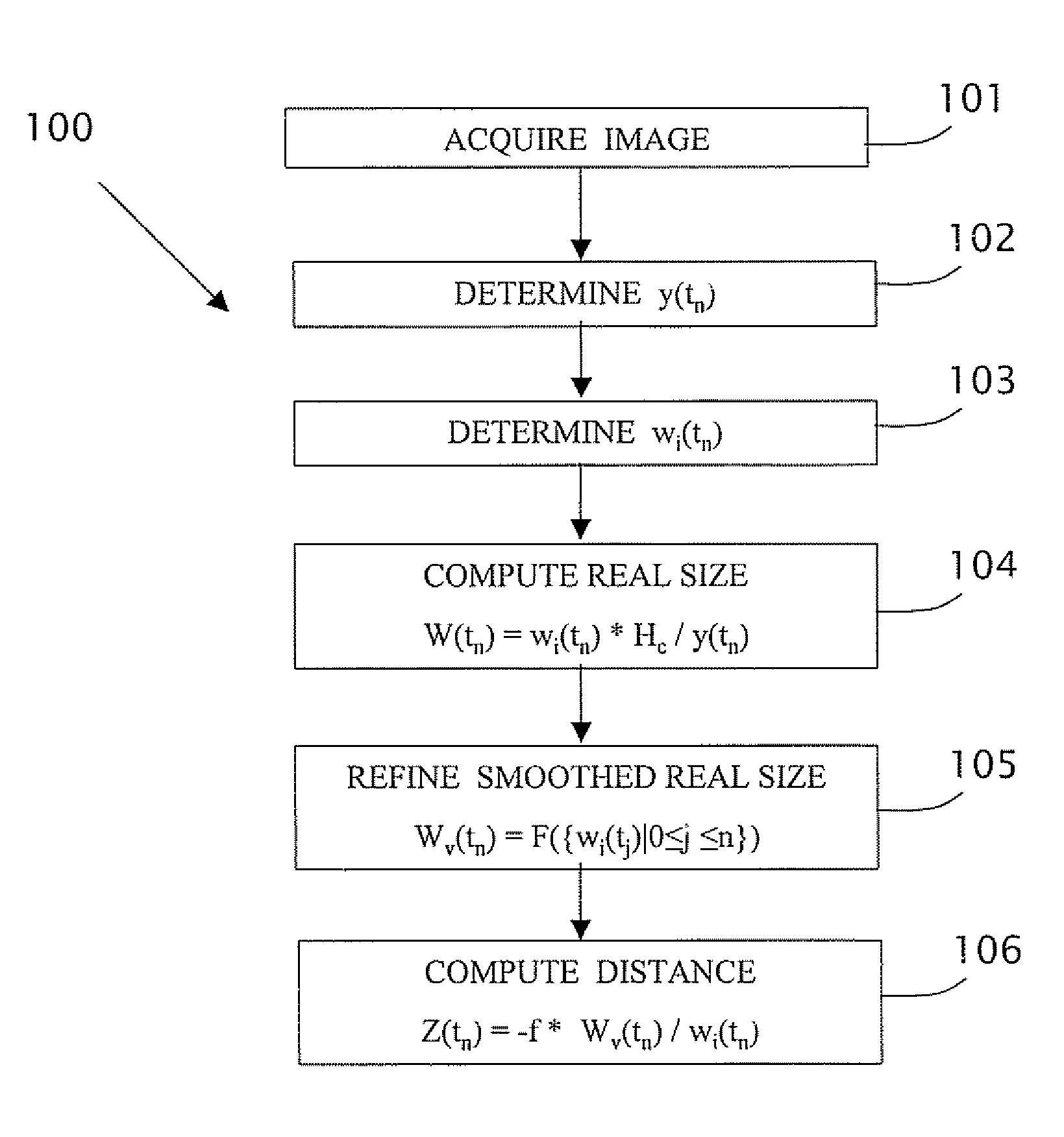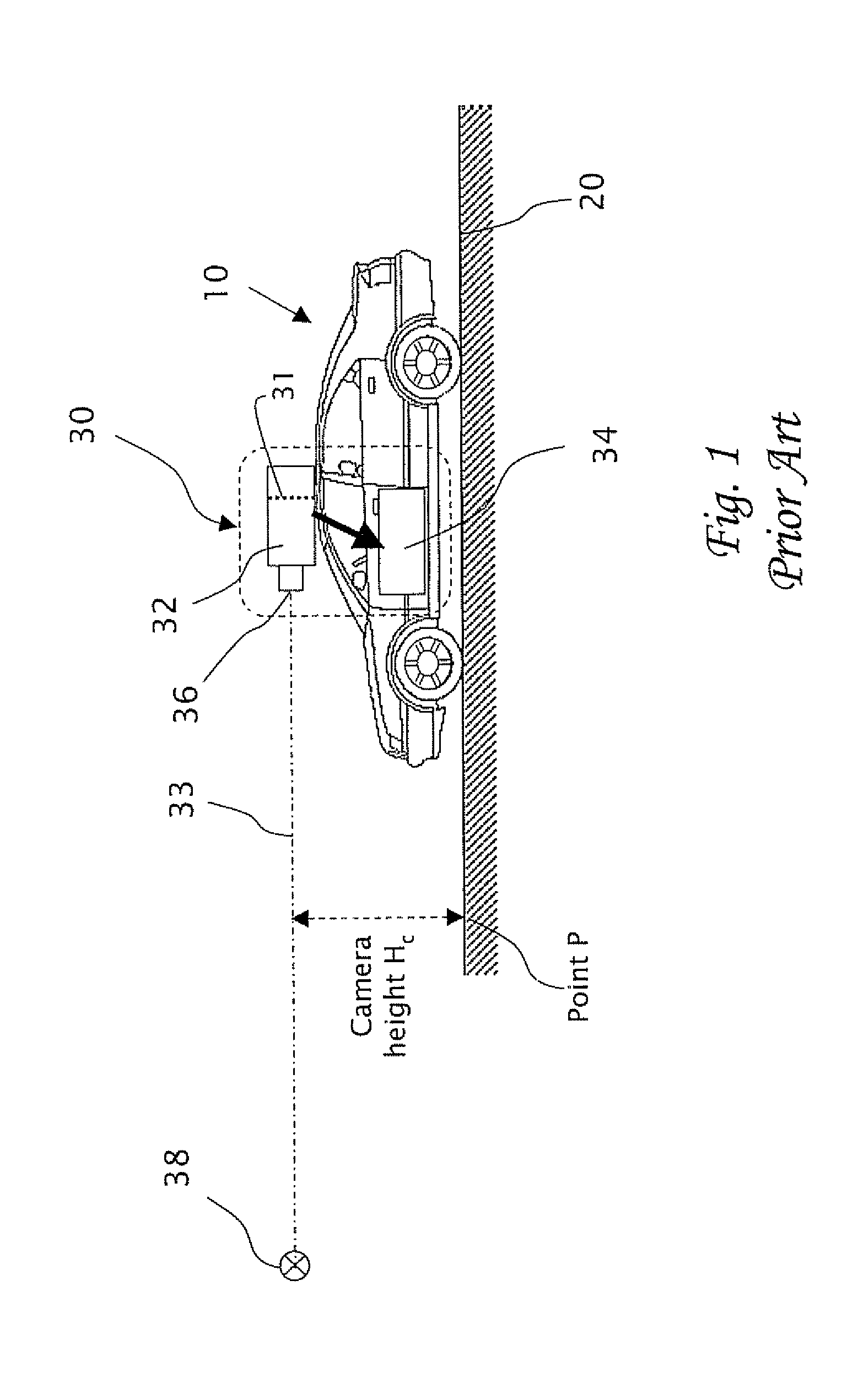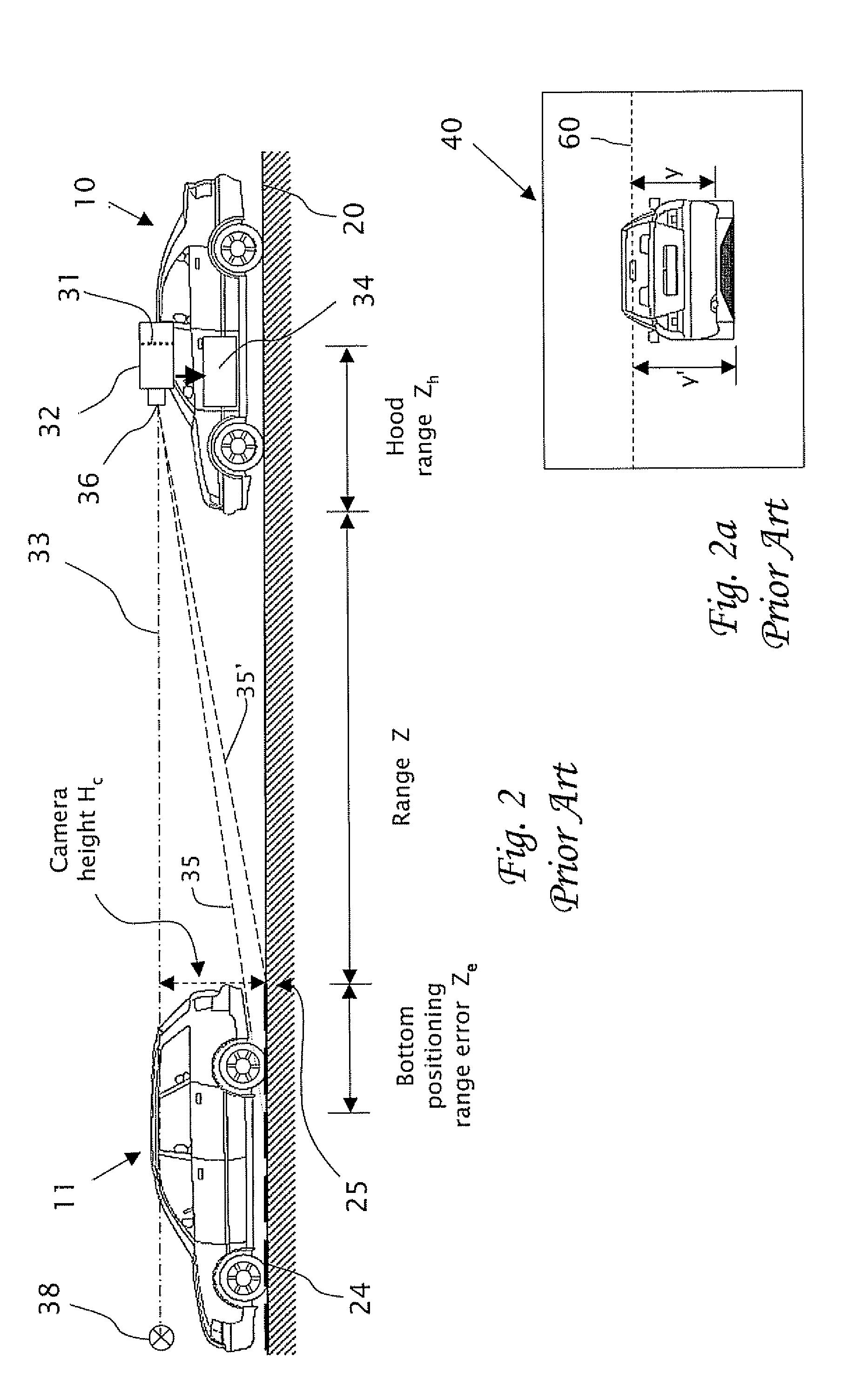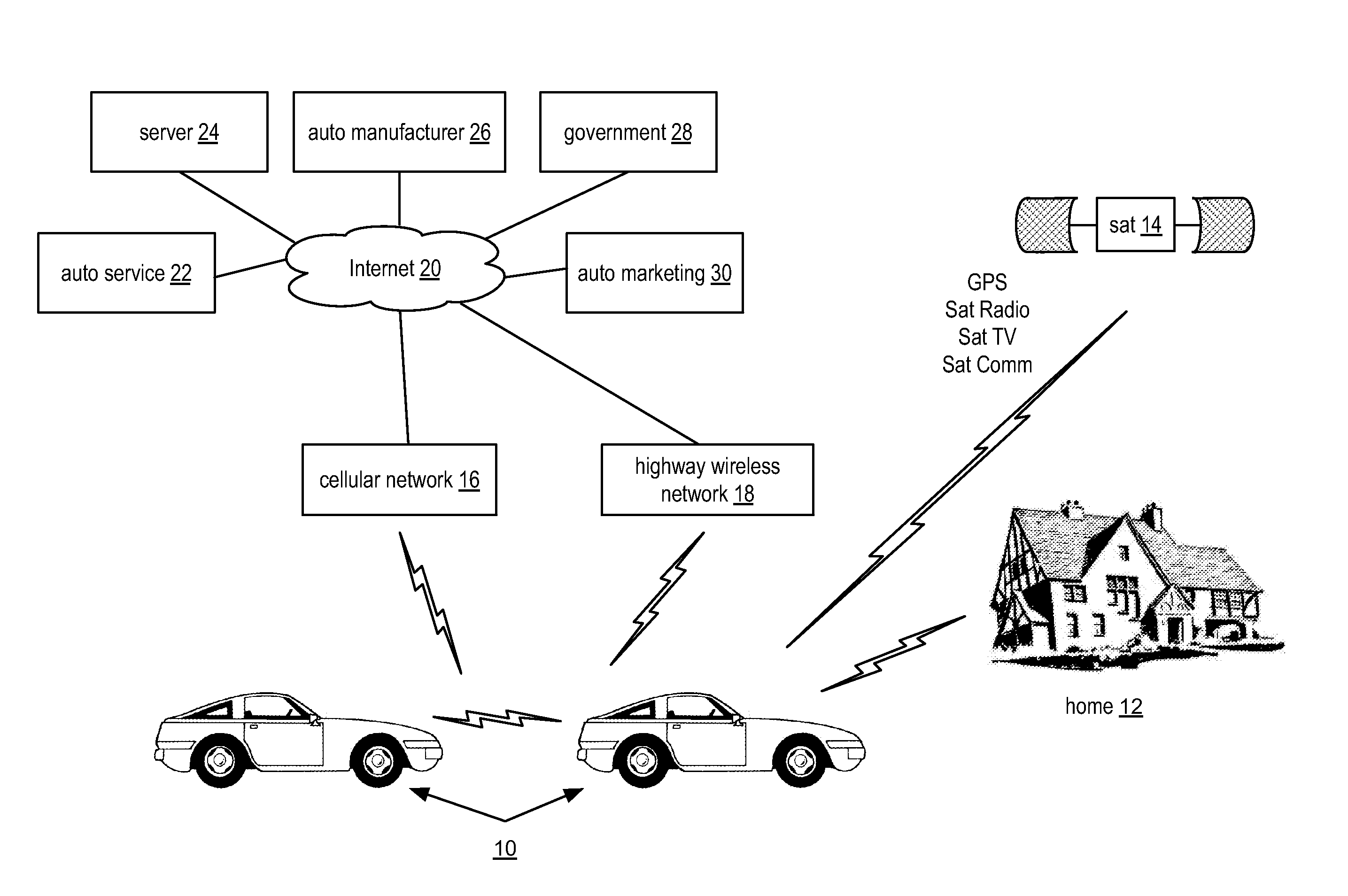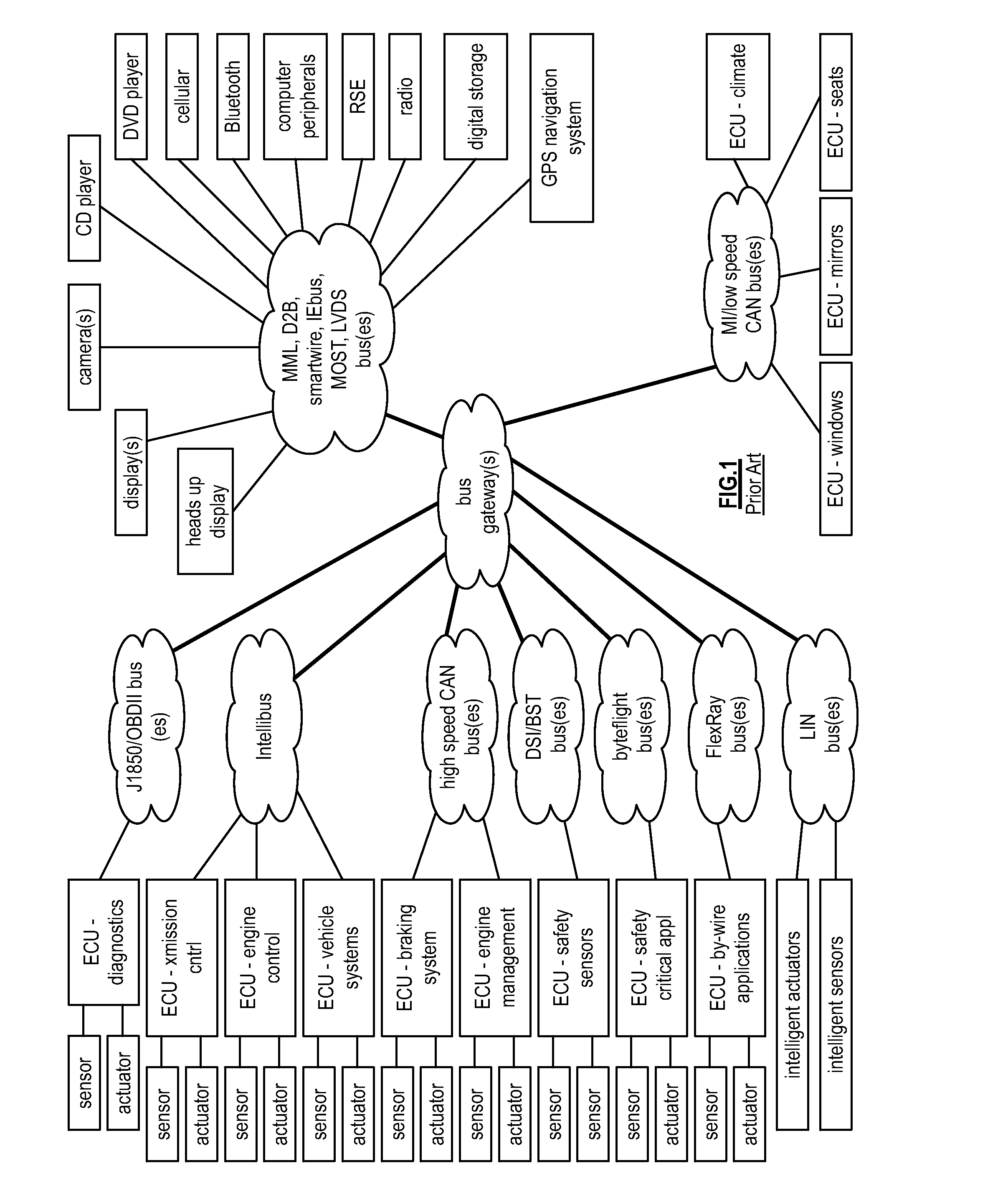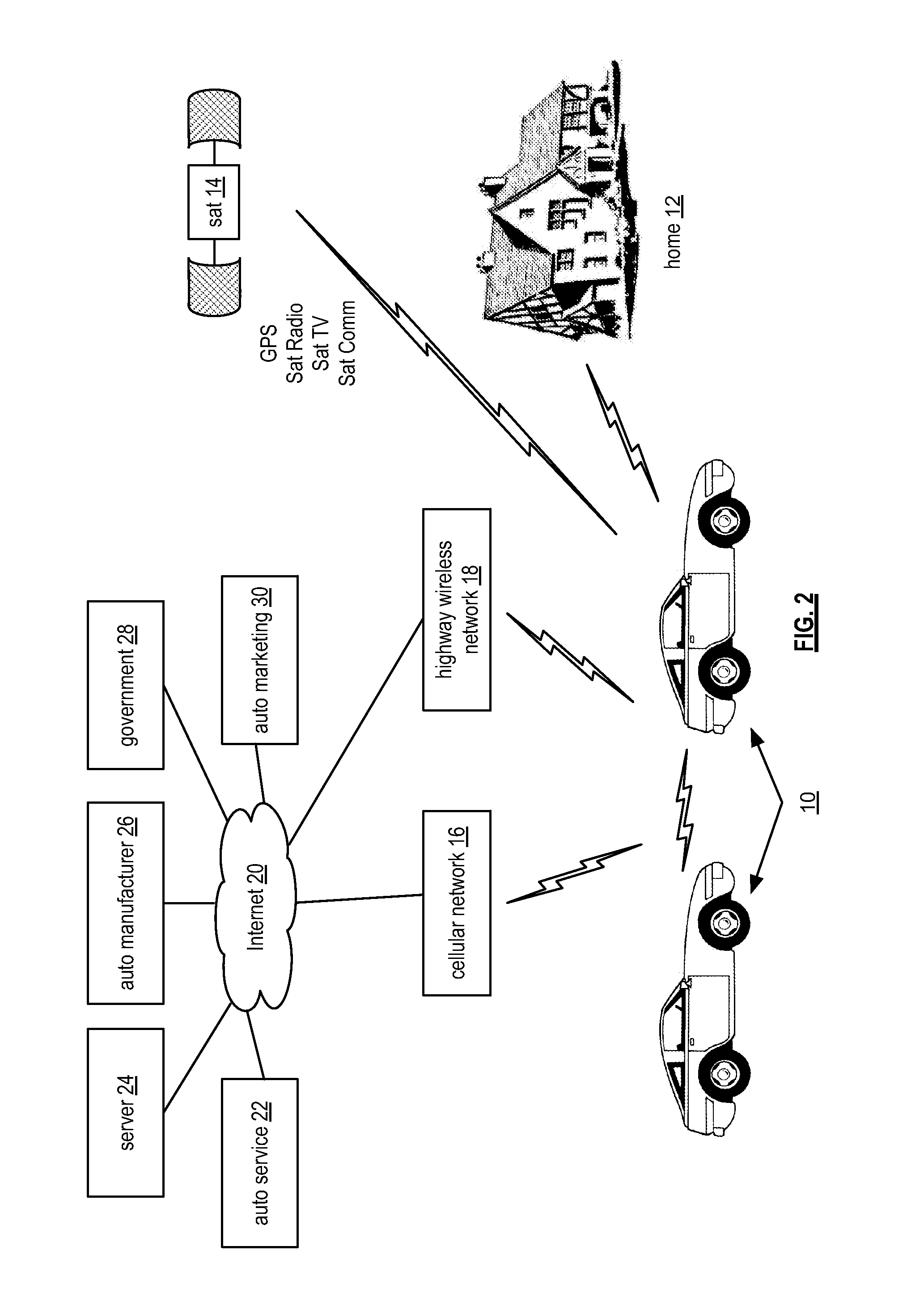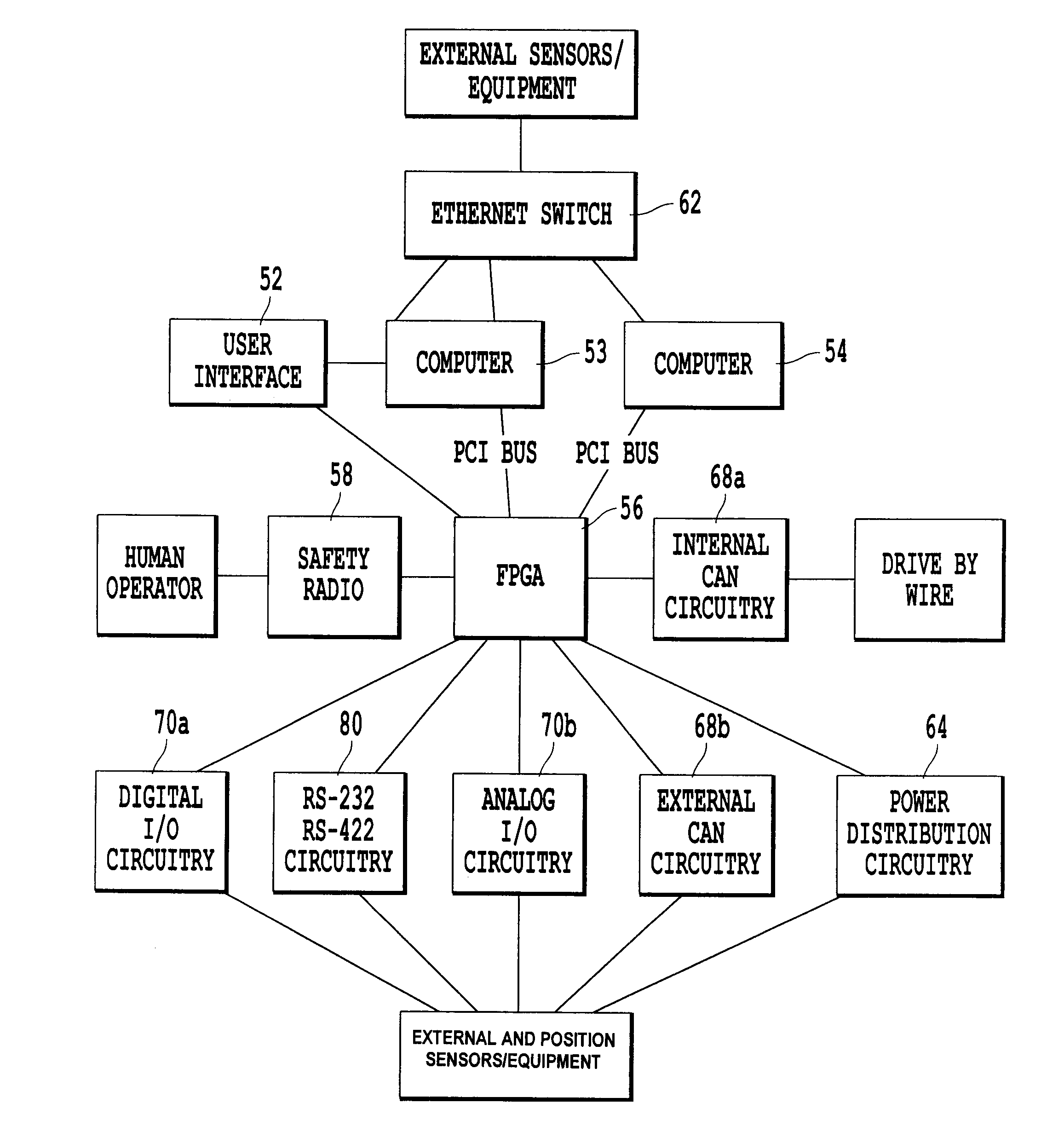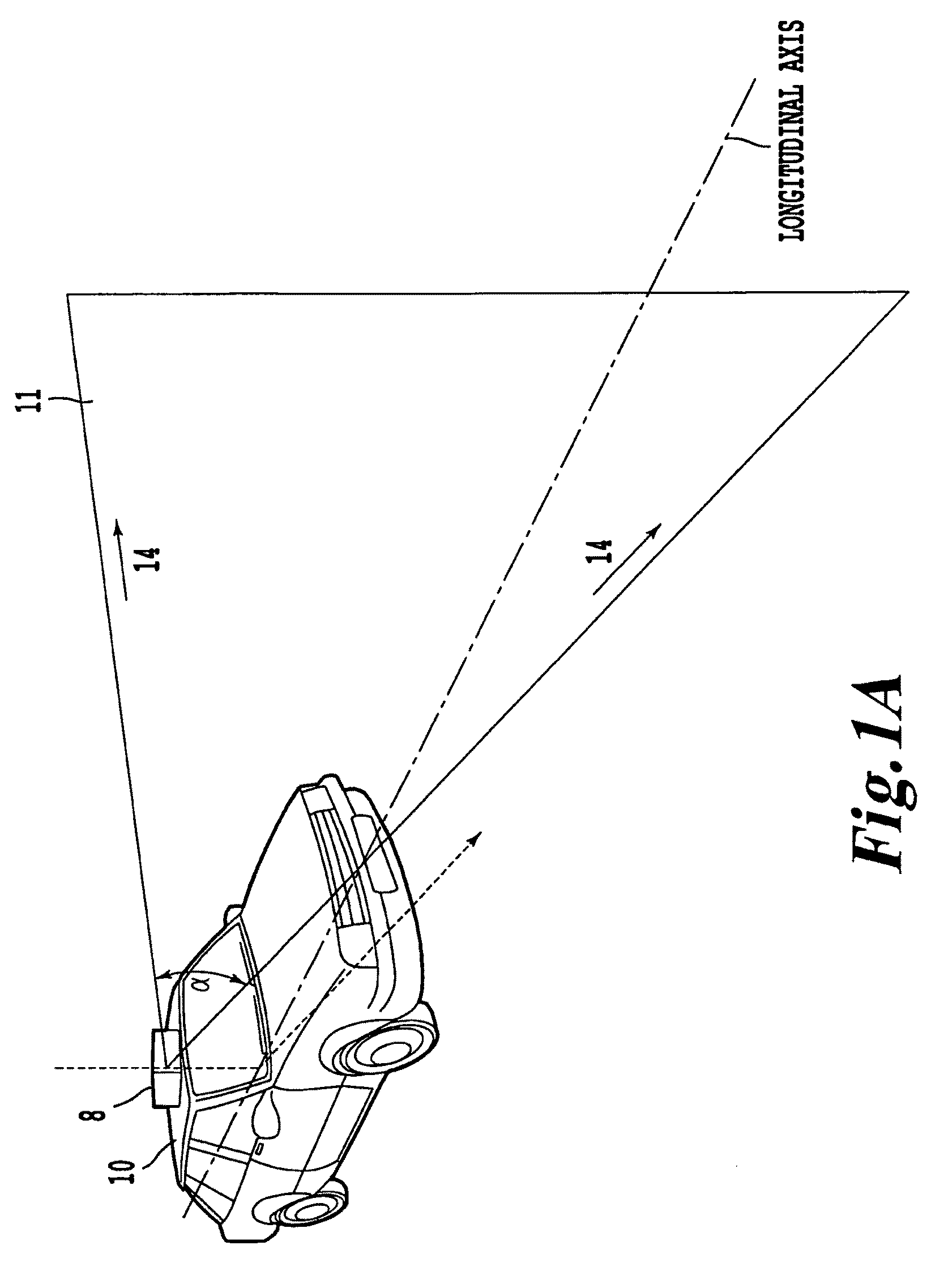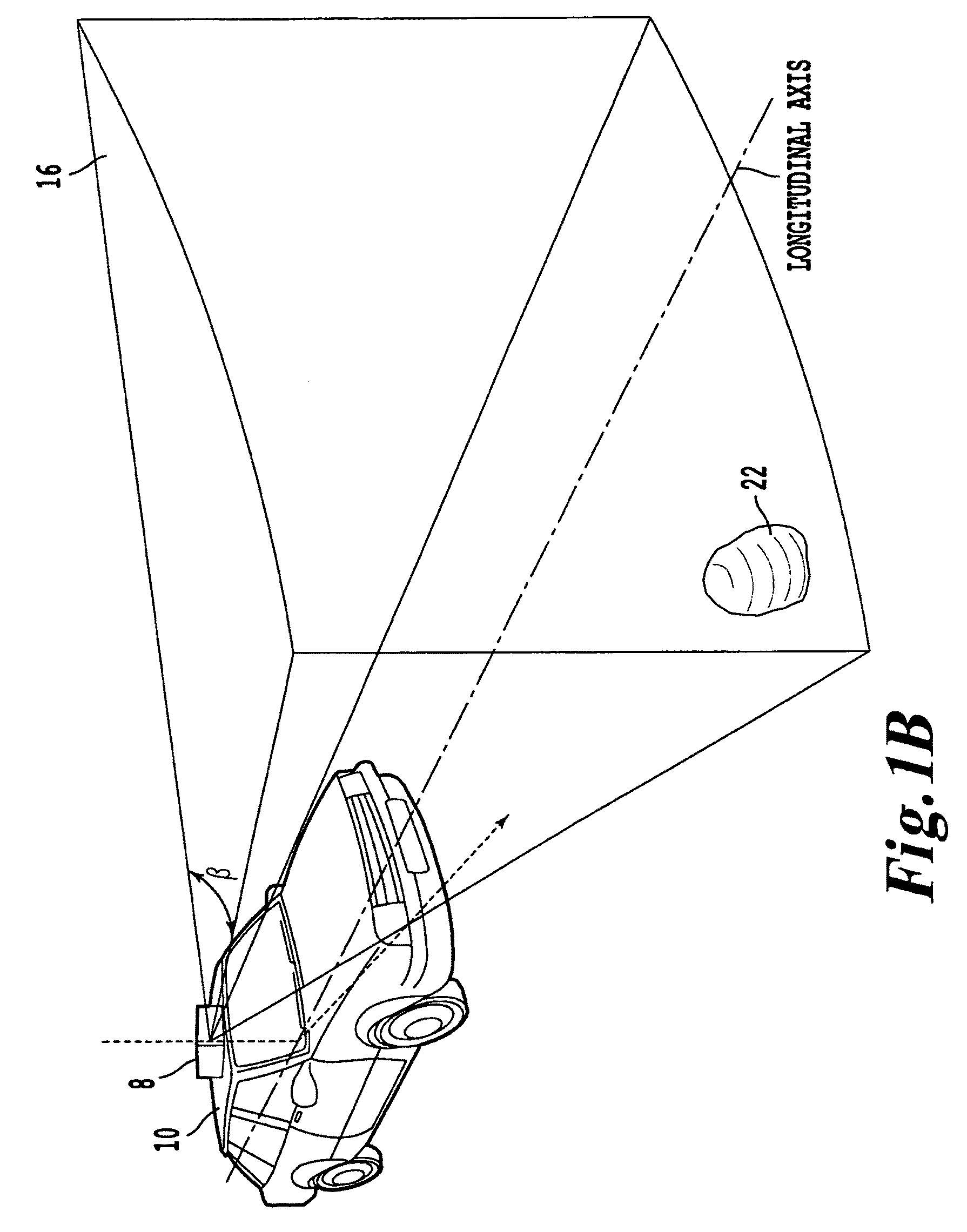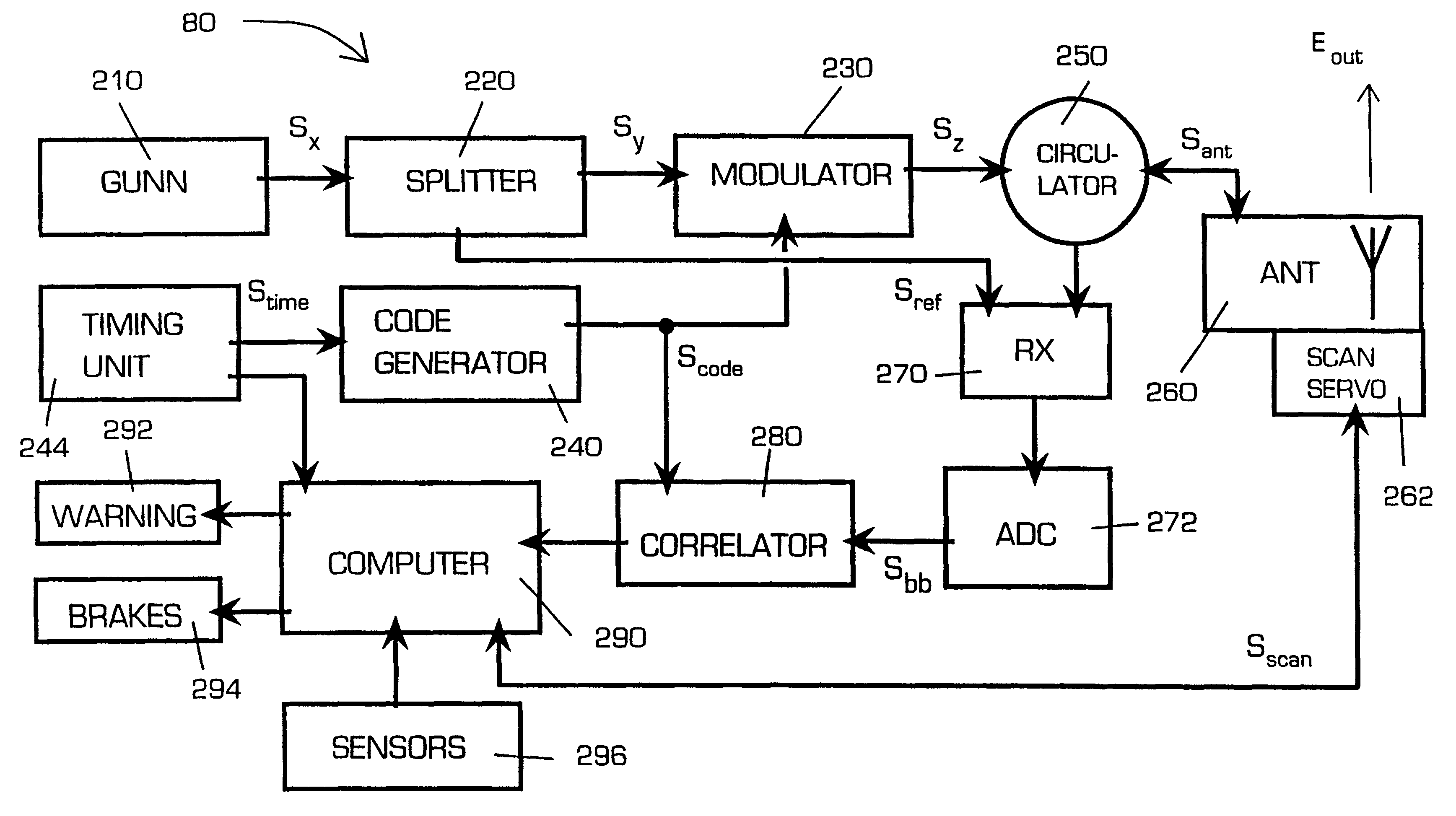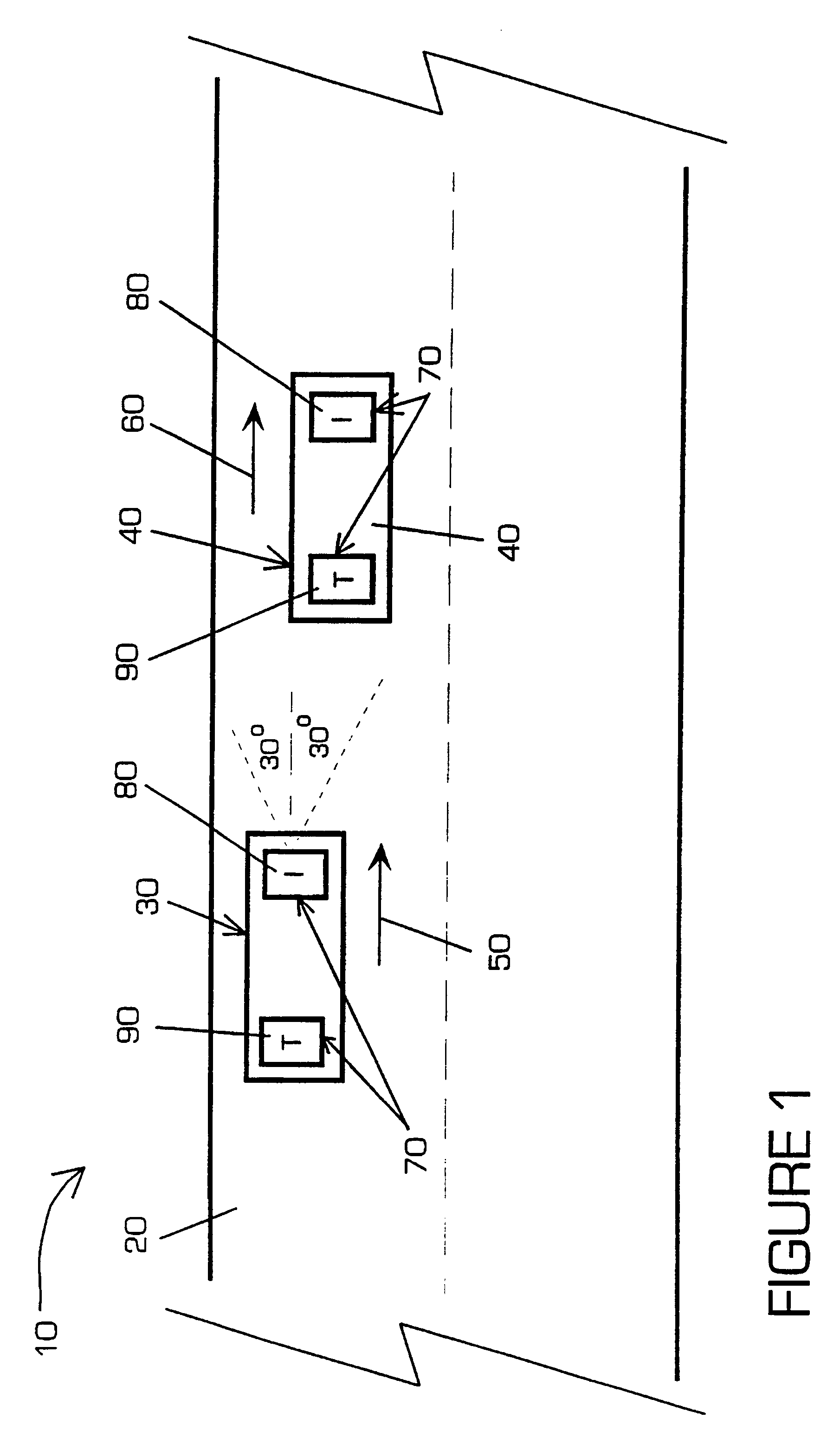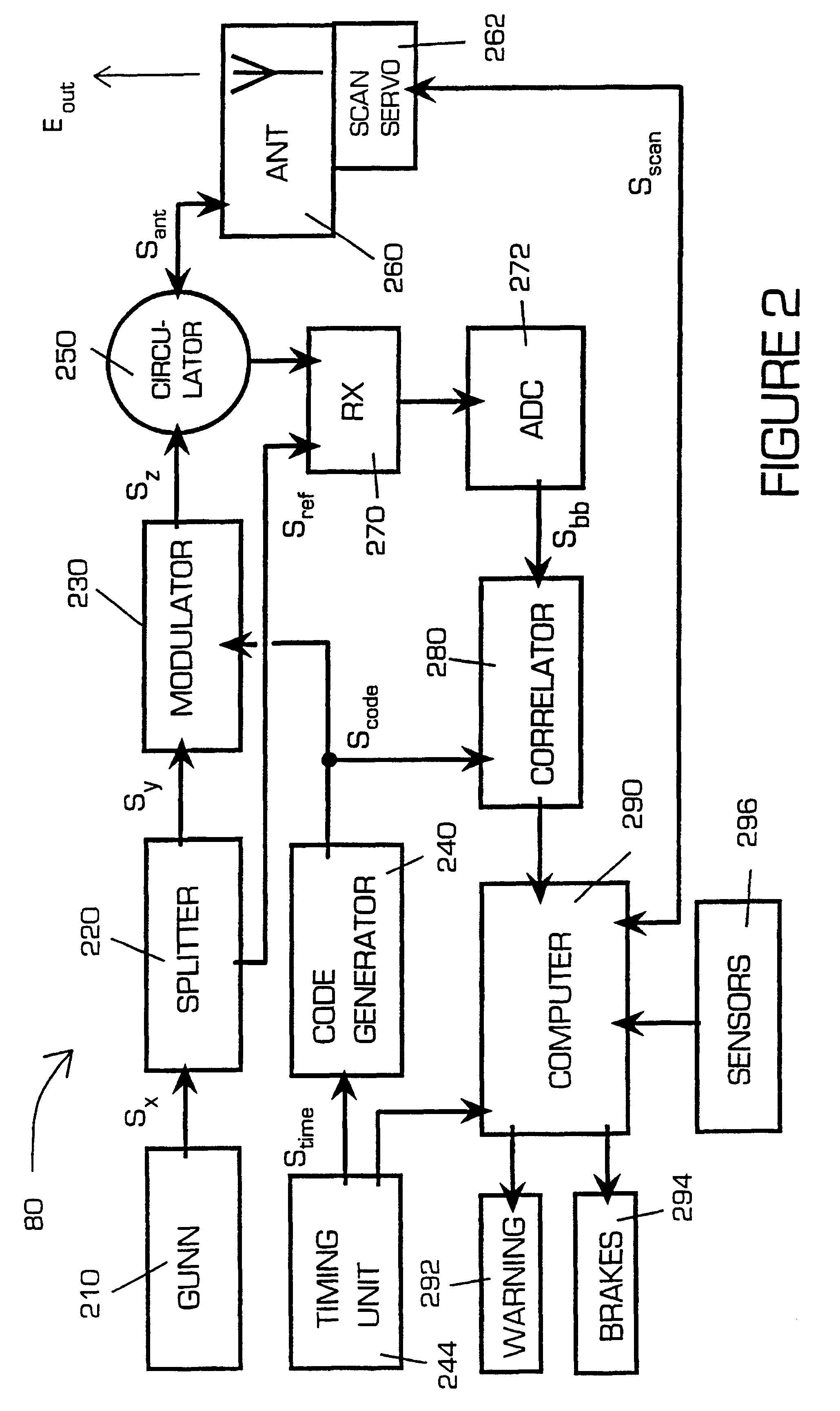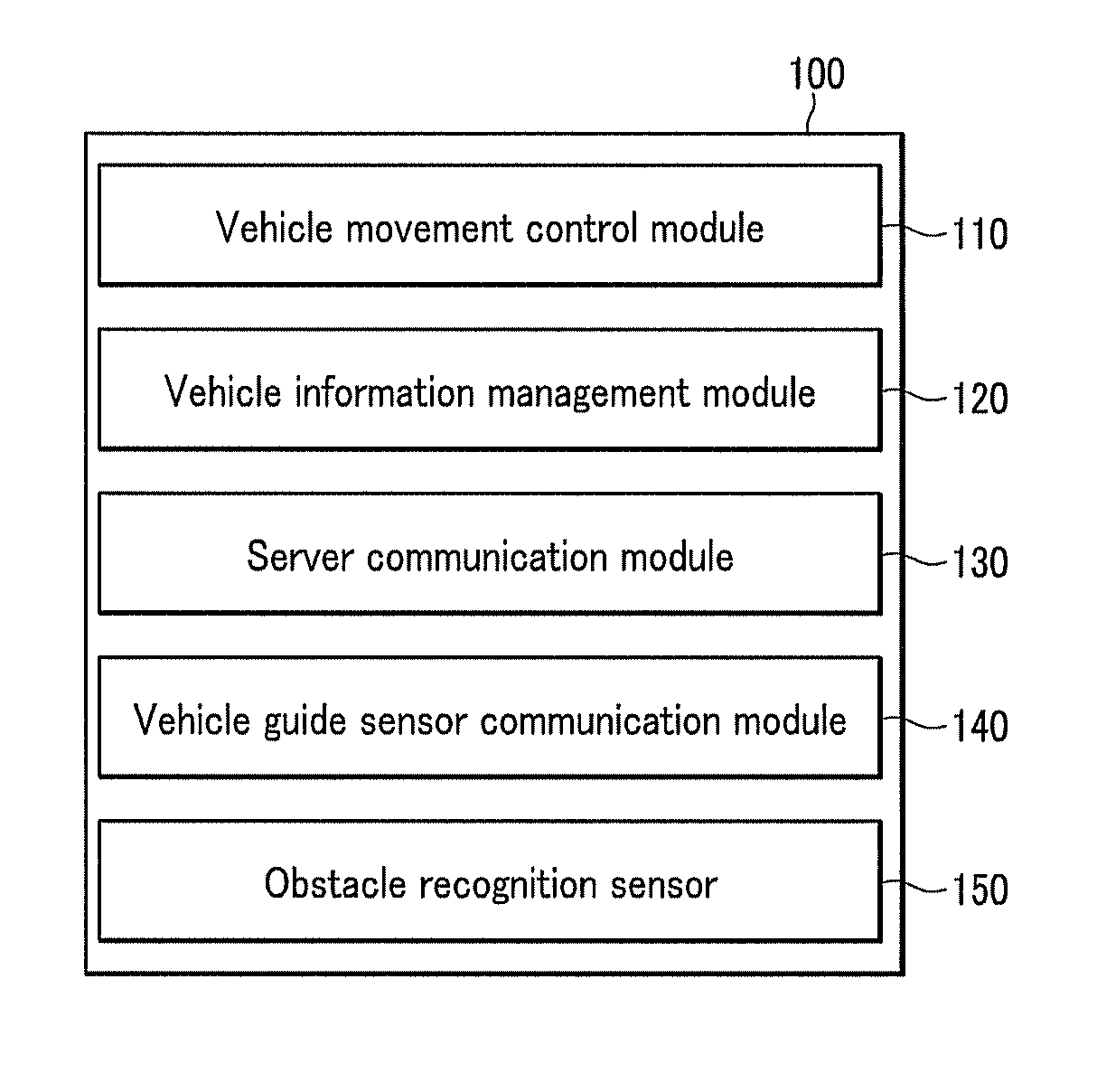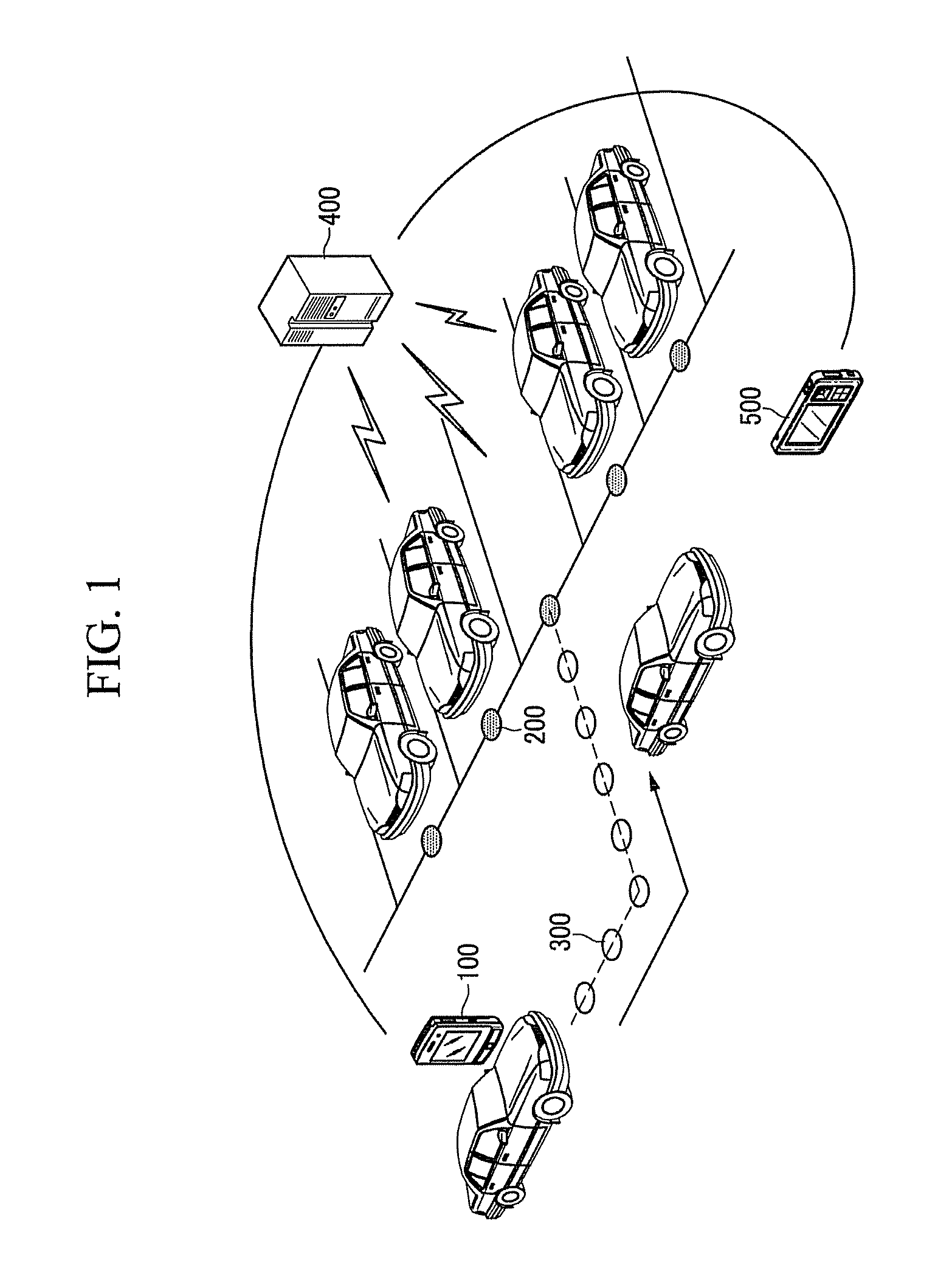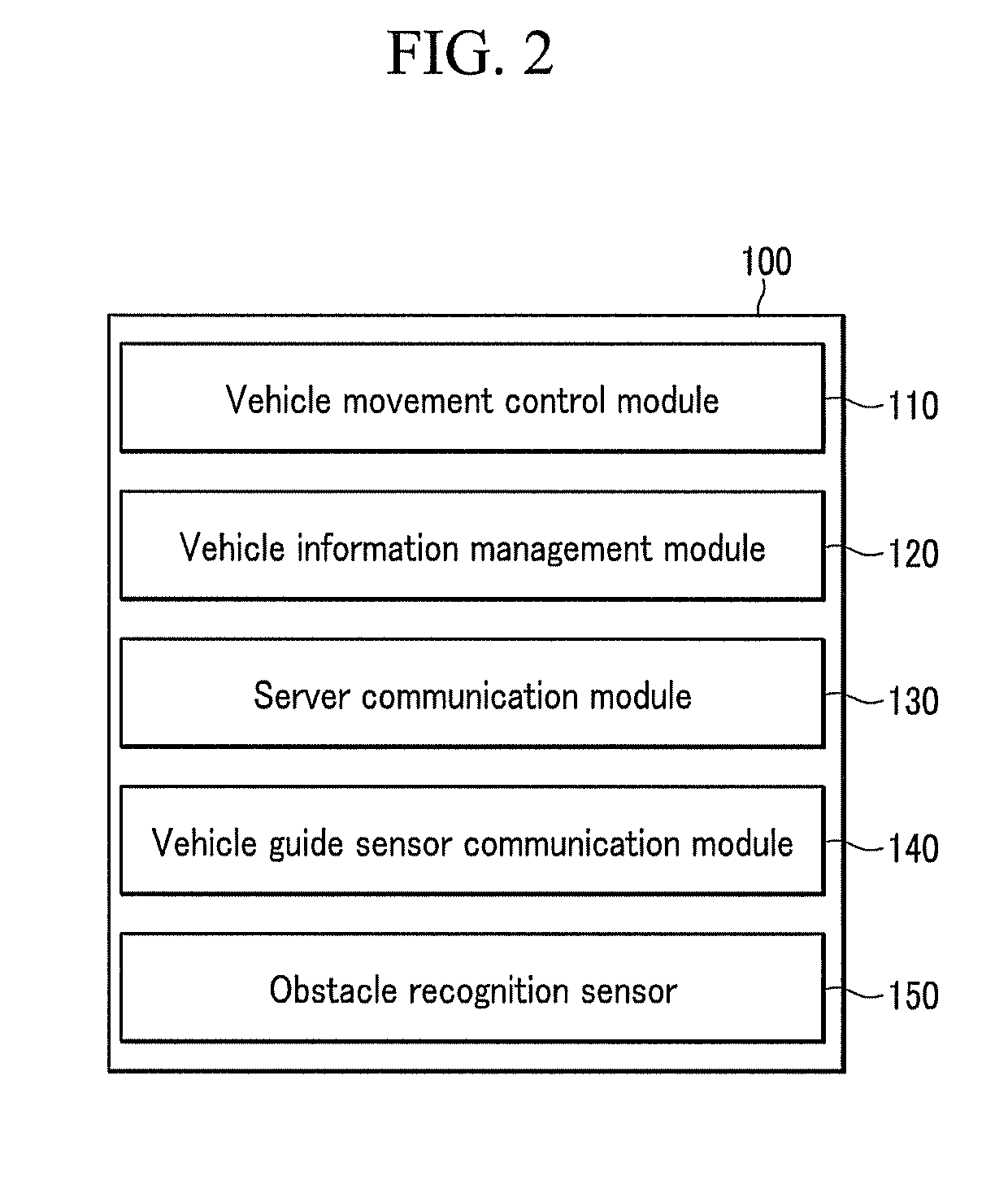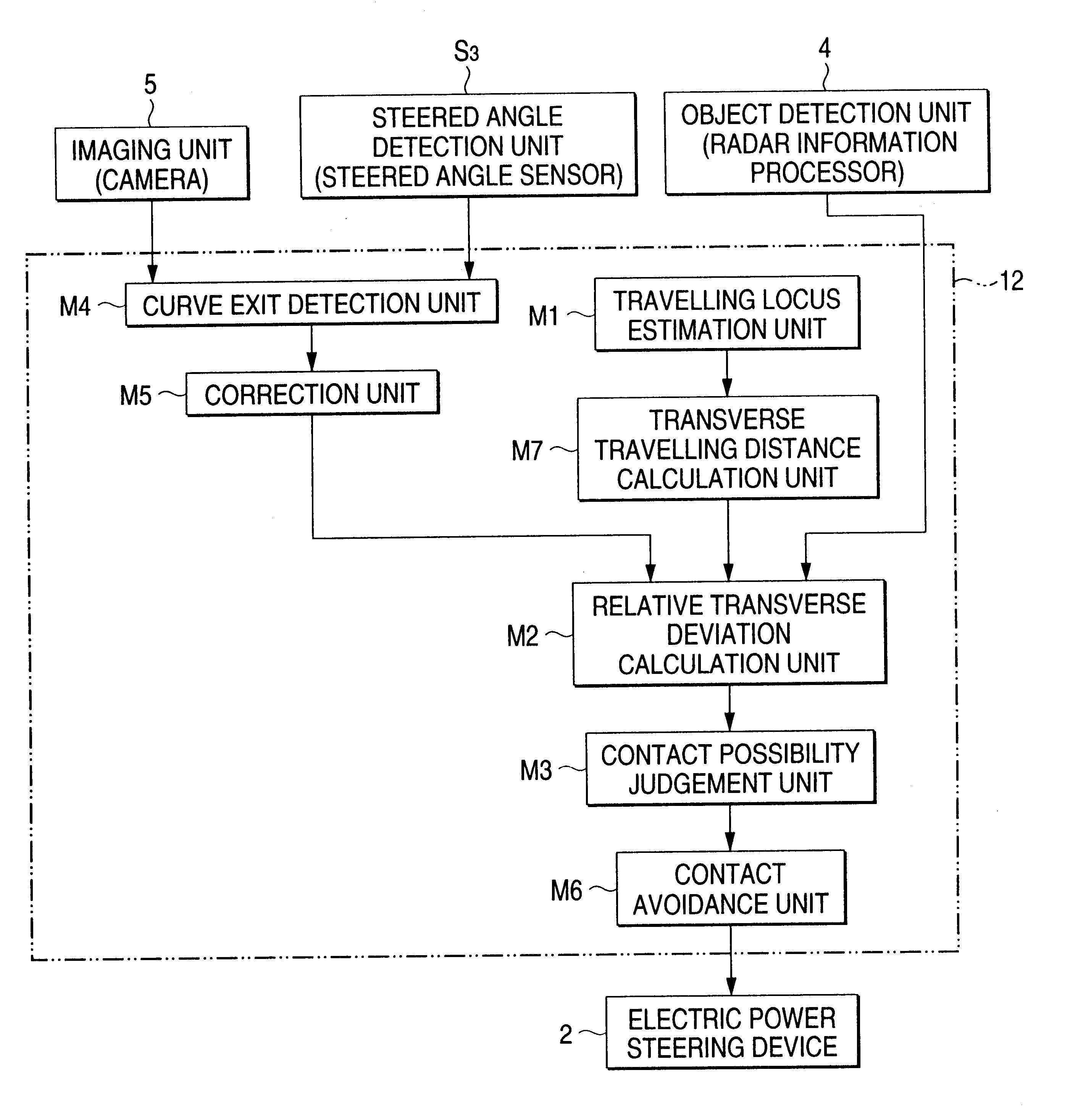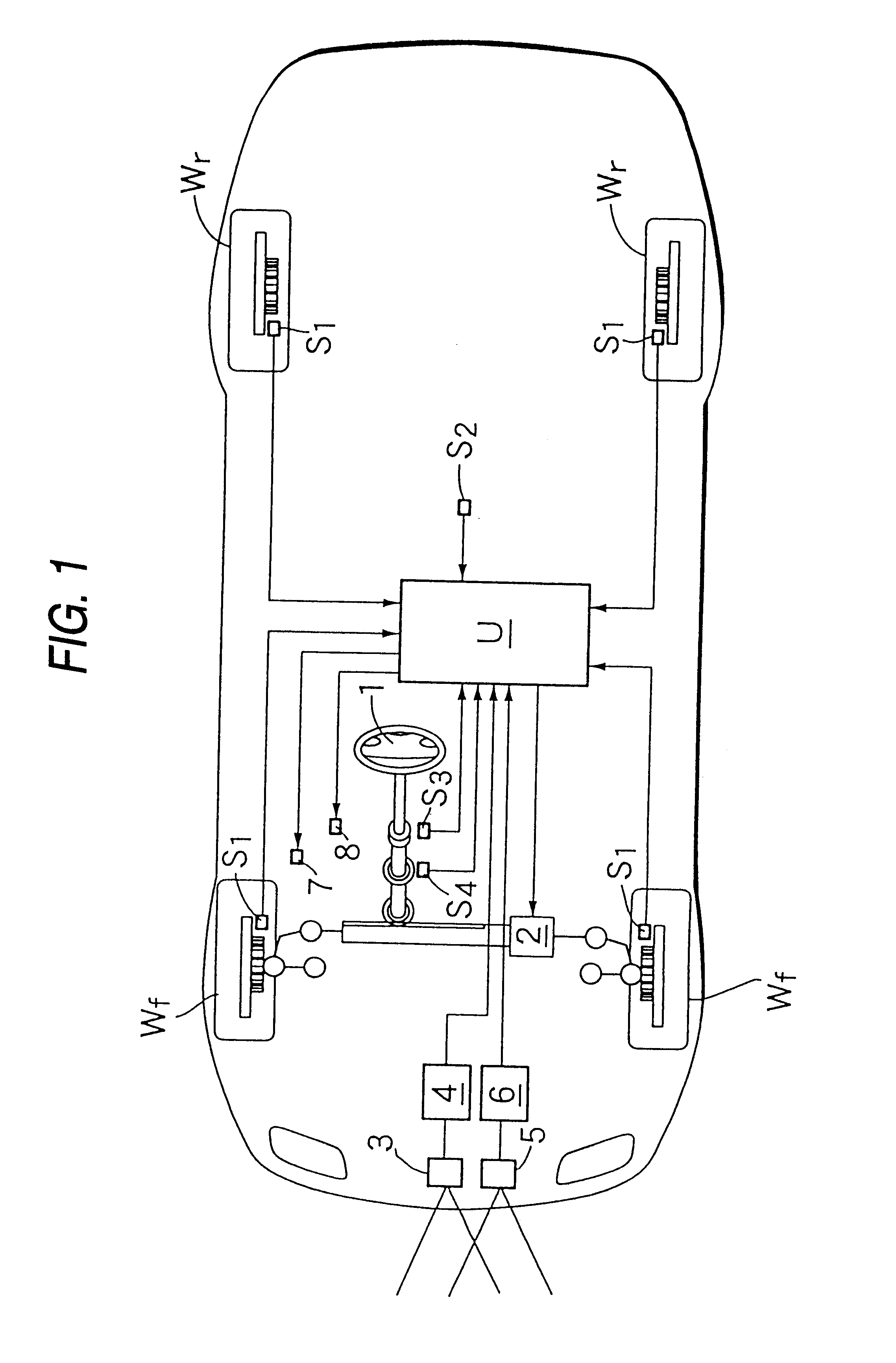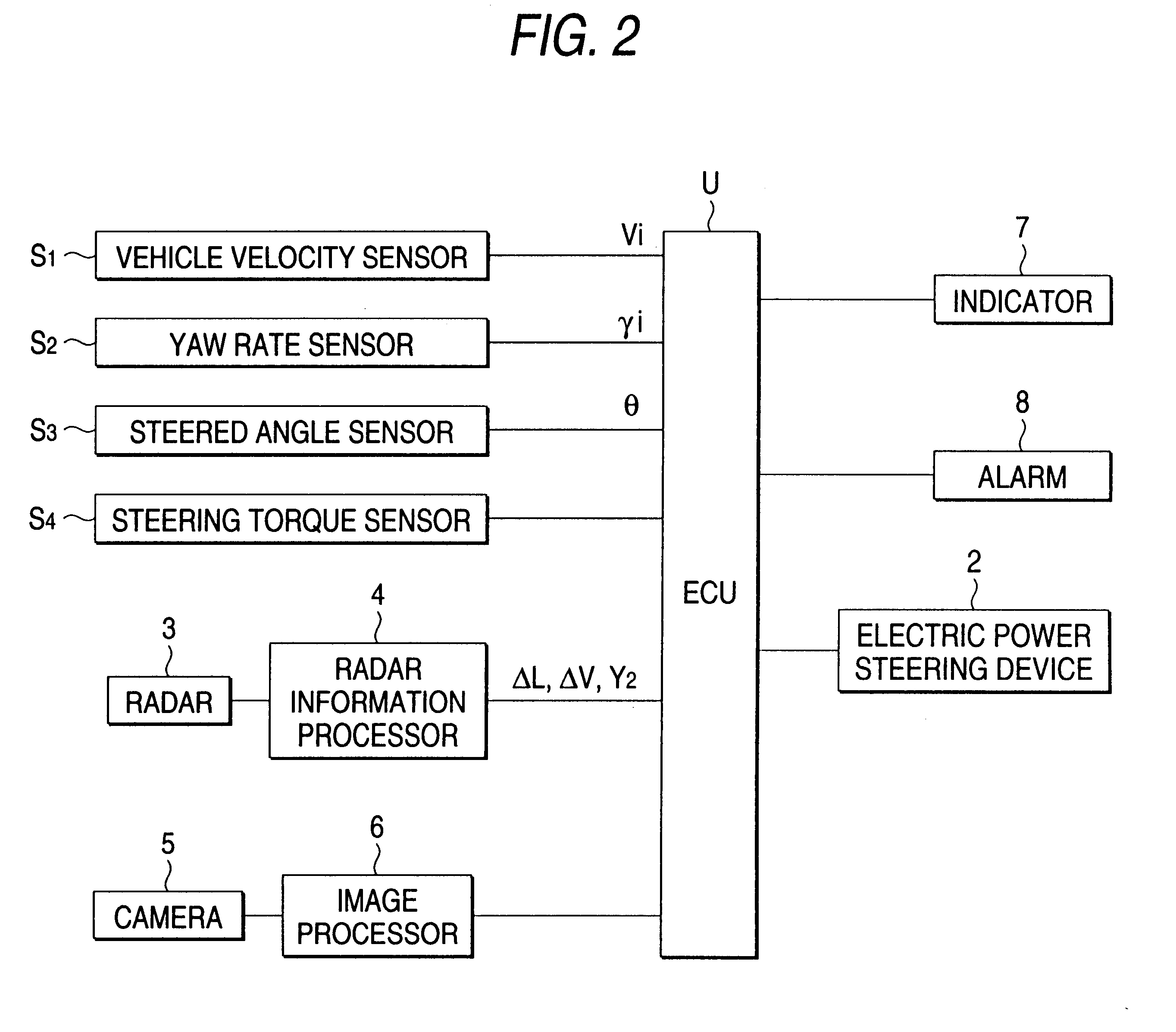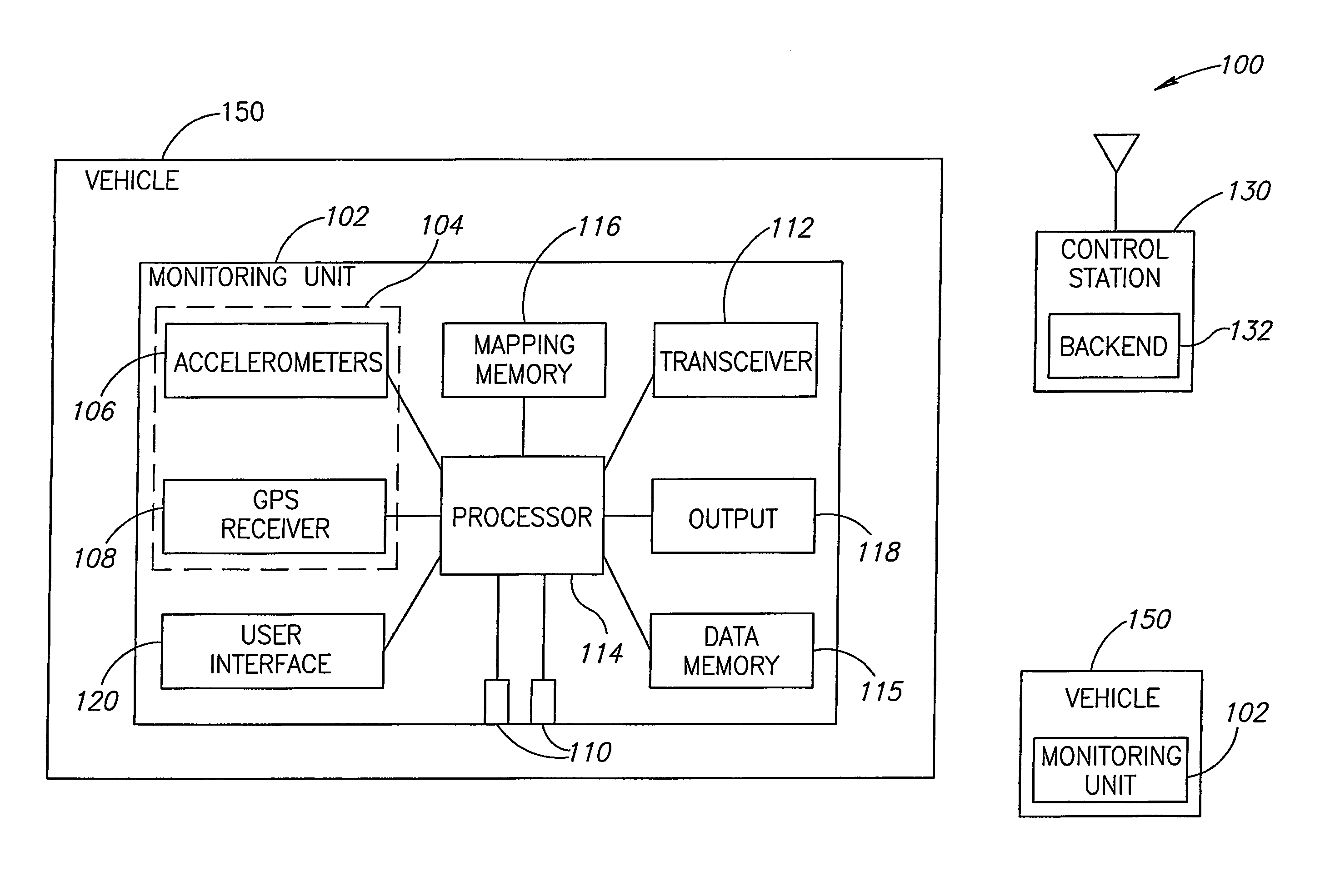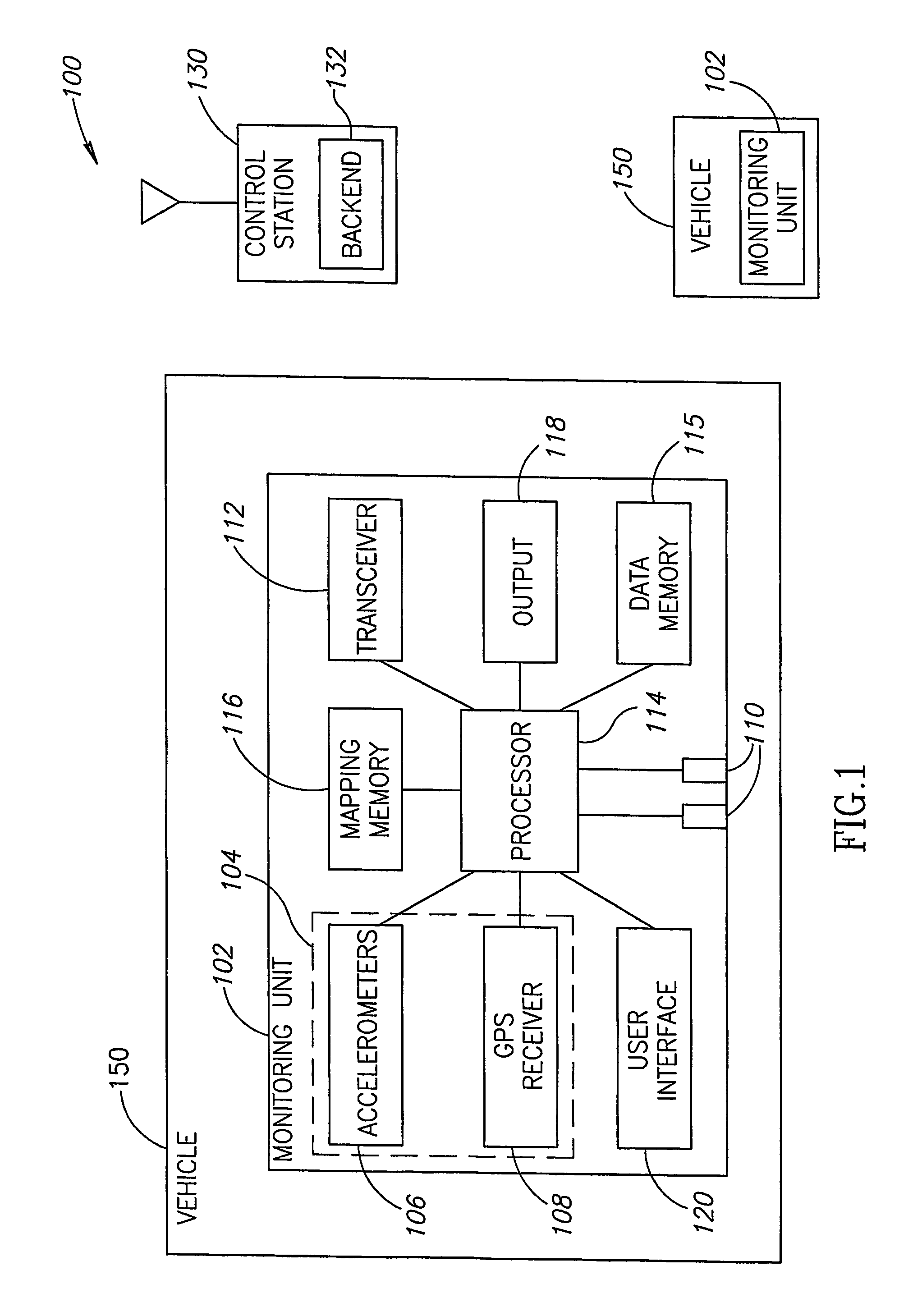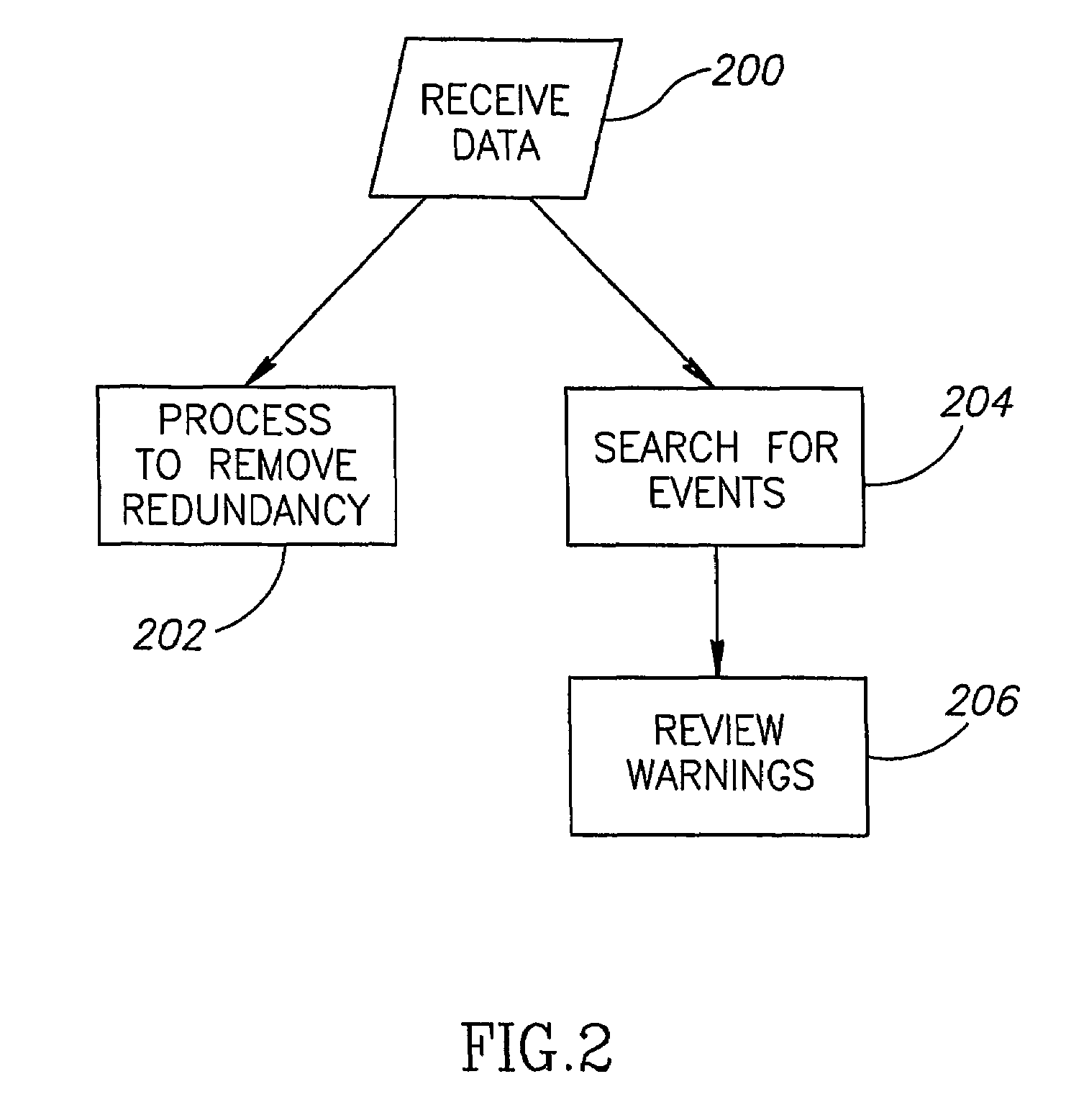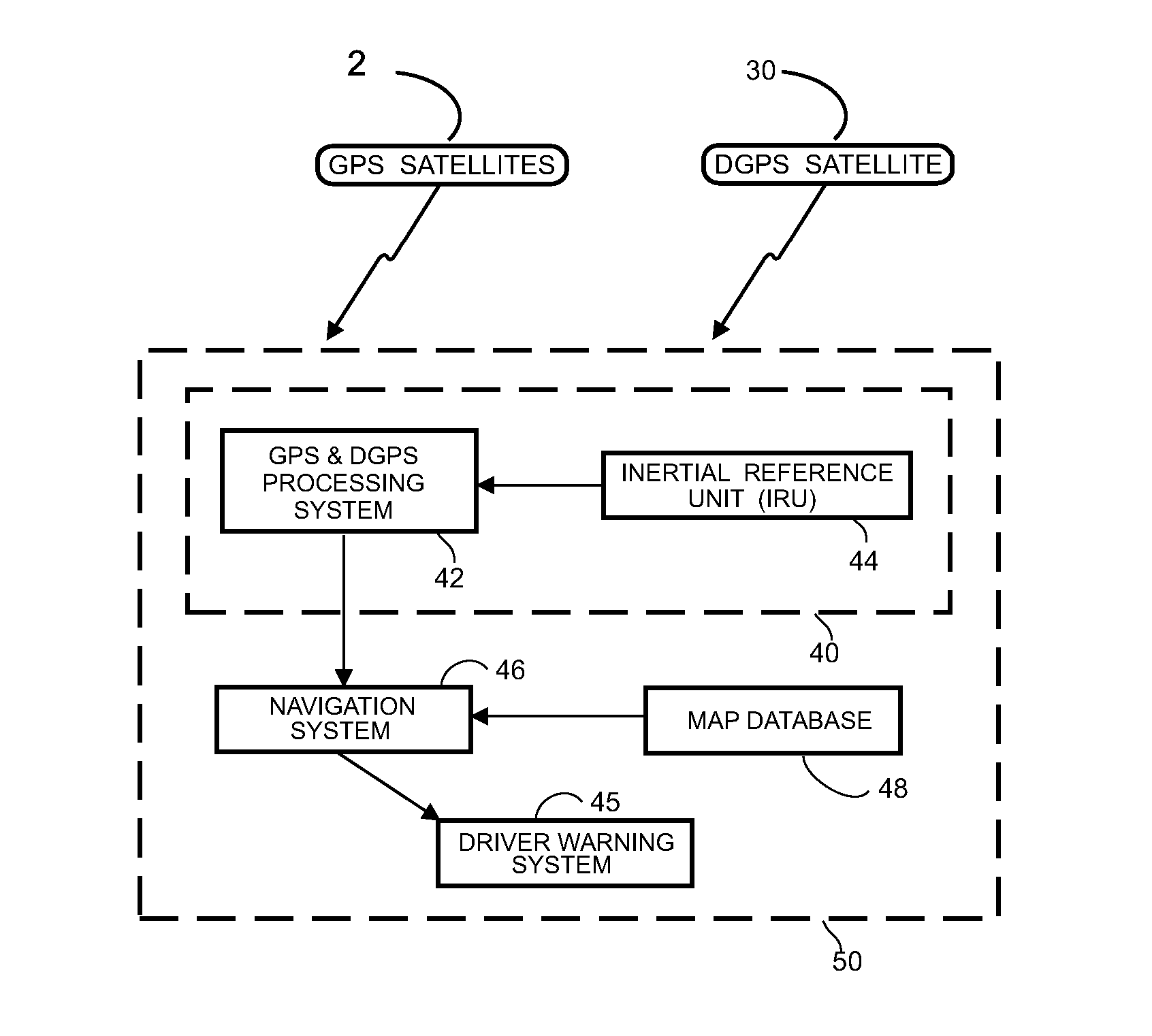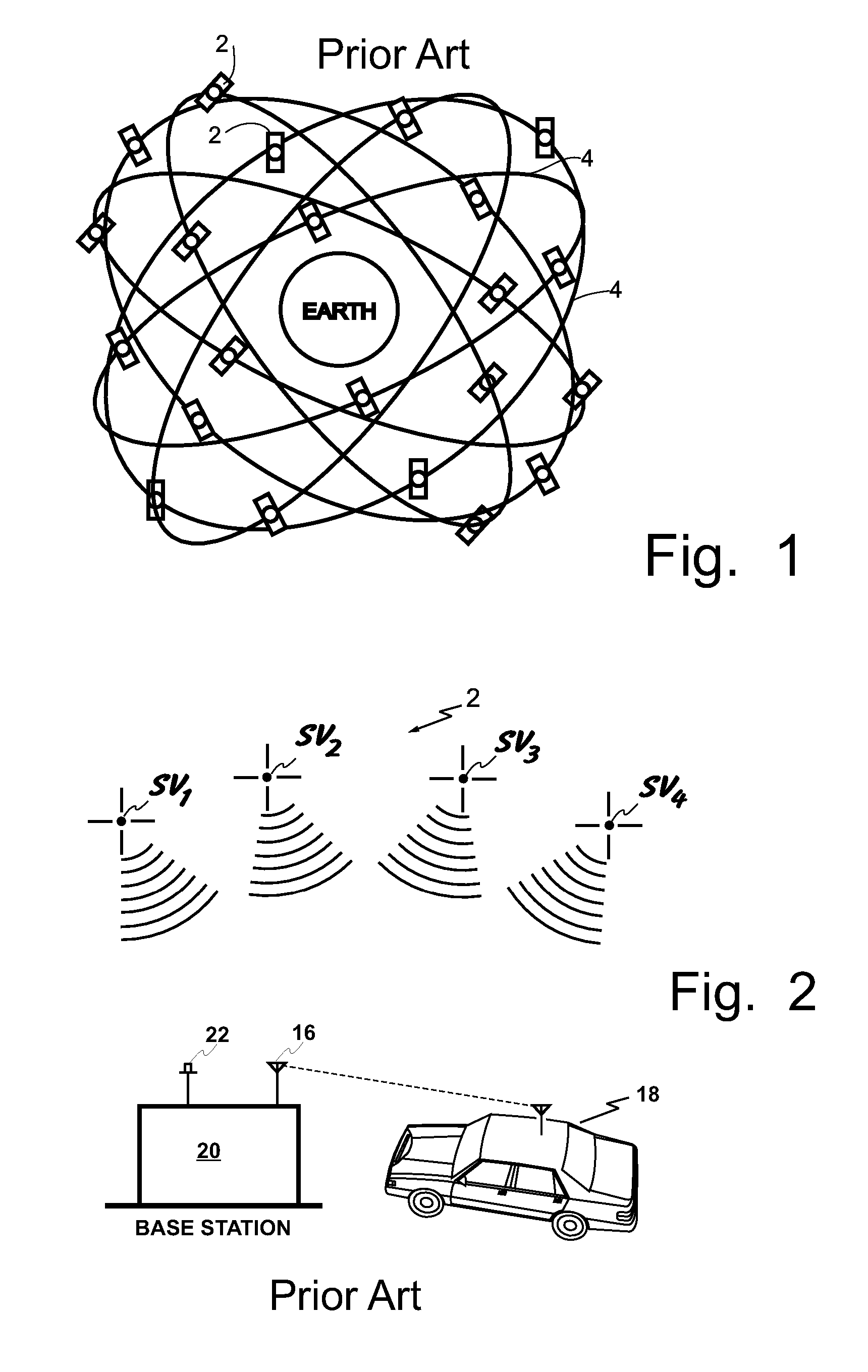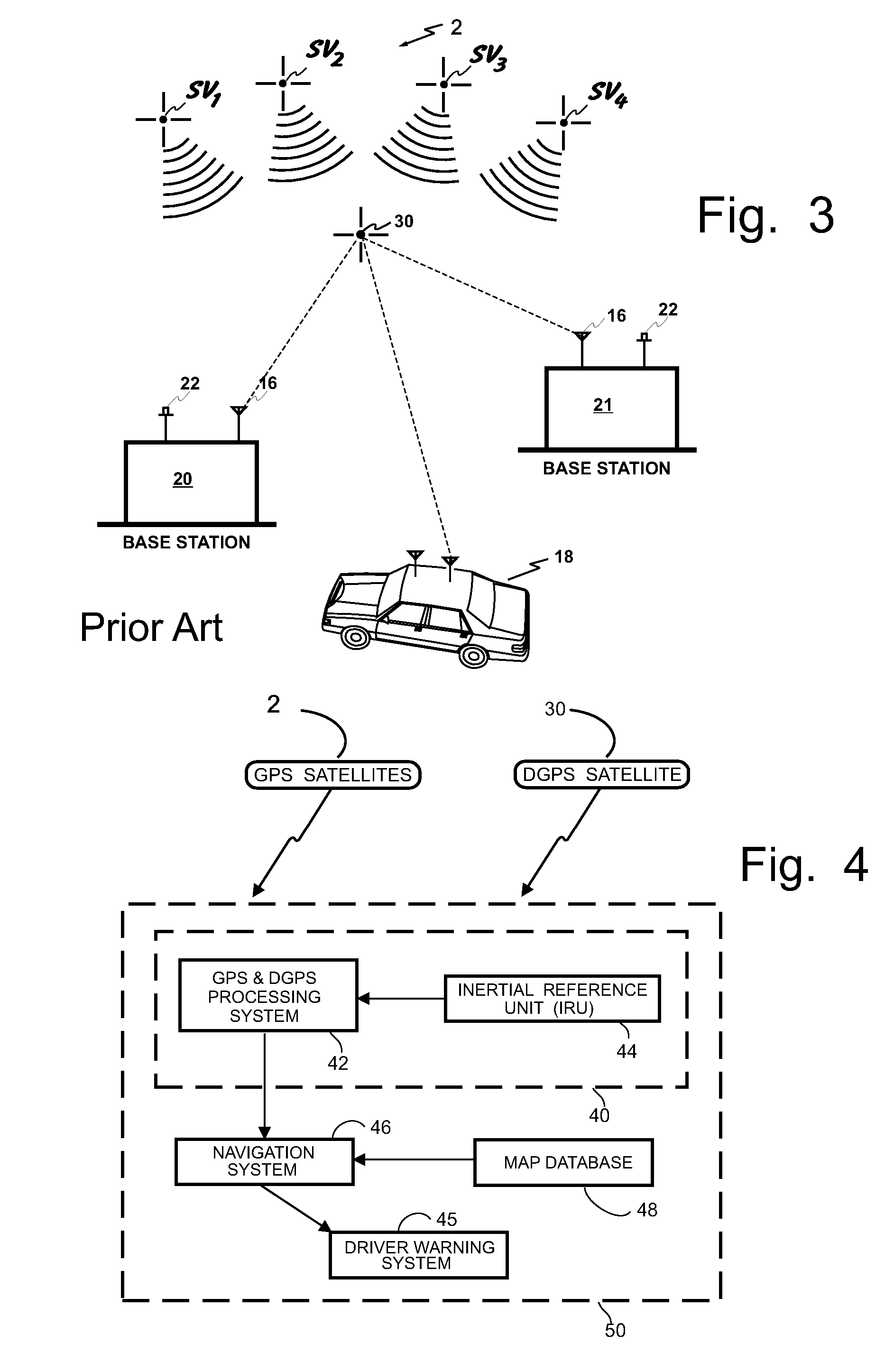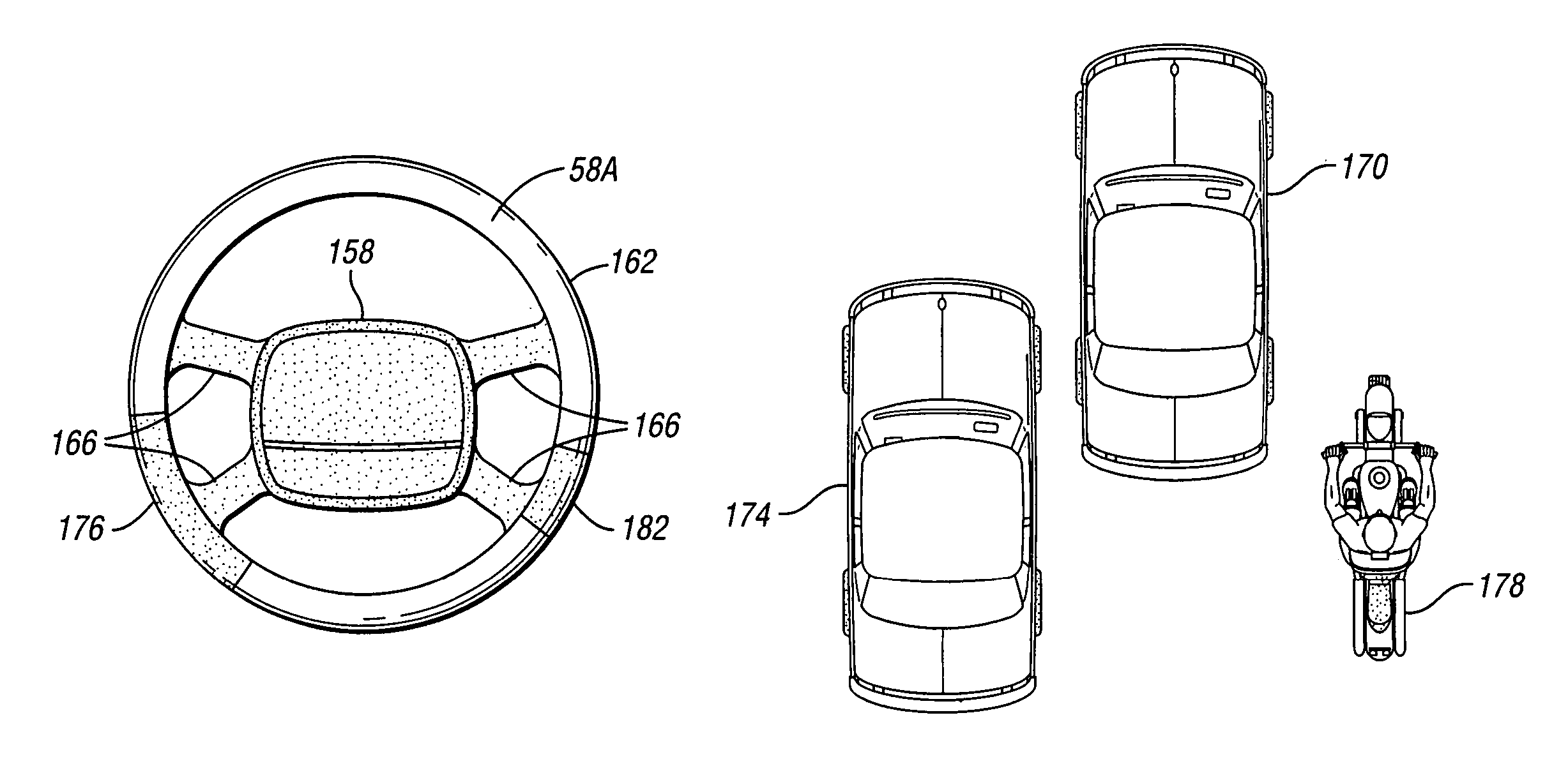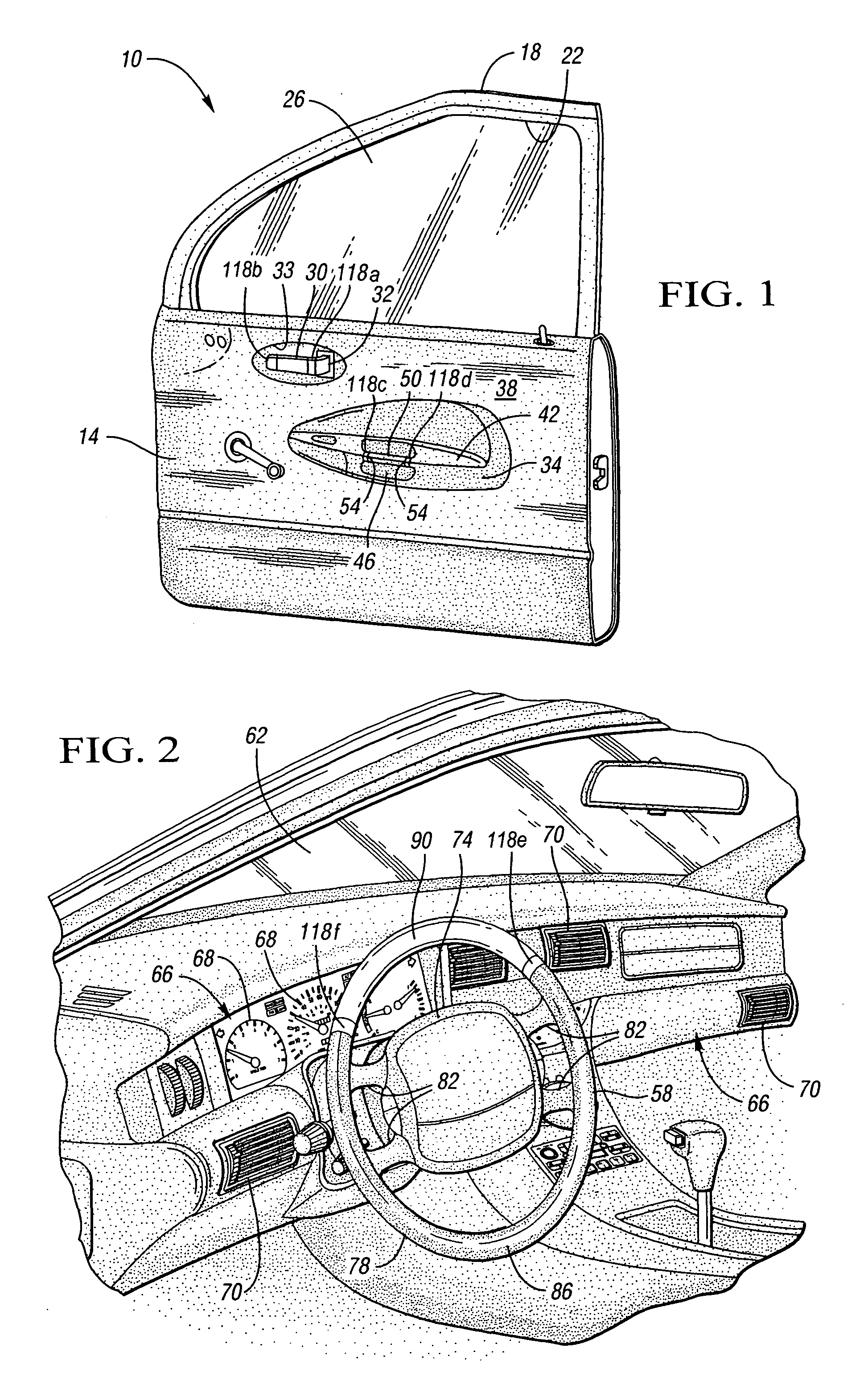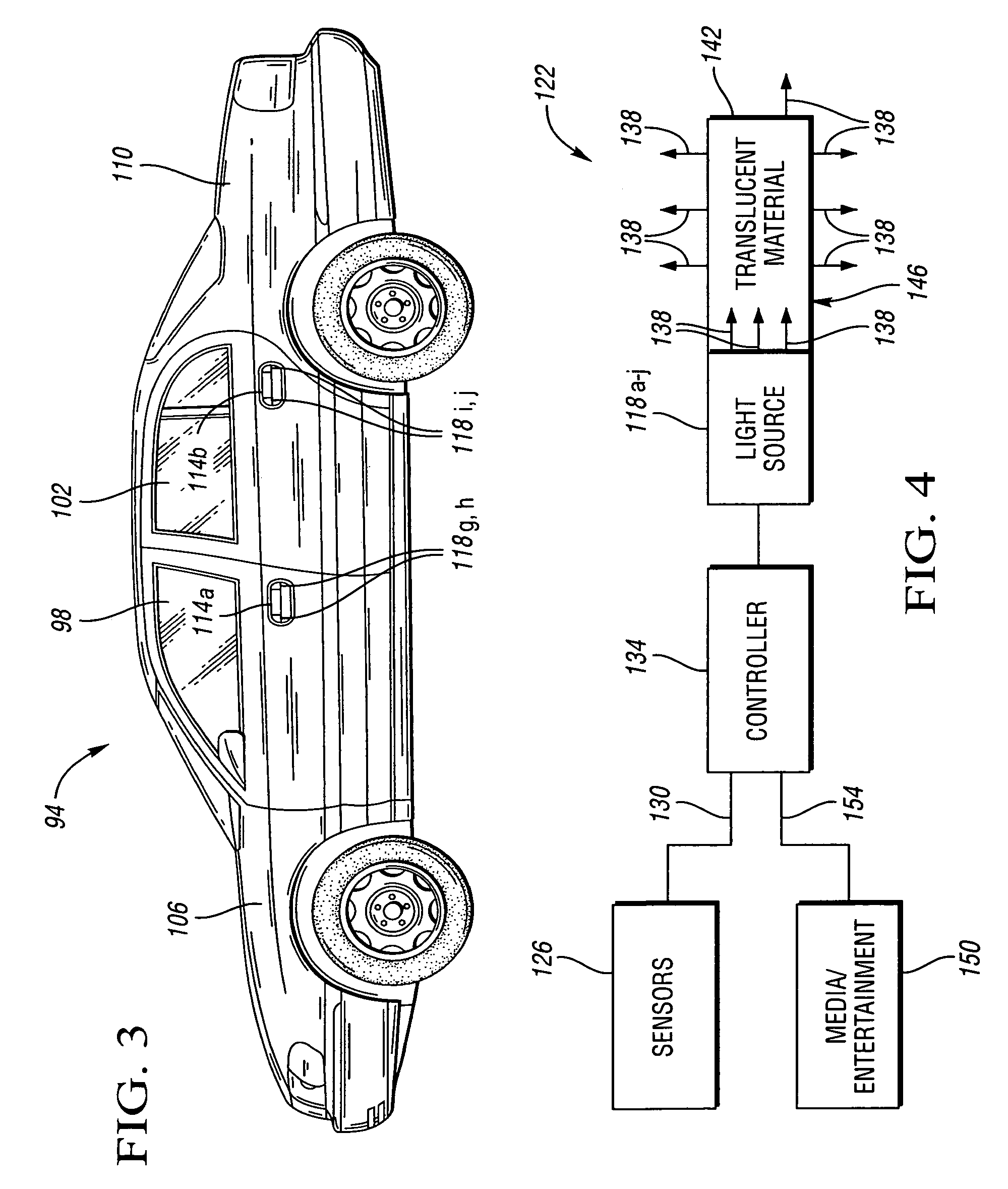Patents
Literature
Hiro is an intelligent assistant for R&D personnel, combined with Patent DNA, to facilitate innovative research.
13259results about "Anti-collision systems" patented technology
Efficacy Topic
Property
Owner
Technical Advancement
Application Domain
Technology Topic
Technology Field Word
Patent Country/Region
Patent Type
Patent Status
Application Year
Inventor
Accident avoidance system
System and method for preventing vehicle accidents in which GPS ranging signals relating to a host vehicle's position on a roadway on a surface of the earth are received on a first communication link from a network of satellites and DGPS auxiliary range correction signals for correcting propagation delay errors in the GPS ranging signals are received on a second communication link from a station or satellite. The host vehicle's position on a roadway on a surface of the earth is determined from the GPS, DGPS, and accurate map database signals with centimeter accuracy and communicated to other vehicles. The host vehicle receives position information from other vehicles and determines whether any other vehicle from which position information is received represents a collision threat to the host vehicle based on the position of the other vehicle relative to the roadway and the host vehicle. If so, a warning or vehicle control signal response to control the host vehicle's motion is generated to prevent a collision with the other vehicle.
Owner:AMERICAN VEHICULAR SCI
Control and systems for autonomously driven vehicles
ActiveUS20100106356A1Reduce complexityImprove reliabilityAnti-collision systemsElectromagnetic wave reradiationControl systemControl signal
A navigation and control system including one or more position sensors configured to generate position signals indicative of the location and heading of a vehicle. The system includes one or more operation control mechanisms having inputs and producing outputs which control an operation of the vehicle and includes a self-contained autonomous controller disposed remote from the operation control mechanisms. The autonomous controller includes a processor configured to receive the position signals from the position sensors and to generate operation control signals defining an updated travel path for the vehicle, and a programmable interface providing communication among the position sensors, the operation control mechanisms, and the processor. The programmable interface is configured to normalize inputs to the processor from the position sensors and to generate compatible operation control signals applied as the inputs to the operation control mechanisms, whereby the self-contained autonomous controller is configurable for operation with a variety of different sensors and different operation control mechanisms.
Owner:SAMSUNG ELECTRONICS CO LTD
Object detection system for vehicle
ActiveUS7720580B2Reduce processing requirementsReduce the possibilityTelevision system detailsDigital data processing detailsData setSteering angle
An imaging system for a vehicle includes an imaging array sensor and a control. The image array sensor comprises a plurality of photo-sensing pixels and is positioned at the vehicle with a field of view exteriorly of the vehicle. The imaging array sensor is operable to capture an image of a scene occurring exteriorly of the vehicle. The captured image comprises an image data set representative of the exterior scene. The control algorithmically processes the image data set to a reduced image data set of the image data set. The control processes the reduced image data set to extract information from the reduced image data set. The control selects the reduced image data set based on a steering angle of the vehicle.
Owner:MAGNA ELECTRONICS
Automotive lane change aid
A vehicle lane change aid system includes a detector that is operative to detect the presence of an other vehicle adjacent the vehicle, an indicator for providing an indication that a lane change maneuver of the vehicle may affect the other vehicle and a control receiving movement information of the vehicle. The control develops a position history of the vehicle at least as a function of the movement information. The control compares the detected presence of the other vehicle with the position history and provides an indication when a lane change maneuver may affect the other vehicle.
Owner:MAGNA ELECTRONICS
Accident avoidance system
InactiveUS6370475B1Increase typeAvoid accidentsAnti-collision systemsPosition fixationAccident avoidancePositioning system
System and method for preventing vehicle accidents in which the absolute position of the vehicle is determined, e.g., using a satellite-based positioning system such as GPS, and the location of the vehicle relative to the edges of the roadway is then determined based on the absolute position of the vehicle and stored data relating to edges of roadways on which the vehicle may travel. A system or component within the vehicle is initiated, e.g., an alarm or warning system, or the operation of a system or component is affected, e.g., an automatic guidance system, if the location of the vehicle approaches close to an edge of the roadway or intersects with an edge of the roadway.
Owner:AMERICAN VEHICULAR SCI
Method and system for detecting objects external to a vehicle
InactiveUS7202776B2Avoid collisionVehicle seatsInstruments for road network navigationRange gateLaser beams
Method and system for obtaining information about objects in the environment outside of and around a vehicle and preventing collisions involving the vehicle includes directing a laser beam from the vehicle into the environment, receiving from an object in the path of the laser beam a reflection of the laser beam at a location on the vehicle, and analyzing the received laser beam reflections to obtain information about the object from which the laser beam is being reflected. Analysis of the laser beam reflections preferably entails range gating the received laser beam reflections to limit analysis of the received laser beam reflections to only those received from an object within a defined (distance) range such that objects at distances within the range are isolated from surrounding objects.
Owner:AMERICAN VEHICULAR SCI
Method and arrangement for mapping a road
Arrangement and method for mapping a road during travel of a vehicle having two data acquisition modules arranged on sides of the vehicle, each including a GPS receiver and antenna for enabling the vehicle's position to be determined and a linear camera which provides one-dimensional images of an area on the respective side in a vertical plane perpendicular to the road such that information about the road is obtained from a view in a direction perpendicular to the road. A processor unit forms a map database of the road by correlating the vehicle's position and the information about the road. Instead of or in addition to the linear cameras, scanning laser radars are provided and transmit waves downward in a plane perpendicular to the road and receive reflected waves to provide information about distance between the laser radars and the ground for use in forming the database.
Owner:AMERICAN VEHICULAR SCI
Vision system for vehicle
InactiveUS7881496B2Enhance the imageEasy to captureDetection of traffic movementIndication of parksing free spacesMicrocontrollerTelecommunications link
A vision system for a vehicle includes an imaging device having an imaging sensor, a camera microcontroller, a display device having a display element, a display microcontroller, and at least one user input selectively actuatable by a user. The imaging device communicates an image signal to the display device via a communication link. The display microcontroller affects the image signal in response to the at least one user input. The camera microcontroller monitors the image signal on the communication link and adjusts a function of the imaging device in response to a detection of the affected image signal. The vision system may adjust a display or sensor of the system in conjunction with a distance detecting system.
Owner:DONNELLY CORP
System and method for vehicle driver behavior analysis and evaluation
ActiveUS20050131597A1More informationEasy to useVehicle testingRegistering/indicating working of vehiclesData streamDriver/operator
A system and method for analyzing and evaluating the performance and attitude of a motor vehicle driver. A raw data stream from a set of vehicle sensors is filtered to eliminate extraneous noise, and then parsed to convert the stream into a string of driving event primitives. The string of driving events is then processed by a pattern-recognition system to derive a sequence of higher-level driving maneuvers. Driving maneuvers include such familiar procedures as lane changing, passing, and turn and brake. Driving events and maneuvers are quantified by parameters developed from the sensor data. The parameters and timing of the maneuvers can be analyzed to determine skill and attitude factors for evaluating the driver's abilities and safety ratings. The rendering of the data into common driving-related concepts allows more accurate and meaningful analysis and evaluation than is possible with ordinary statistical threshold-based analysis.
Owner:GREENROAD DRIVING TECH LTD
Method and system for detecting objects external to a vehicle
InactiveUS20050134440A1Avoid collisionAvoid and minimize effectVehicle seatsInstruments for road network navigationRange gateLaser beams
Method and system for obtaining information about objects in the environment outside of and around a vehicle and preventing collisions involving the vehicle includes directing a laser beam from the vehicle into the environment, receiving from an object in the path of the laser beam a reflection of the laser beam at a location on the vehicle, and analyzing the received laser beam reflections to obtain information about the object from which the laser beam is being reflected. Analysis of the laser beam reflections preferably entails range gating the received laser beam reflections to limit analysis of the received laser beam reflections to only those received from an object within a defined (distance) range such that objects at distances within the range are isolated from surrounding objects.
Owner:AMERICAN VEHICULAR SCI
Time-slot-based system and method of inter-vehicle communication
ActiveUS8520695B1Efficient communicationEfficient codingInstruments for road network navigationArrangements for variable traffic instructionsWireless transmissionCommunications system
Device, system and method, in a vehicle communication system, to transmit wirelessly a message comprising the position, heading and speed of a vehicle or other moving object, wherein the transmission is repeated at regular intervals in a temporarily fixed time slot within a predetermined basic time interval. In a key embodiment the message duration is equal to or less than a predetermined time slot duration. Embodiments use generally the same time slot in a contiguous sequence of basic time intervals. Algorithms are described to resolve wireless interference within a time slot. Embodiments divide the basic time interval in multiple durations, “class regions,” for different message classes. Embodiments use different wireless bandwidth allocation algorithms for the class regions.
Owner:ZETTA RES & DEV - FORC SERIES
Multi-sensor integration for a vehicle
A sensor system for use in a vehicle that integrates sensor data from more than one sensor in an effort to facilitate collision avoidance and other types of sensor-related processing. The system include external sensors for capturing sensor data external to the vehicle. External sensors can include sensors of a wide variety of different sensor types, including radar, image processing, ultrasonic, infrared, and other sensor types. Each external sensor can be configured to focus on a particular sensor zone external to the vehicle. Each external sensor can also be configured to focus primarily on particular types of potential obstacles and obstructions based on the particular characteristics of the sensor zone and sensor type. All sensor data can be integrated in a comprehensive manner by a threat assessment subsystem within the sensor system. The system is not limited to sensor data from external sensors. Internal sensors can be used to capture internal sensor data, such a vehicle characteristics, user attributes, and other types of interior information. Moreover, the sensor system can also include an information sharing subsystem of exchanging information with other vehicle sensor systems or for exchanging information with non-vehicle systems such as a non-movable highway sensor system configured to transmit and receive information relating to traffic, weather, construction, and other conditions. The sensor system can potentially integrate data from all different sources in a comprehensive and integrated manner. The system can integrate information by assigning particular weights to particular determinations by particular sensors.
Owner:YAZAKI NORTH AMERICA
Vehicle blind spot monitoring system
InactiveUS6737964B2Improve securityAnti-collision systemsCharacter and pattern recognitionMonitoring systemDisplay device
A blind spot monitoring system for a vehicle includes two pairs of stereo cameras, two displays and a controller. The stereo cameras monitor vehicle blind spots and generate a corresponding pair of digital signals. The display shows a rearward vehicle view and may replace, or work in tandem with, a side view mirror. The controller is located in the vehicle and receives two pairs of digital signals. The controller includes control logic operative to analyze a stereopsis effect between each pair of stereo cameras and the optical flow over time to control the displays. The displays will show an expanded rearward view when a hazard is detected in the vehicle blind spot and show a normal rearward view when no hazard is detected in the vehicle blind spot.
Owner:FORD GLOBAL TECH LLC
Combining driver and environment sensing for vehicular safety systems
ActiveUS20110169625A1Improve securityIncrease awarenessAnti-collision systemsCharacter and pattern recognitionDriver/operatorEngineering
An apparatus for assisting safe operation of a vehicle includes an environment sensor system detecting hazards within the vehicle environment, a driver monitor providing driver awareness data (such as a gaze track), and an attention-evaluation module identifying hazards as sufficiently or insufficiently sensed by the driver by comparing the hazard data and the gaze track. An alert signal relating to the unperceived hazards can be provided.
Owner:TOYOTA MOTOR CO LTD
System and method of target tracking using sensor fusion
ActiveUS7460951B2Increasing precision and certaintyShorten the timeInstruments for road network navigationAnti-collision systemsSensor fusionEngineering
Owner:GM GLOBAL TECH OPERATIONS LLC
Celestial navigation system for an autonomous robot
A navigational control system for an autonomous robot includes a transmitter subsystem having a stationary emitter for emitting at least one signal. An autonomous robot operating within a working area utilizes a receiving subsystem to detect the emitted signal. The receiver subsystem has a receiver for detecting the emitted signal emitted by the emitter and a processor for determining a relative location of the robot within the working area upon the receiver detecting the signal.
Owner:IROBOT CORP
Collision avoidance with active steering and braking
A method for collision avoidance using automated braking and steering comprising: determining an actual distance to an obstacle in a path of a vehicle; determining a relative velocity between the obstacle and the vehicle; determining a first distance sufficient to avoid collision by braking only; determining a second distance sufficient to avoid collision by combined braking and steering around the obstacle. The method also includes: applying braking if at least one of, the first distance exceeds the actual distance and the first distance is within a selected threshold of the actual distance. If the actual distance exceeds the second distance and a lane change is permitted, steering control to affect a lane change is applied.
Owner:BWI +1
Vision system for vehicle
InactiveUS20060125919A1Enhance the imageEasy to captureDetection of traffic movementIndication of parksing free spacesMicrocontrollerTelecommunications link
A vision system for a vehicle includes an imaging device having an imaging sensor, a camera microcontroller, a display device having a display element, a display microcontroller, and at least one user input selectively actuatable by a user. The imaging device communicates an image signal to the display device via a communication link. The display microcontroller affects the image signal in response to the at least one user input. The camera microcontroller monitors the image signal on the communication link and adjusts a function of the imaging device in response to a detection of the affected image signal. The vision system may adjust a display or sensor of the system in conjunction with a distance detecting system.
Owner:DONNELLY CORP
Accident avoidance systems and methods
InactiveUS7295925B2Avoid accidentsAvoid and minimize effectVehicle seatsAnalogue computers for vehiclesCommunications systemEngineering
Method and system for preventing accidents between first and second vehicles includes a positioning system arranged in each vehicle for determining the absolute position thereof, a memory unit arranged in the first vehicle for storing data about travel lanes, a communication system for transmitting the position of the second vehicle to the first vehicle, a receiver system arranged in the first vehicle for receiving position information from the second vehicle, a processor coupled to the positioning system, the receiver system and the memory unit in the first vehicle for predicting a collision between the vehicles based on the position of the vehicles and travel lane data, and a reactive component arranged in the first vehicle and coupled to the processor. The reactive component is arranged to initiate an action or change its operation when a collision is predicted by the processor, e.g., sound or indicate an alarm.
Owner:AMERICAN VEHICULAR SCI
Device for improving the visibility conditions in a motor vehicle
ActiveUS7065432B2Improve the situationReduce disadvantagesDigital data processing detailsInstrument arrangements/adaptationsVisibilityMobile vehicle
The invention relates to a device for improving the visibility conditions in a motor vehicle, having a radiation source for infrared radiation for irradiating the surroundings of the vehicle, having an infrared-sensitive camera for taking images of at least part of the irradiated surroundings, having a display unit for displaying collected image data, and having a control unit for controlling the device. Furthermore, a sensing unit for a recommended maximum velocity vmax is provided and is connected to the control unit. A velocity sensor which is connected to the control unit is provided in such a way that the control unit causes the display to be switched off when the vehicle velocity v exceeds the maximum velocity vmax. The display is preferably switched on when the vehicle velocity v drops below the maximum velocity vmax.
Owner:AI CORE TECH LLC
Estimating distance to an object using a sequence of images recorded by a monocular camera
In a computerized system including a camera mounted in a moving vehicle. The camera acquires consecutively in real time image frames including images of an object within the field of view of the camera. Range to the object from the moving vehicle is determined in real time. A dimension, e.g. a width, is measured in the respective images of two or more image frames, thereby producing measurements of the dimension. The measurements are processed to produce a smoothed measurement of the dimension. The dimension is measured subsequently in one or more subsequent frames. The range from the vehicle to the object is calculated in real time based on the smoothed measurement and the subsequent measurements. The processing preferably includes calculating recursively the smoothed dimension using a Kalman filter.
Owner:MOBILEYE VISION TECH LTD
Multi-Level Video Processing Within A Vehicular Communication Network
InactiveUS20120105637A1Registering/indicating working of vehiclesDigital data processing detailsVideo processingVideo decoder
A system for performing multi-level video processing within a vehicle includes a pre-processing module for determining an encoding mode and enabling one or more levels of encoding based on the encoding mode. The pre-processing module further receives a video stream from a camera attached to the vehicle via a vehicular communication network and encodes the video stream based on the encoding mode to produce a packet stream output. The system further includes a video decoder for receiving the packet stream output and decoding the packet stream output in accordance with the encoding mode to produce a decoded video output.
Owner:AVAGO TECH WIRELESS IP SINGAPORE PTE
Control and systems for autonomously driven vehicles
ActiveUS8126642B2Reduce complexityImprove reliabilityInstruments for road network navigationAnti-collision systemsControl signalControl system
A navigation and control system including one or more position sensors configured to generate position signals indicative of the location and heading of a vehicle. The system includes one or more operation control mechanisms having inputs and producing outputs which control an operation of the vehicle and includes a self-contained autonomous controller disposed remote from the operation control mechanisms. The autonomous controller includes a processor configured to receive the position signals from the position sensors and to generate operation control signals defining an updated travel path for the vehicle, and a programmable interface providing communication among the position sensors, the operation control mechanisms, and the processor. The programmable interface is configured to normalize inputs to the processor from the position sensors and to generate compatible operation control signals applied as the inputs to the operation control mechanisms, whereby the self-contained autonomous controller is configurable for operation with a variety of different sensors and different operation control mechanisms.
Owner:SAMSUNG ELECTRONICS CO LTD
Vehicle backup monitoring and alarm system
InactiveUS6693524B1Reduce manufacturing costImprove product reliabilityAnti-collision systemsColor television detailsMobile vehicleDriver/operator
A vehicle backup monitoring and alarm system which comprises a system of three closed circuit video cameras, three laser-based distance detection systems and an associated monitor is disclosed. A camera and a laser-based distance detection system are mounted on each side, as well as the rear of the motor vehicle or large truck, and coupled to one monitor, located by the driver, which displays all three images simultaneously. The distance to the closest object, displayed by each camera, as determined by the laser-based distance detection system, is superimposed over the respective object in the monitor. If any of these said distances fall below a minimum predetermined distance, the numeric representation will flash and an audible alarm will sound.
Owner:PAYNE GEORGE R
Proximity measuring apparatus
InactiveUS6614387B1Reduced risk of collisionAnti-collision systemsCode division multiplexMeasurement deviceSignature Code
A proximity measuring apparatus (70) comprises an interrogator (80) for generating an interrogation signal encoded with a reference signature code comprising concatenated codes and emitting it as interrogating radiation. It also incorporates a transponder (90) for receiving the interrogating radiation, demodulating it to extract its signature code and then remodulating it after a delay period to provide a signal for reemission as return radiation therefrom. The interrogator (80) receives return radiation at its antenna (260) and demodulates it to extract its signature code and then correlates the code with the reference code to determine mutual correlation thereof. The interrogator (80) incorporates a computer (290) for controlling a scan direction of the antenna (260) and for measuring time delay between emission of the interrogating radiation therefrom and receipt of corresponding return radiation. The computer (290) computes distance and relative bearing of a transponder (90) providing the return radiation from the scan direction and the time delay. The apparatus (70) may be used for improving road vehicle safety.
Owner:QINETIQ LTD
System and method for auto valet parking
InactiveUS20100156672A1Indication of parksing free spacesAnti-collision systemsParking spaceEngineering
Provided are a system and a method for auto valet parking. In the system and method, a parking slot of a target vehicle among a plurality of slots formed in a parking place is determined based on situation information on the parking place and a movement path based on information on current location of the target vehicle and information on the parking slot is determined. The target vehicle is automatically parked in the determined parking slot by moving along the movement path.
Owner:ELECTRONICS & TELECOMM RES INST
Safety running system for vehicle
InactiveUS6269308B1Digital data processing detailsPedestrian/occupant safety arrangementAutomatic steeringBody axis
In a safety running system, a transverse travelling distance resulting when a subject vehicle travels to a current position of an oncoming vehicle is calculated based on the vehicle velocity and yaw rate of the subject vehicle, a relative transverse distance of the oncoming vehicle relative to a vehicle body axis of the subject vehicle is calculated based on a relative distance, relative velocity and relative angle between the subject vehicle and the oncoming vehicle detected by a radar information processor. When a relative transverse deviation obtained by subtracting the transverse travelling distance from the relative transverse distance resides within a range and that state continues to exist over a predetermined time period, it is judged that there is a collision possibility of the subject vehicle with the oncoming vehicle, and automatic steering is performed so as to avoid a collision.
Owner:HONDA MOTOR CO LTD
Traffic information system
ActiveUS7821421B2Minimize the numberGood estimateRegistering/indicating working of vehiclesDigital data processing detailsEngineeringVehicle driving
Owner:INSURANCE SERVICES OFFICE INC
Collision Avoidance Methods and Systems
Method for avoiding collisions between a host vehicle and other vehicles in which the position of the vehicles is determined, the vehicles are equipped with a transmitter / receiver, and in the host vehicle, the possibility of a collision involving the host vehicle is assessed by receiving signals from the transmitter / receivers of each other vehicle, analyzing the received signals to extract positional information about the transmitter / receivers from each signal, and when a received signal contains additional information of interest about a possible collision involving the host vehicle, analyzing the extracted positional information to determine whether any signals contain additional information of interest about a possible collision involving the host vehicle. Additional information is extracted only from such signals and analyzed to ascertain whether a collision between the host vehicle and any other vehicles is likely to occur in order to enable action to be taken to prevent the collision, e.g., evasive action.
Owner:AMERICAN VEHICULAR SCI
Vehicle illumination system and method
InactiveUS7987030B2Avoid interferenceConvenient lightingLighting circuitsPassenger/driving compartment lightingsSteering wheelControl system
An apparatus and method for illuminating a vehicle including a light source connected to an illuminatable component such as an interior or exterior vehicle door handle or steering wheel, and a control system including a plurality of sensors that monitor the vehicle and surroundings for predetermined conditions and selectively illuminate the component as a means of conveying information or warnings about the vehicle or its surroundings. Illumination may be enhanced by other auditory signals such as audio alarms or vibration. Predetermined conditions may include the proximity of a vehicle user, key fob activation or proximity, input from an entertainment system, activation of a pressure sensor, the presence of a person or object in proximity to the vehicle, or the vehicle's ignition or gear state.
Owner:GM GLOBAL TECH OPERATIONS LLC
Features
- R&D
- Intellectual Property
- Life Sciences
- Materials
- Tech Scout
Why Patsnap Eureka
- Unparalleled Data Quality
- Higher Quality Content
- 60% Fewer Hallucinations
Social media
Patsnap Eureka Blog
Learn More Browse by: Latest US Patents, China's latest patents, Technical Efficacy Thesaurus, Application Domain, Technology Topic, Popular Technical Reports.
© 2025 PatSnap. All rights reserved.Legal|Privacy policy|Modern Slavery Act Transparency Statement|Sitemap|About US| Contact US: help@patsnap.com
